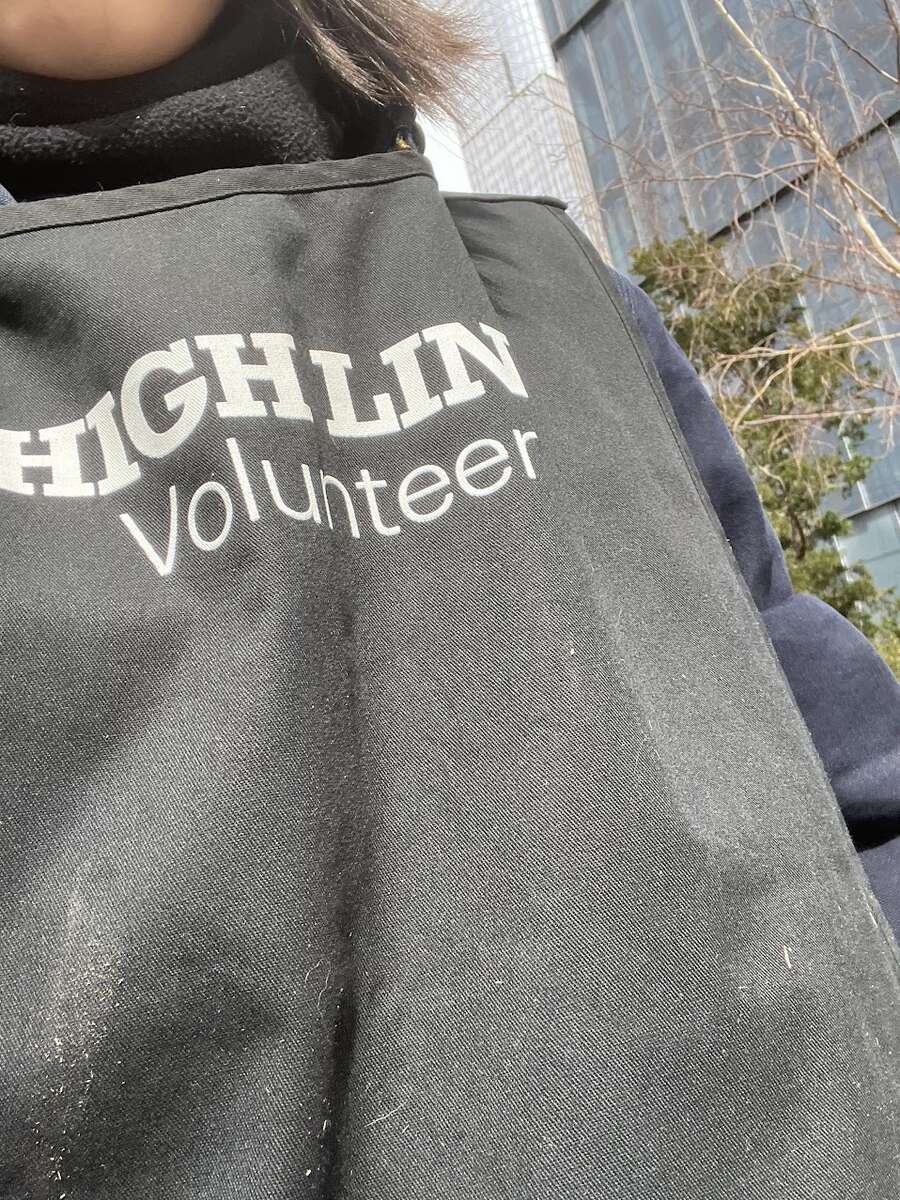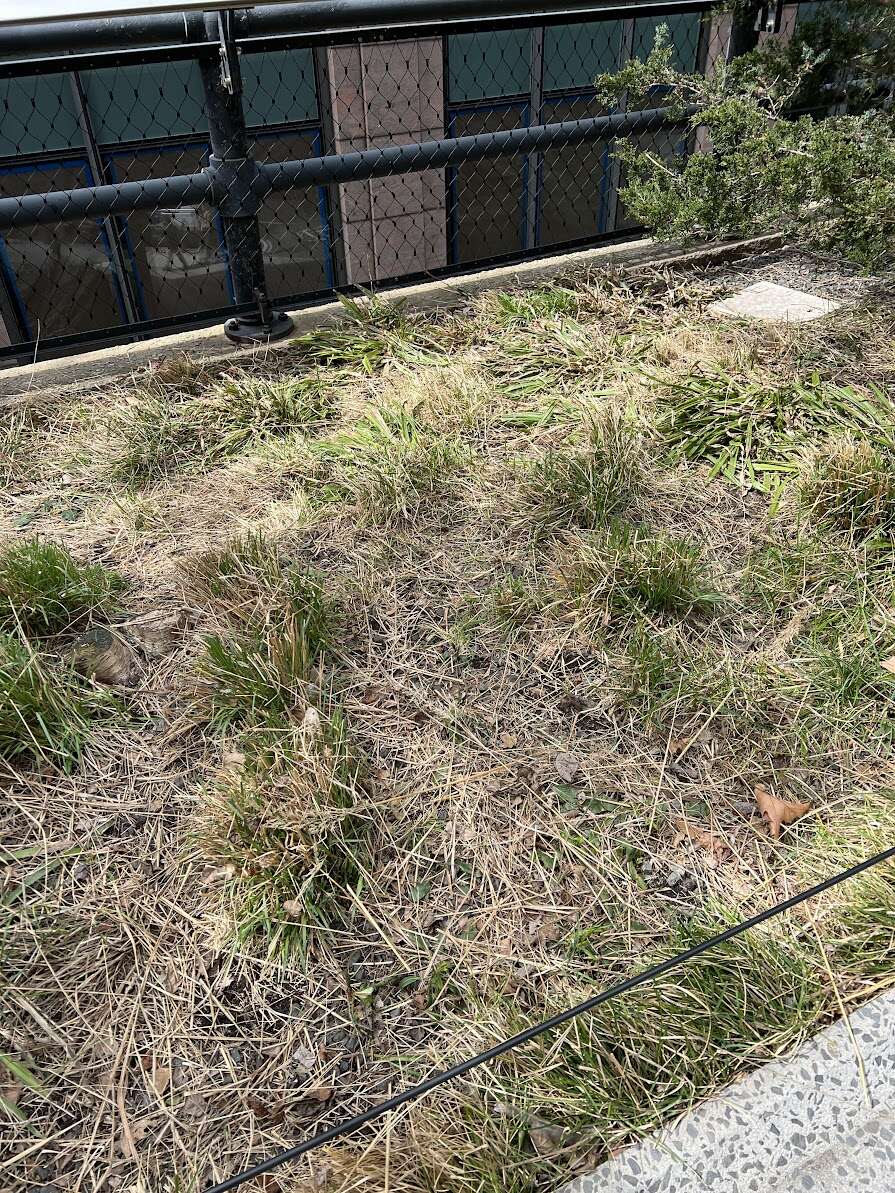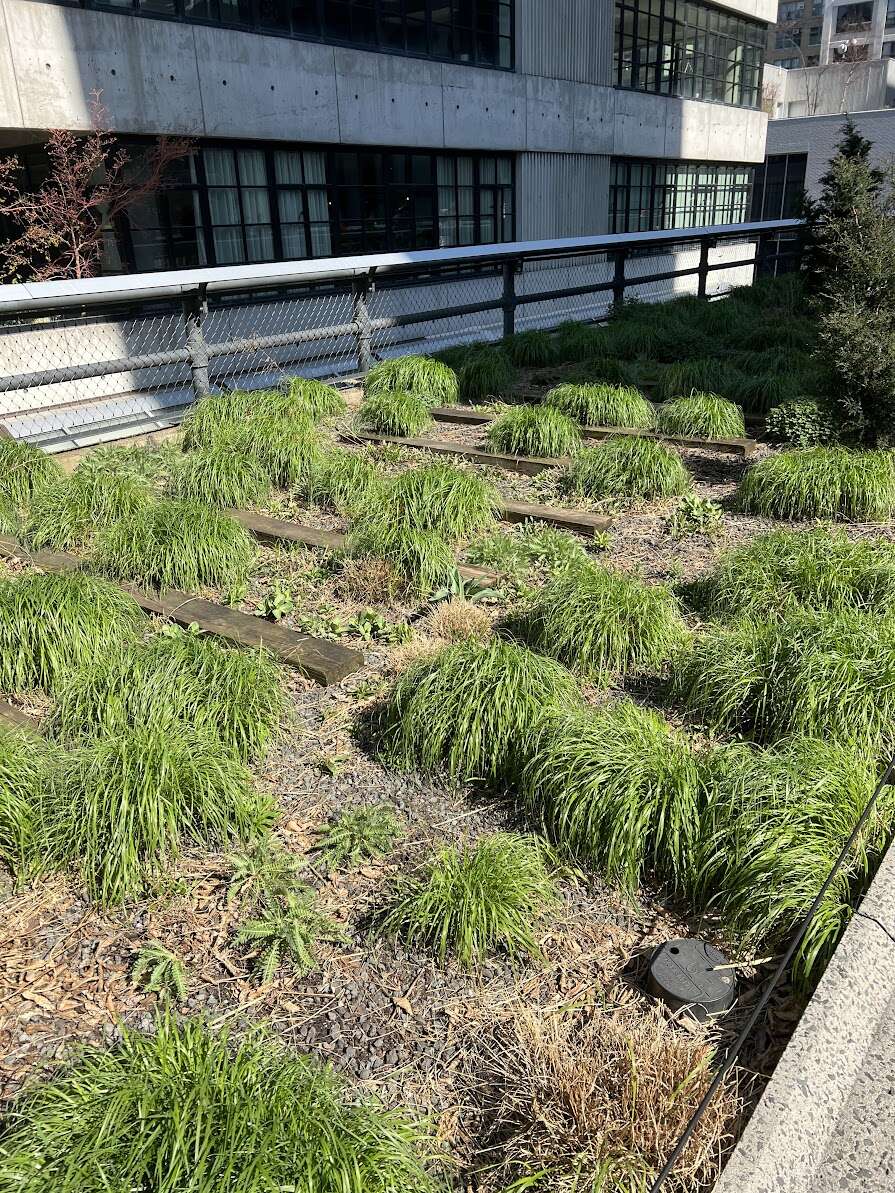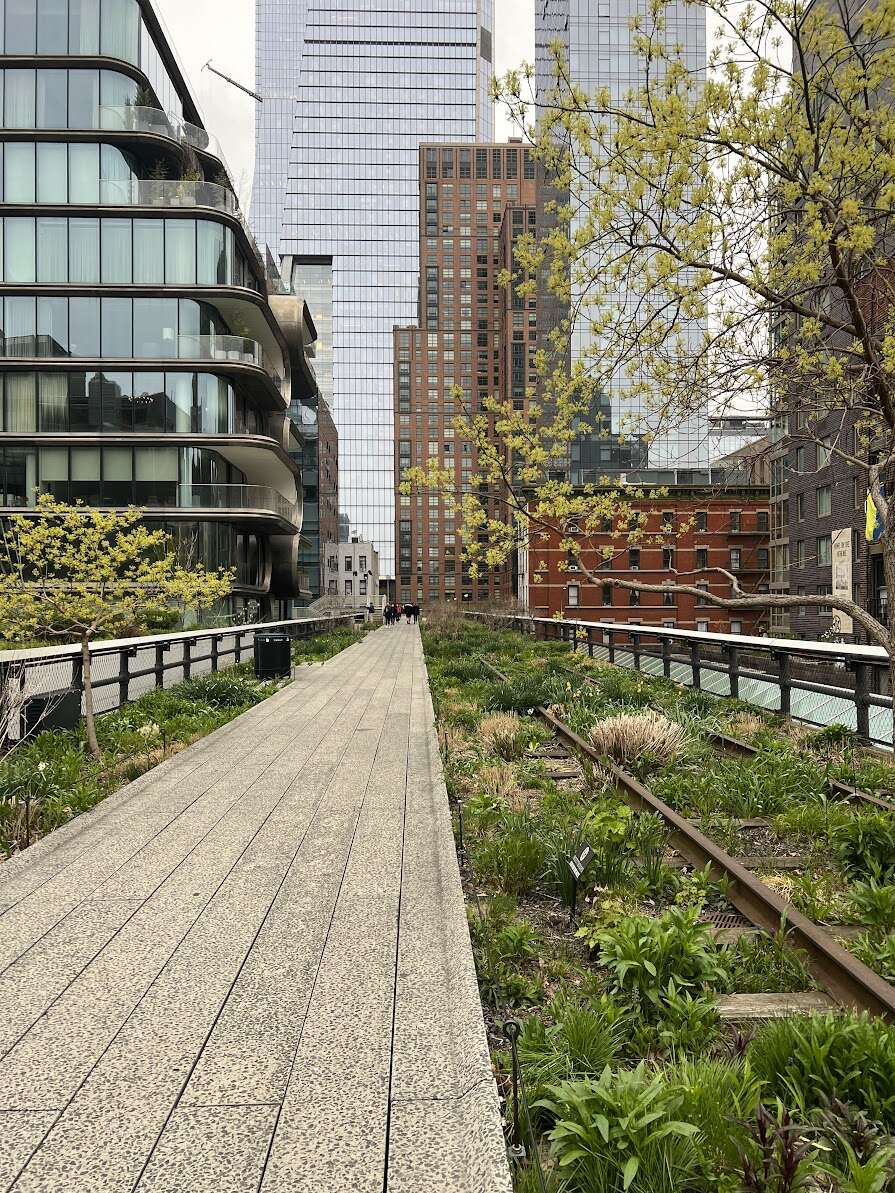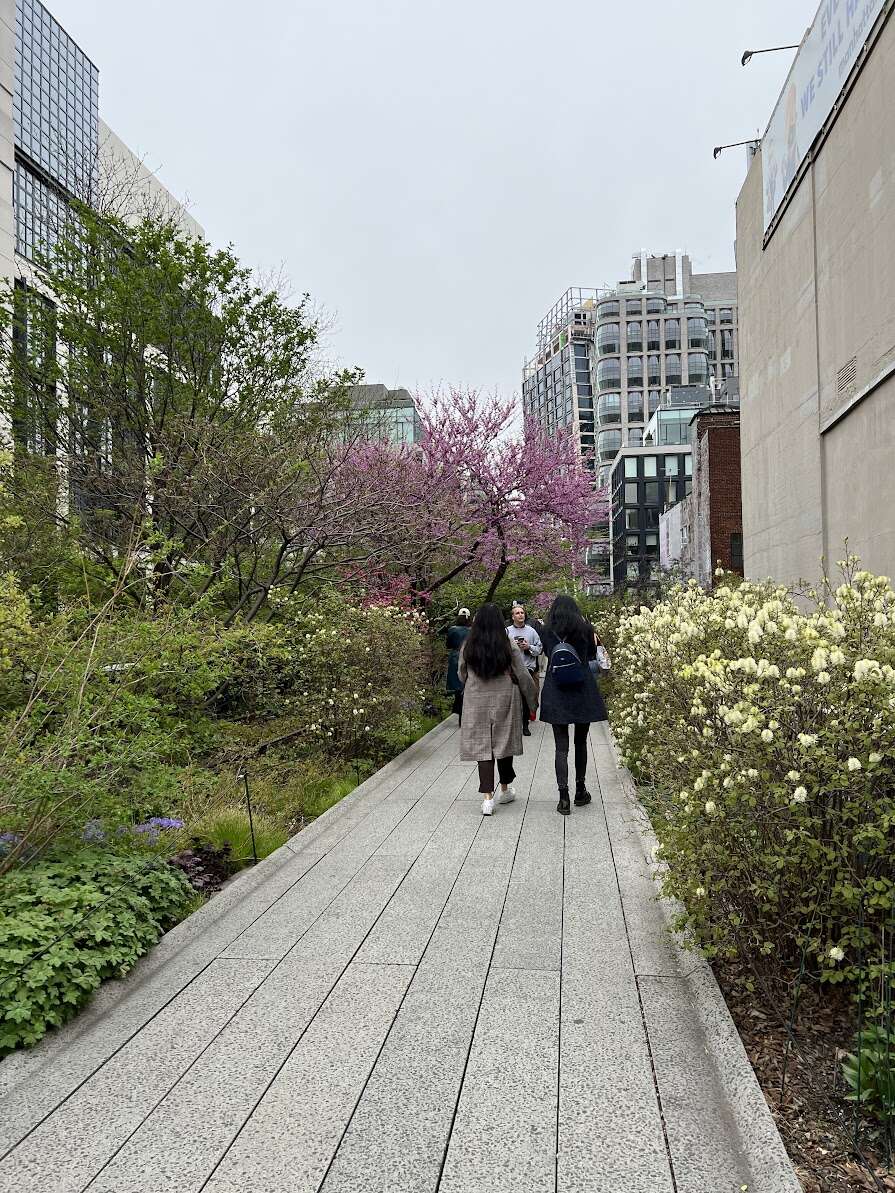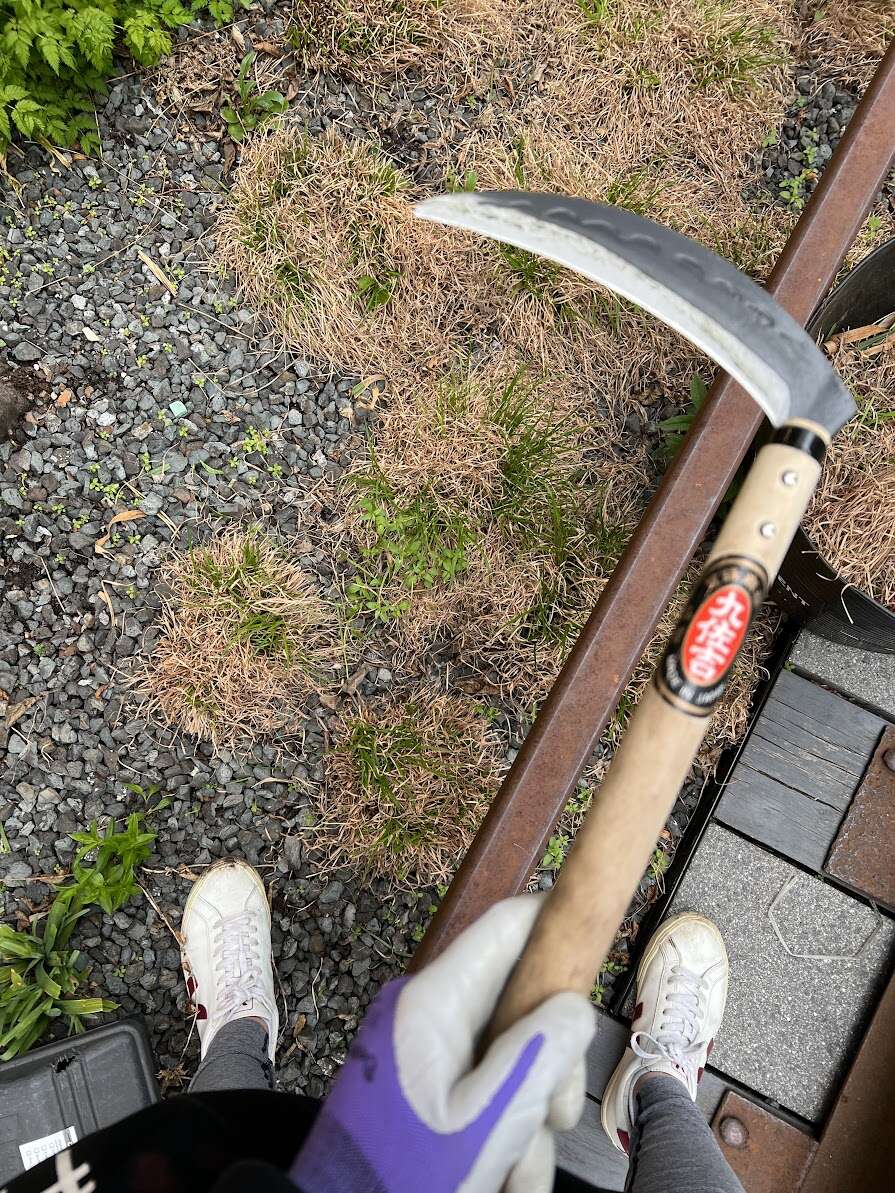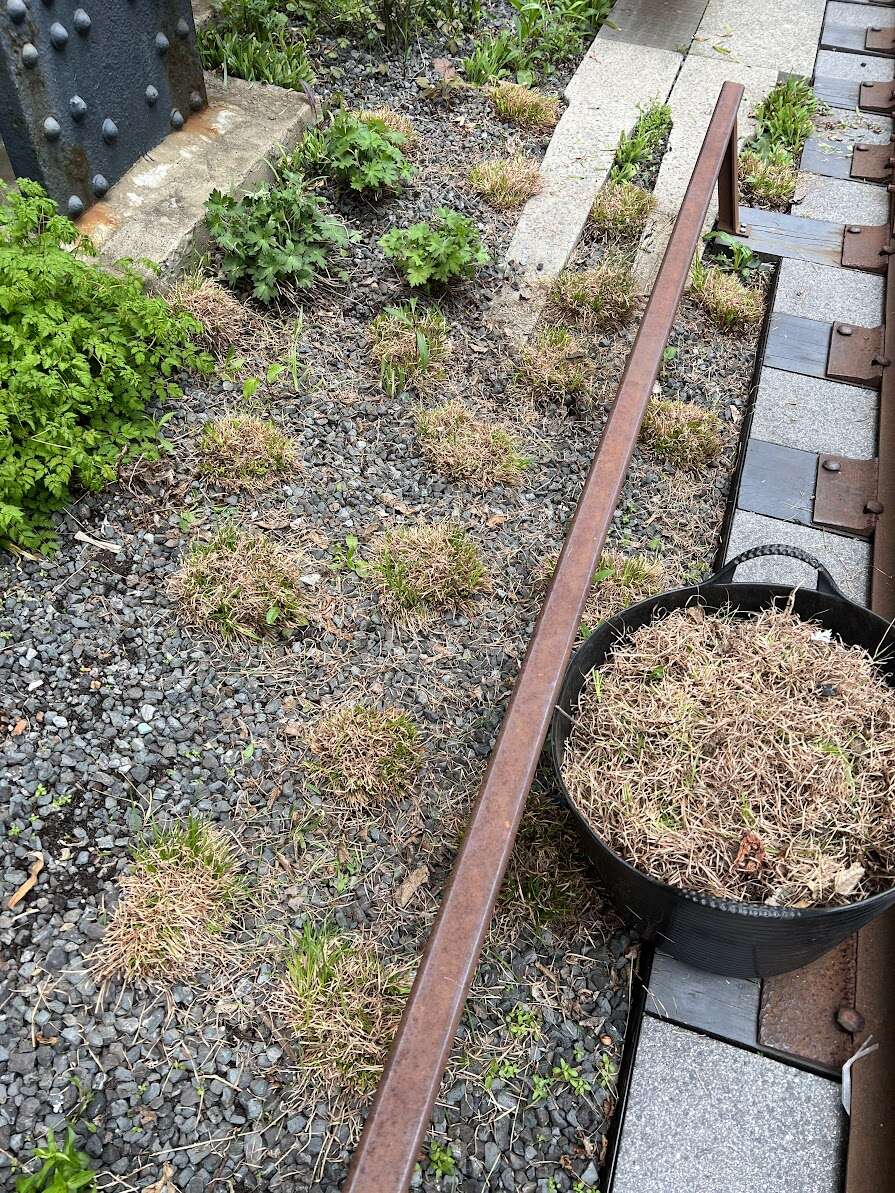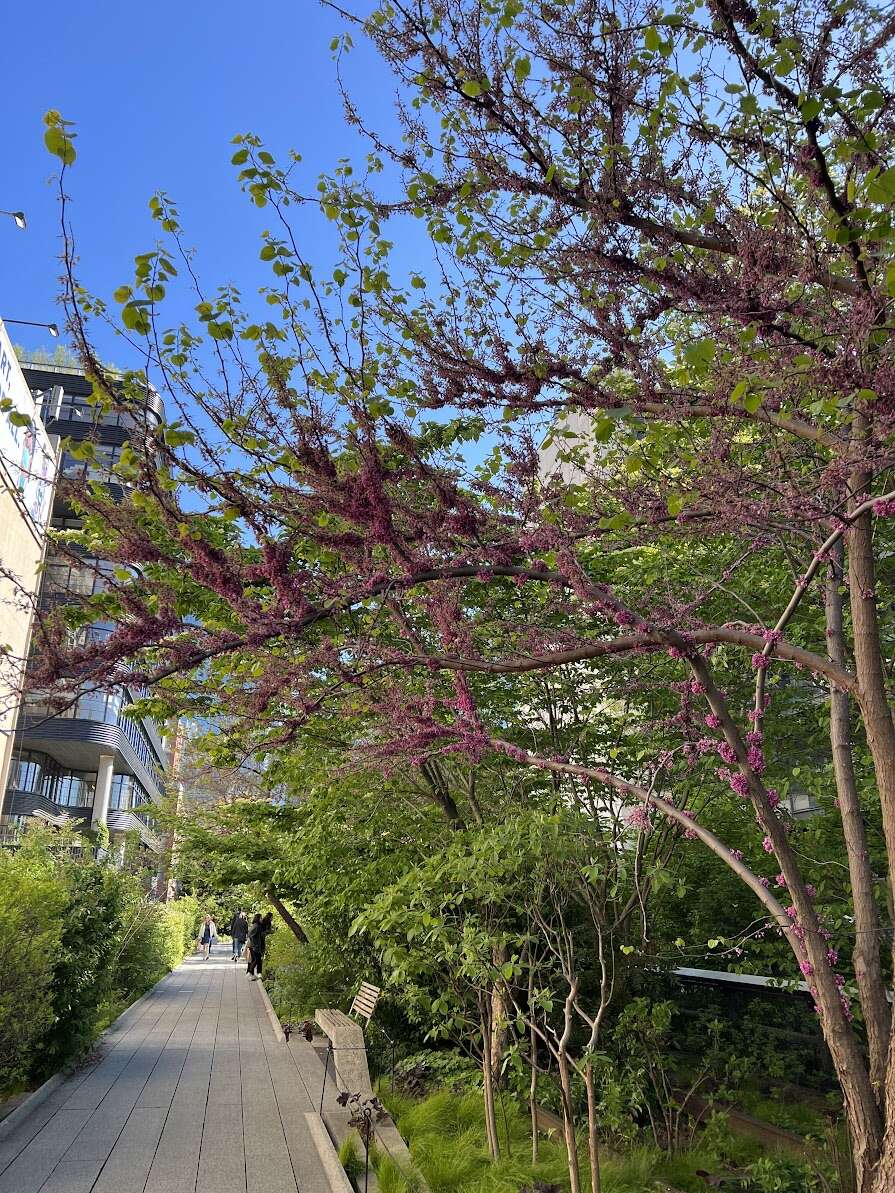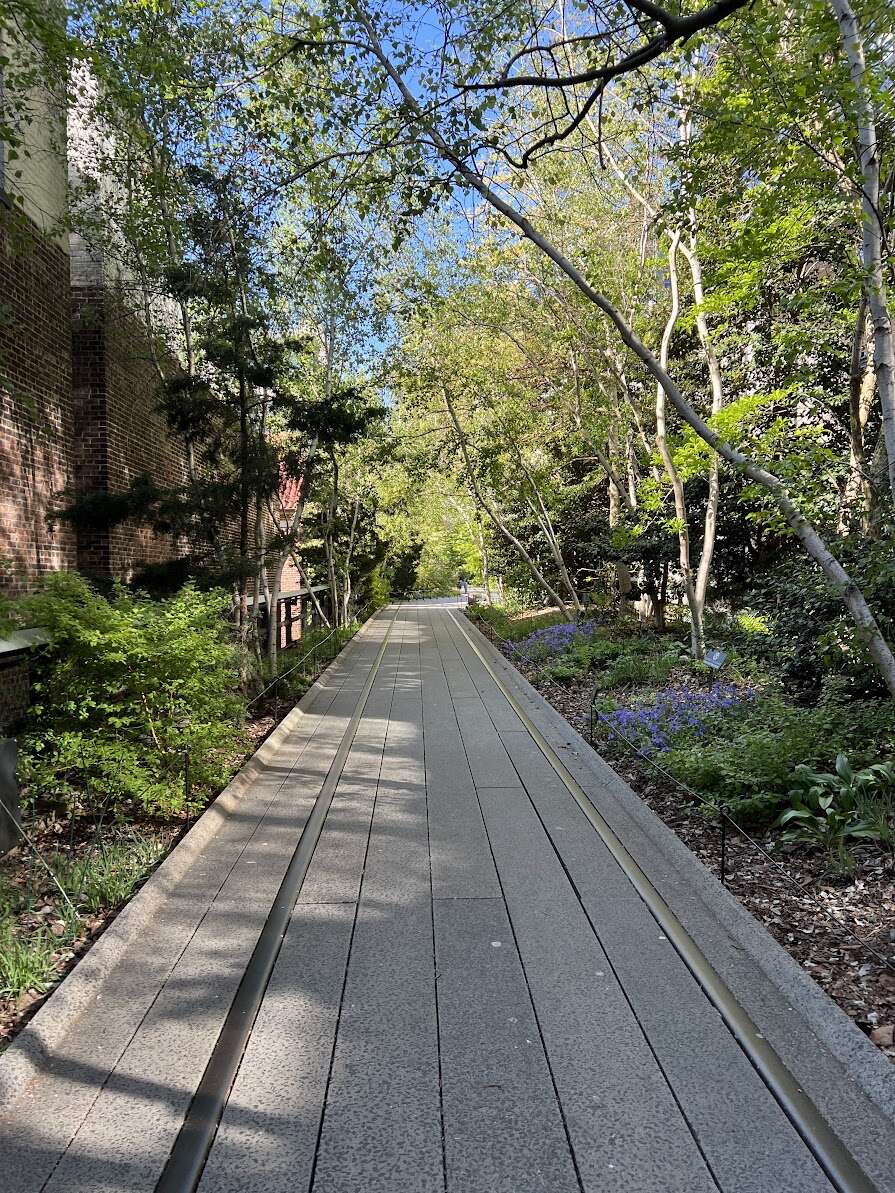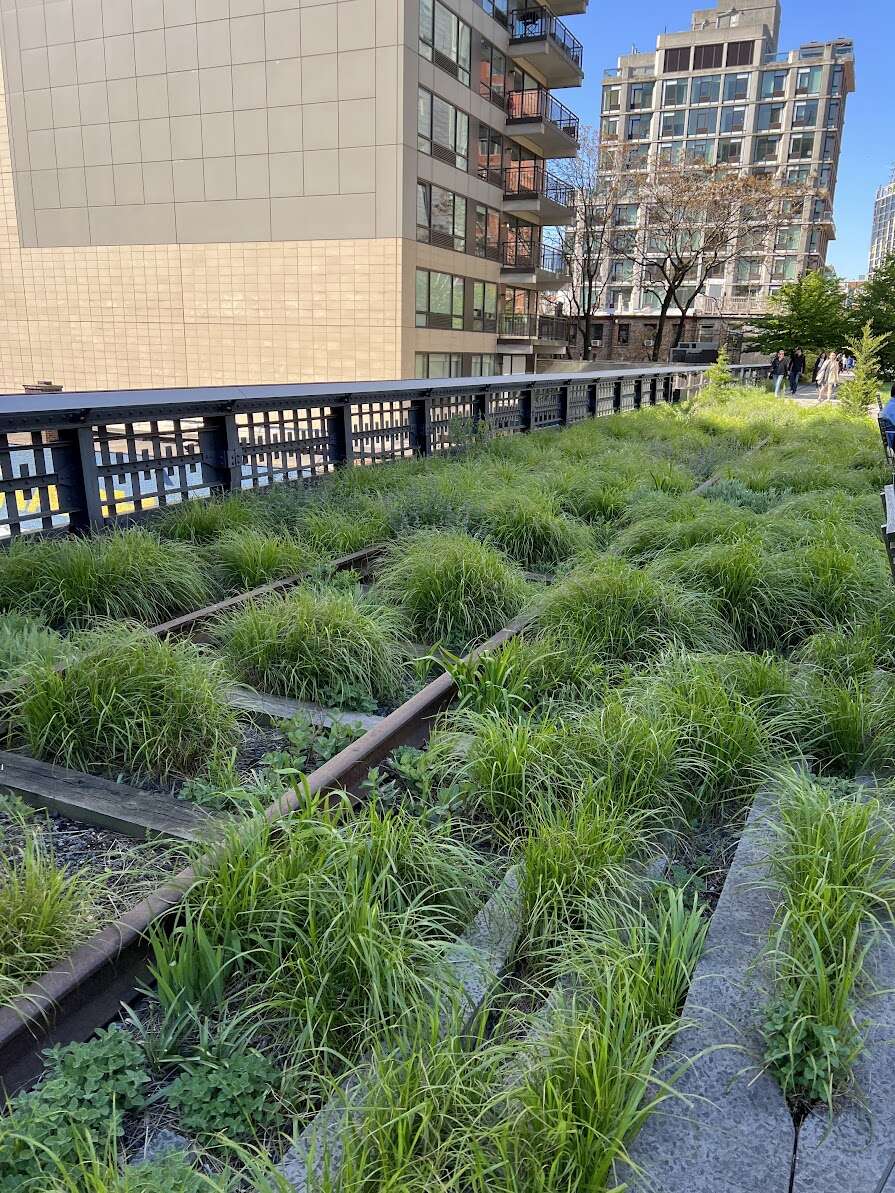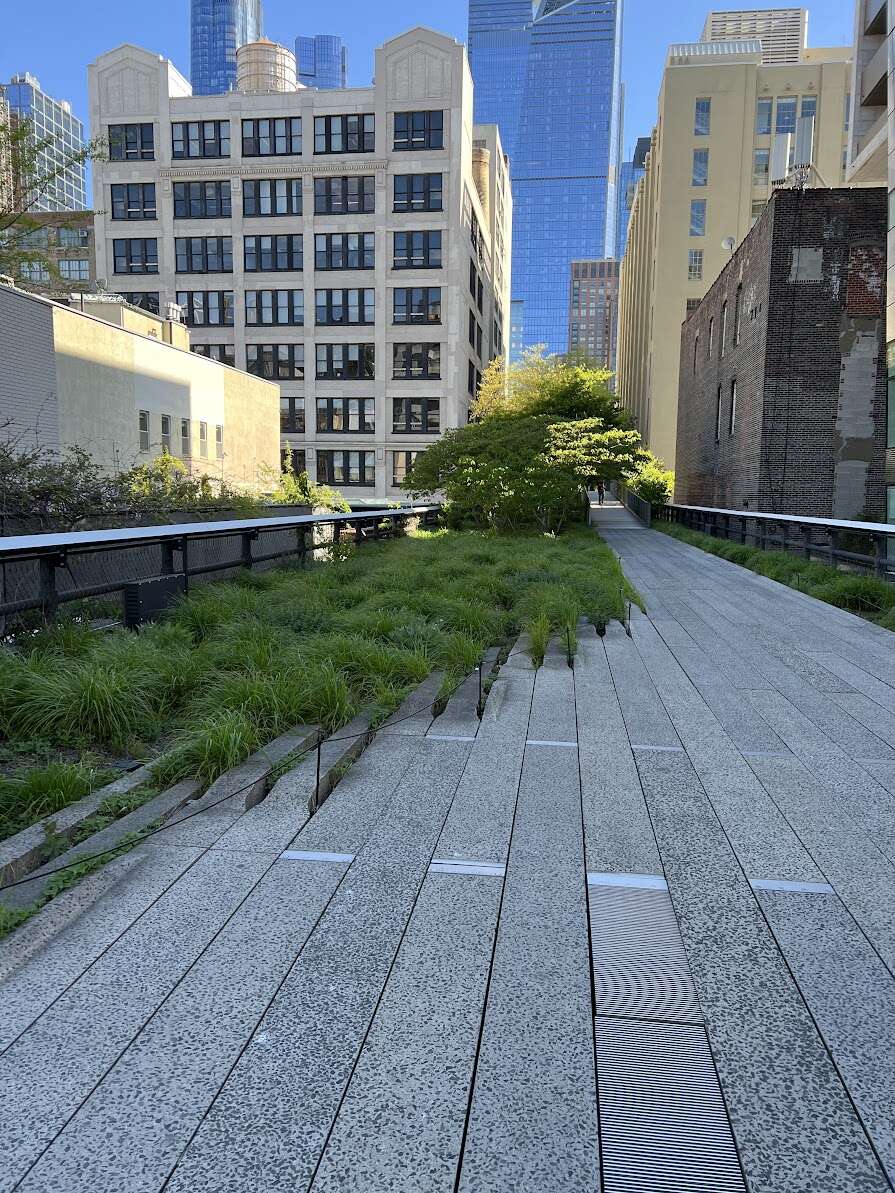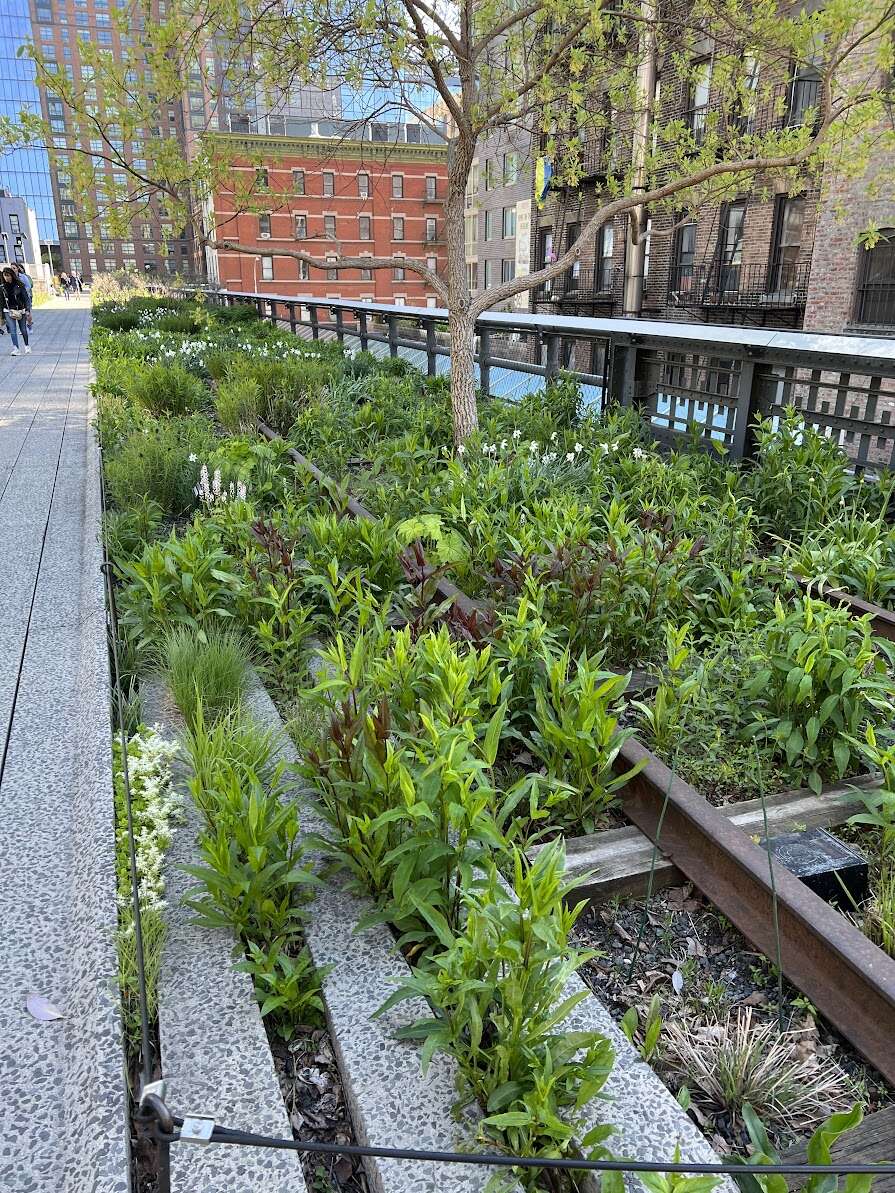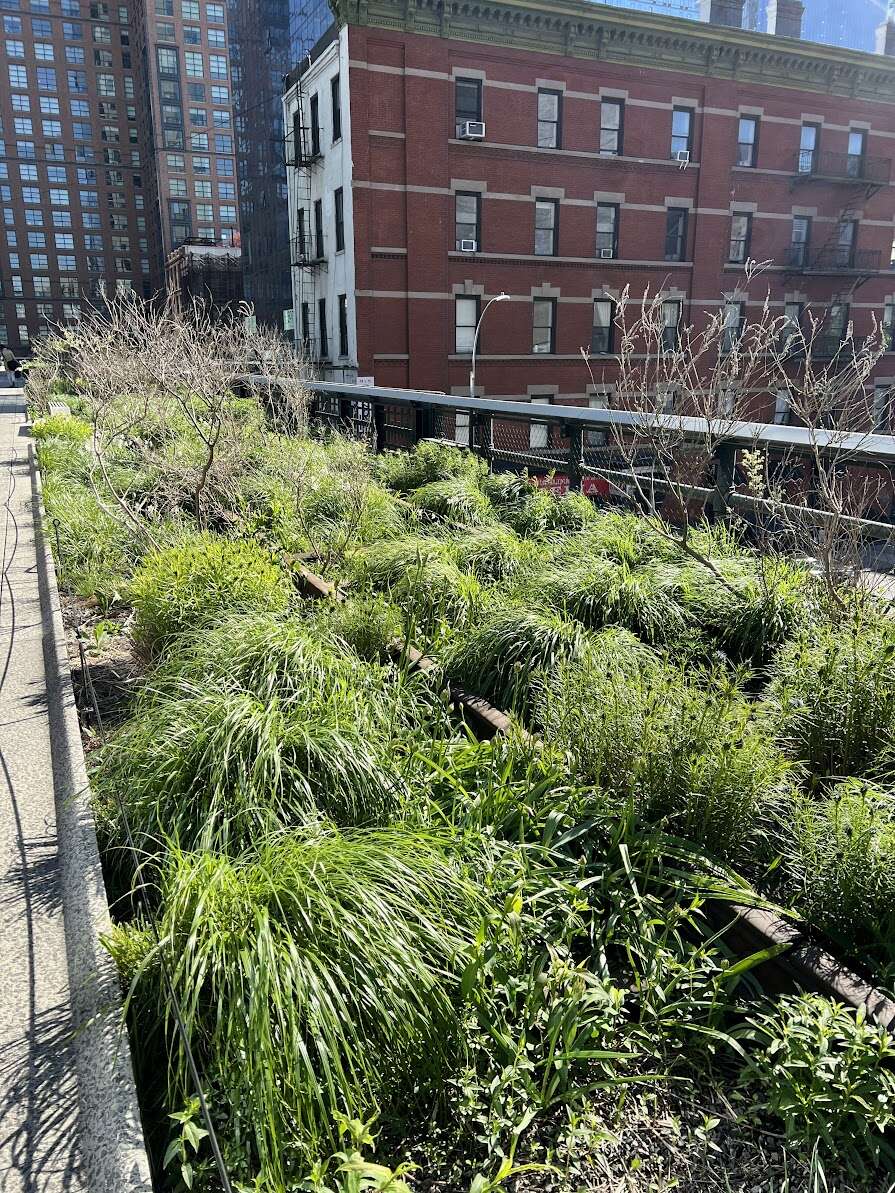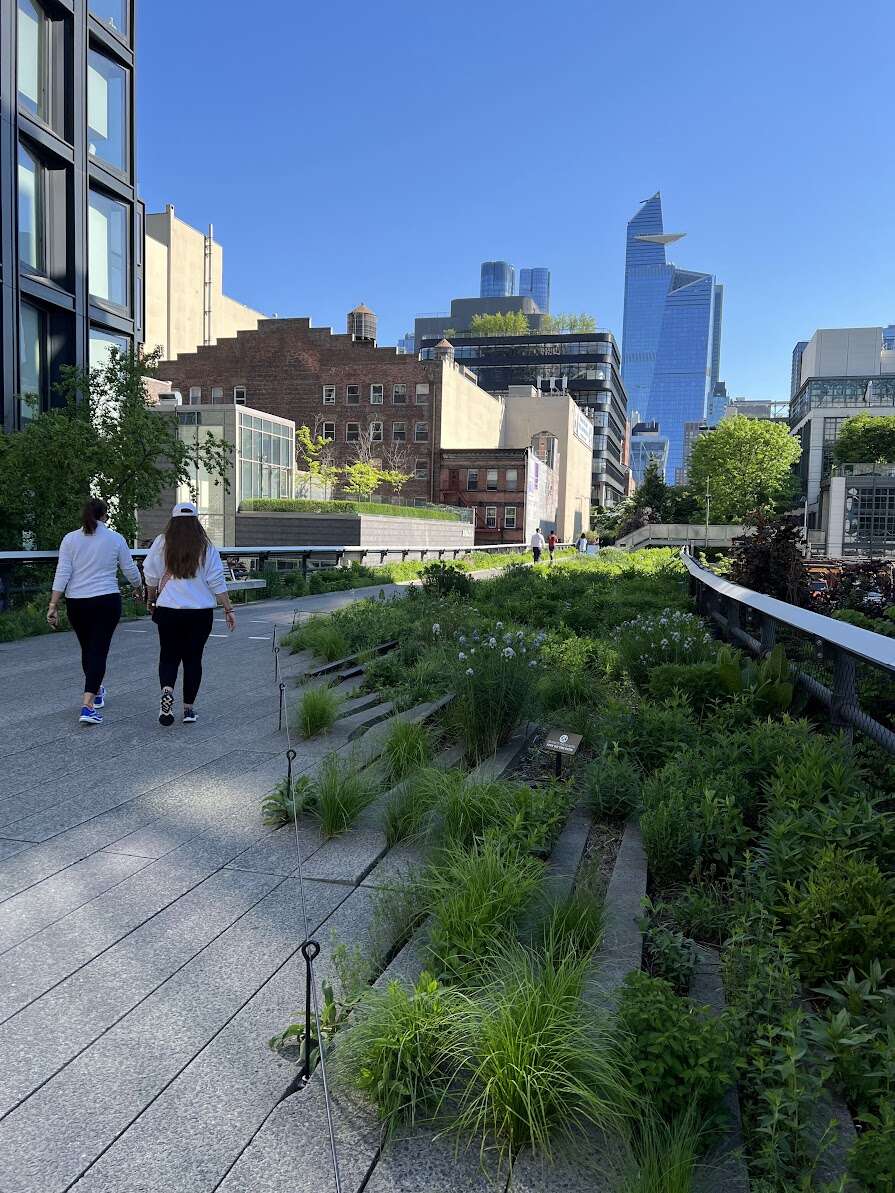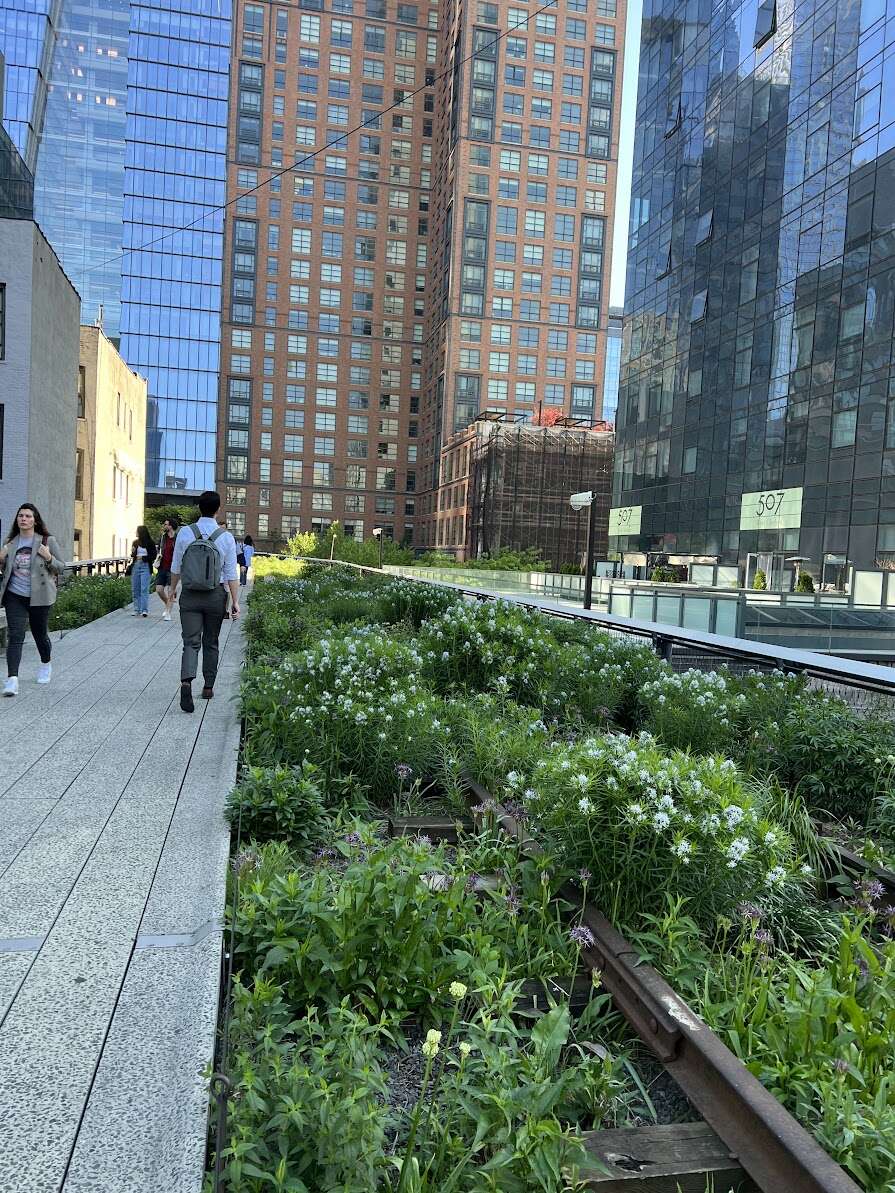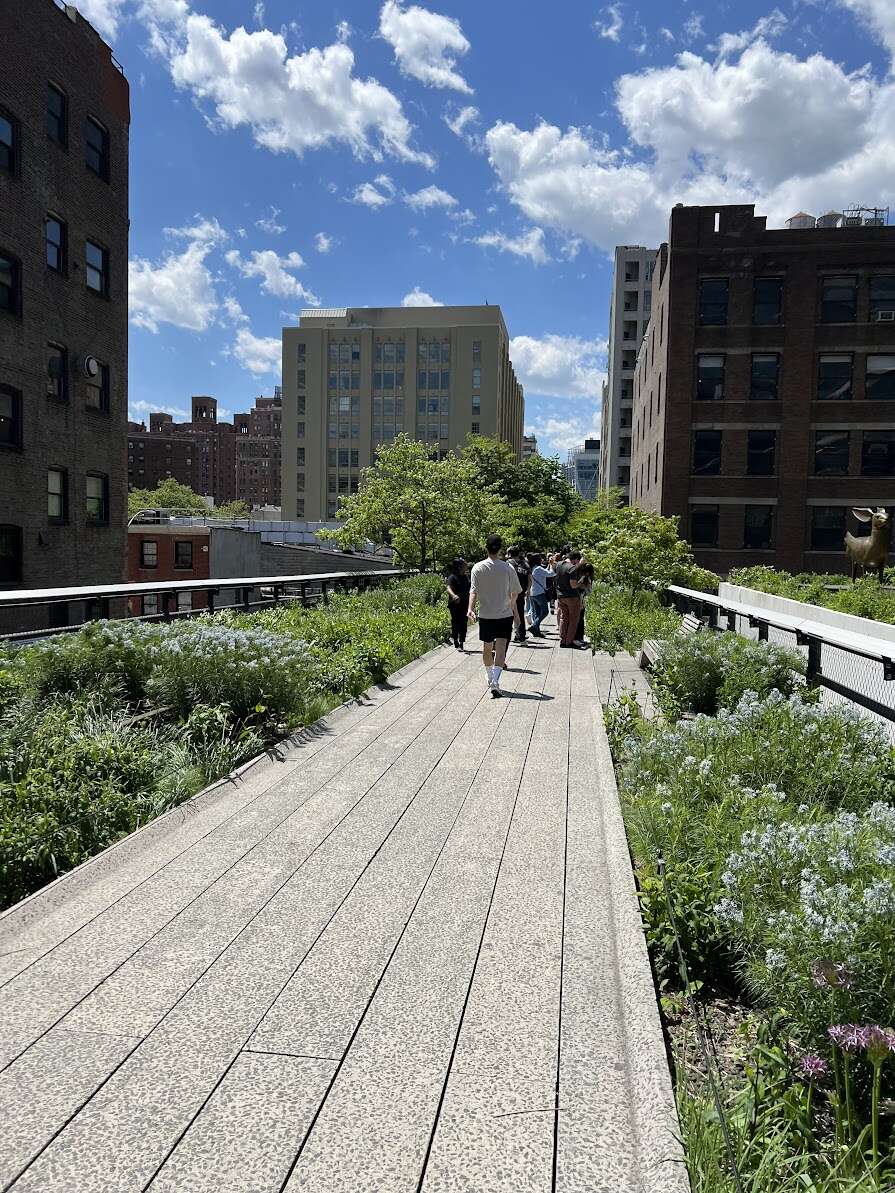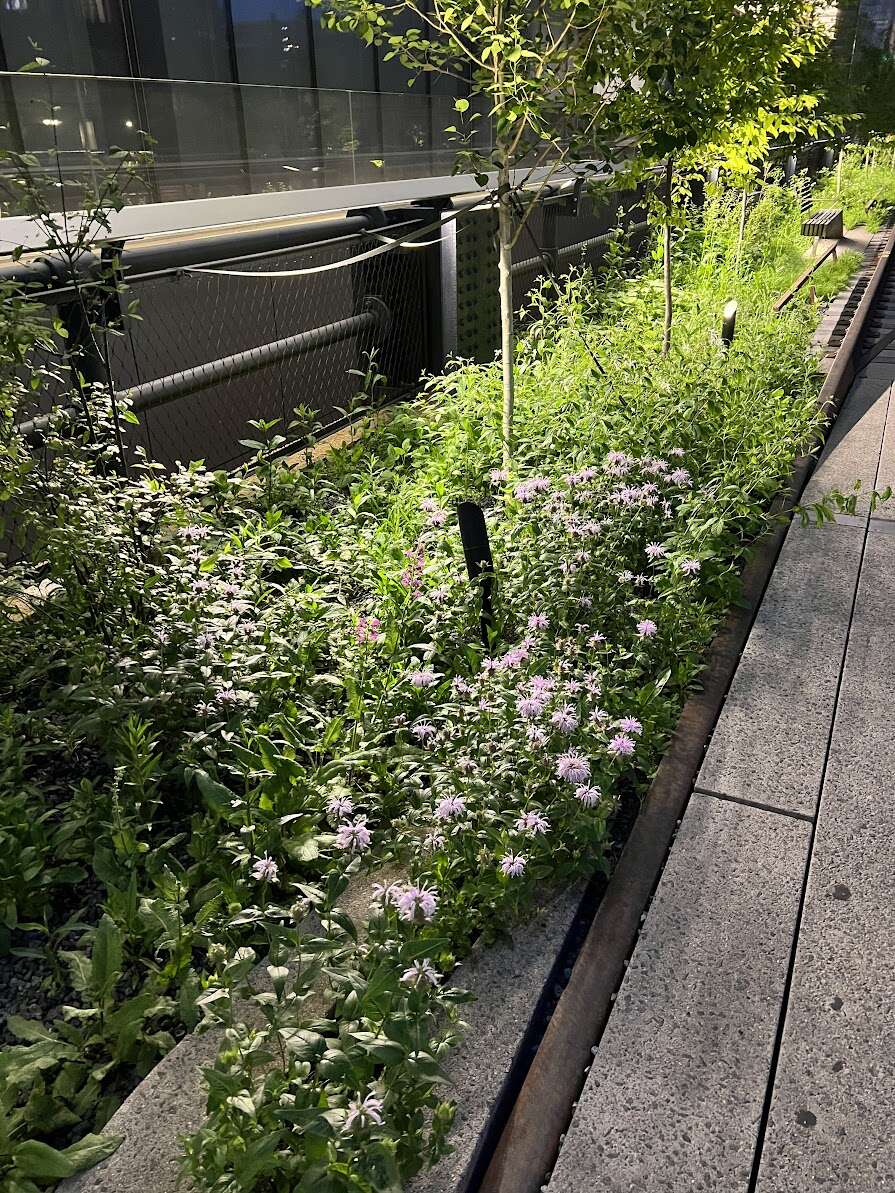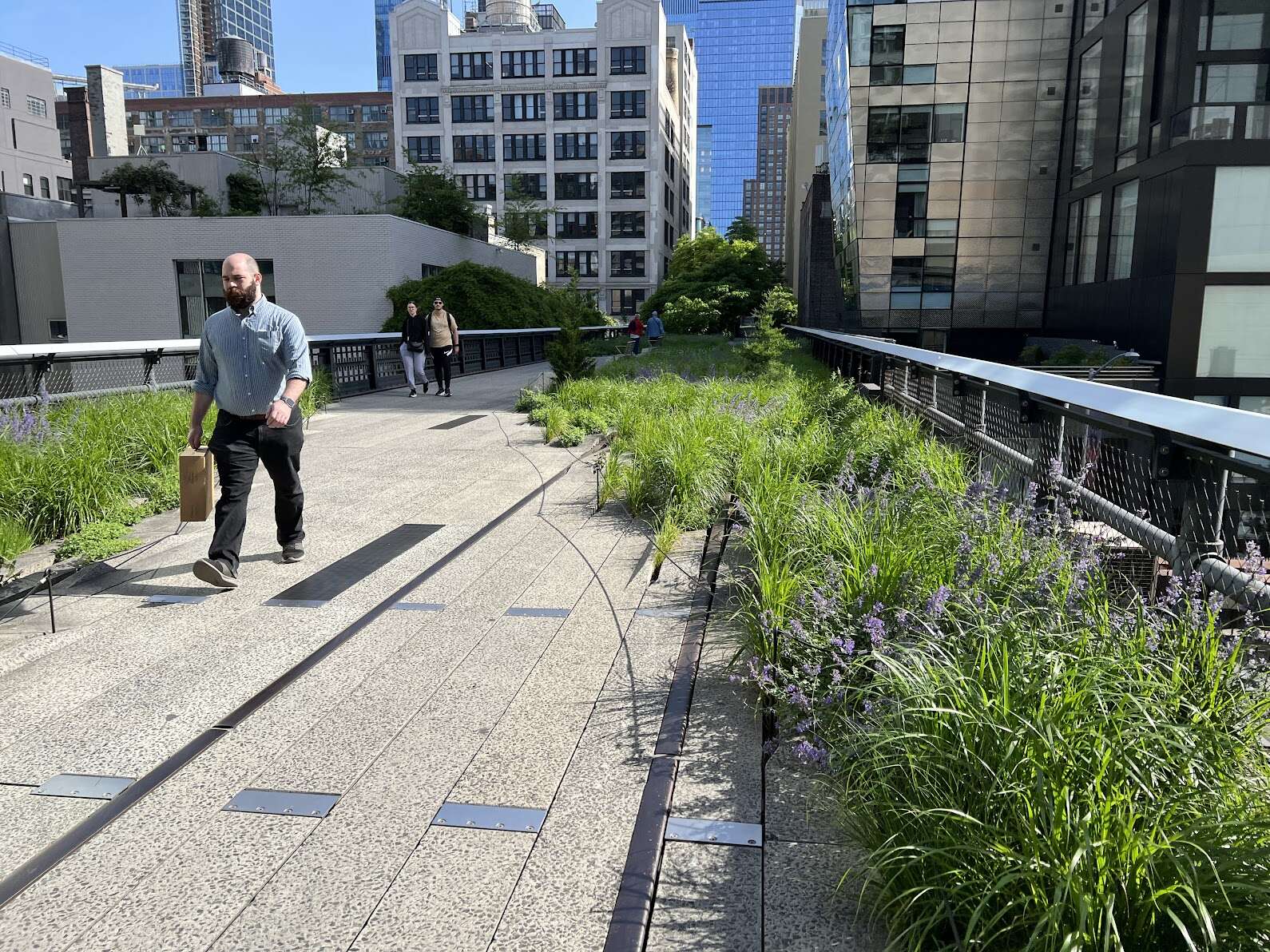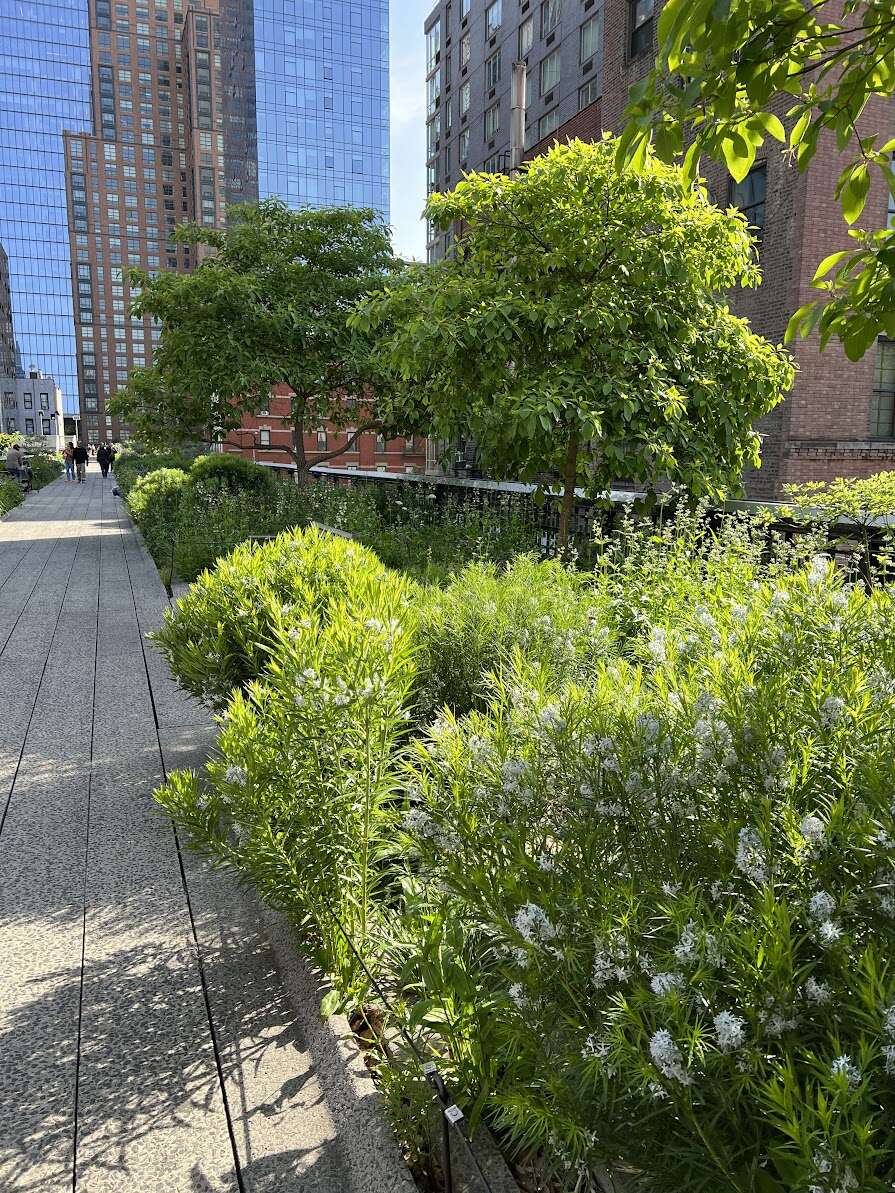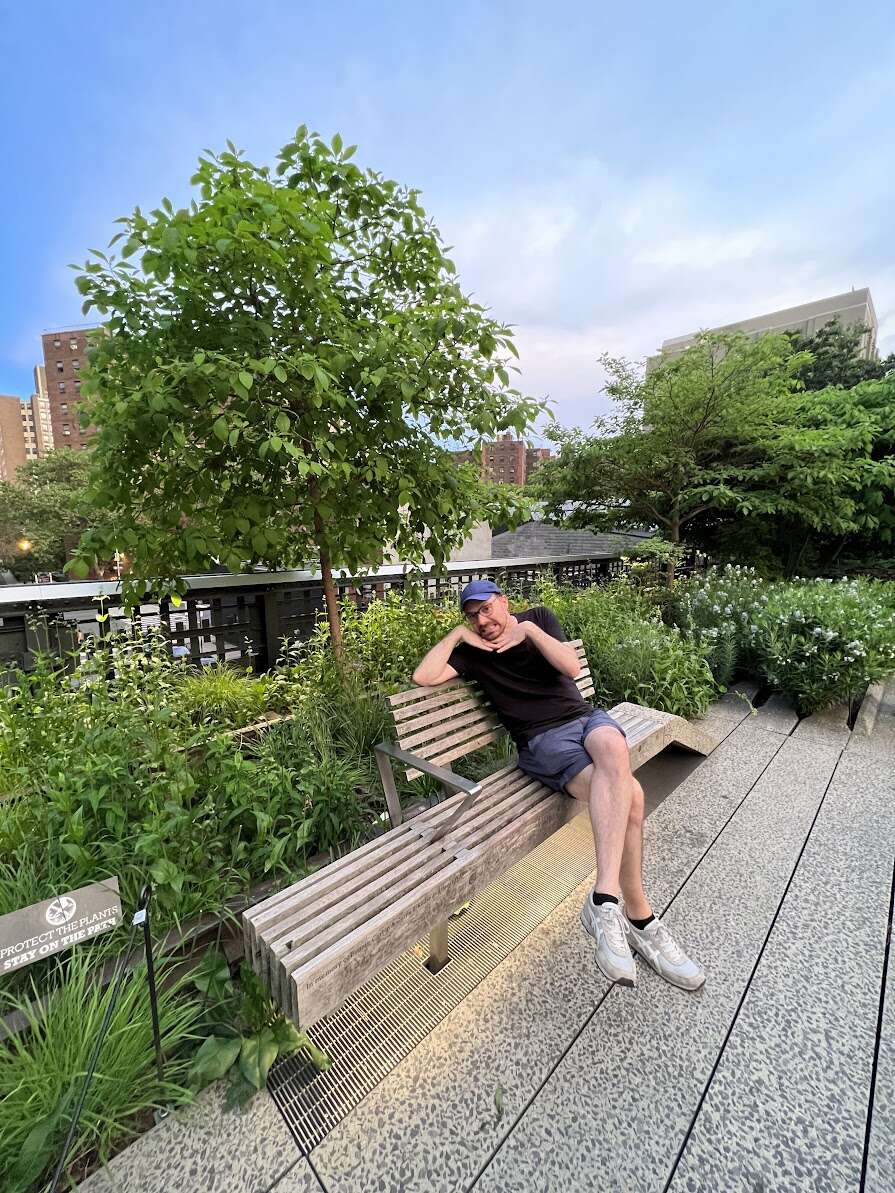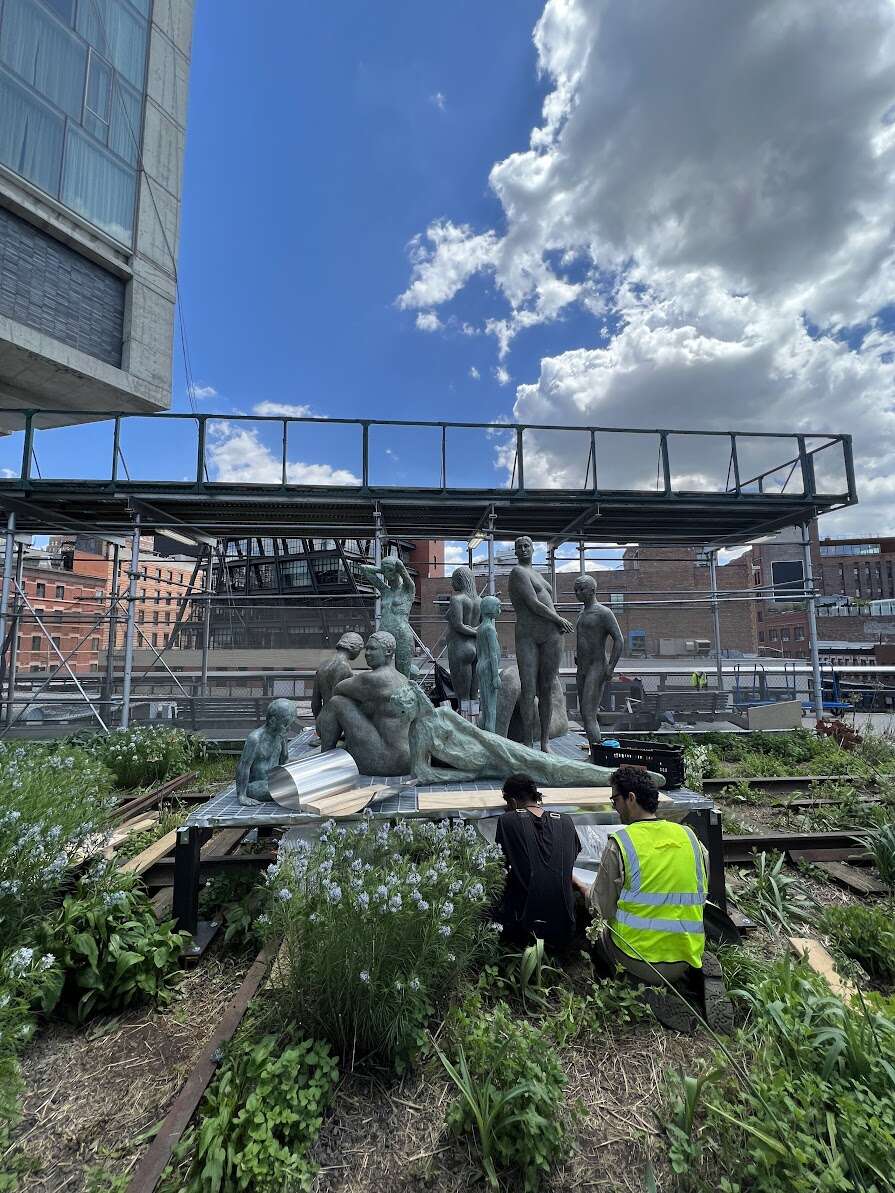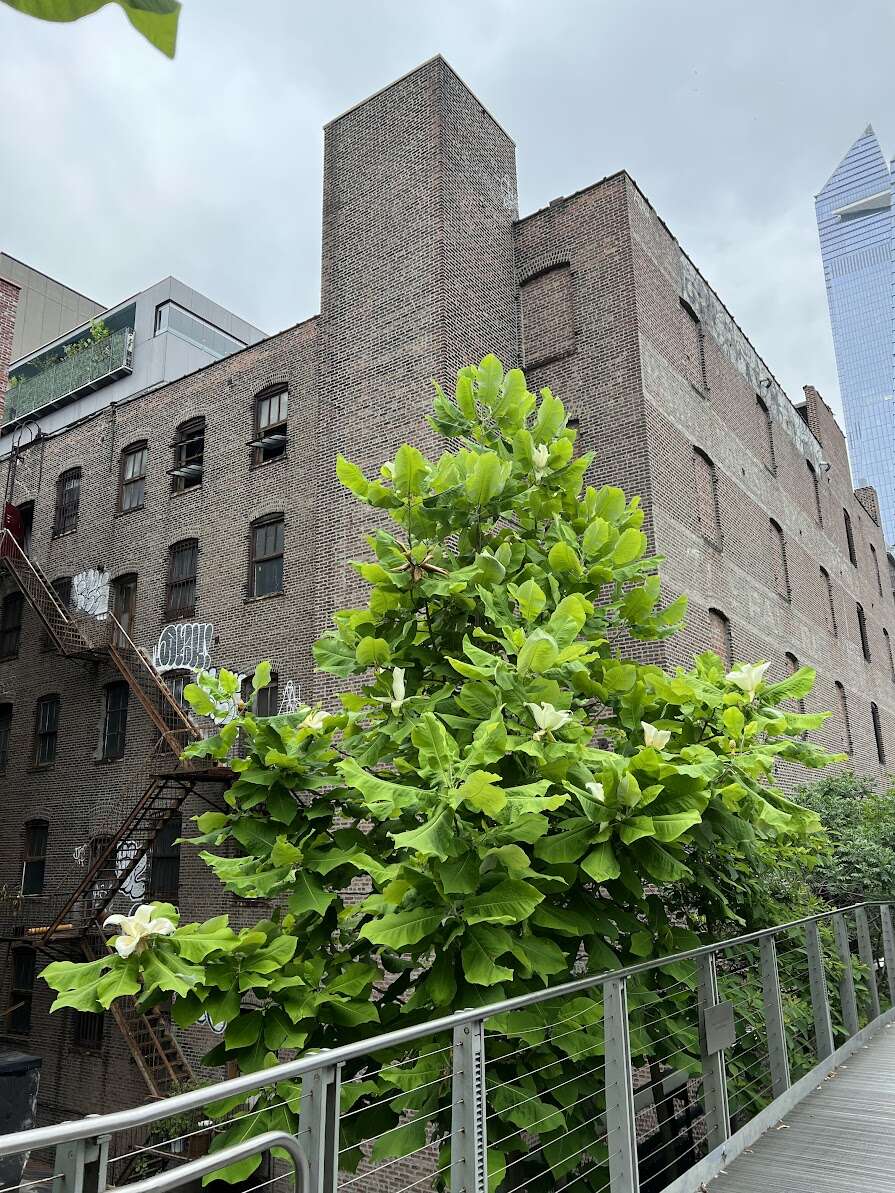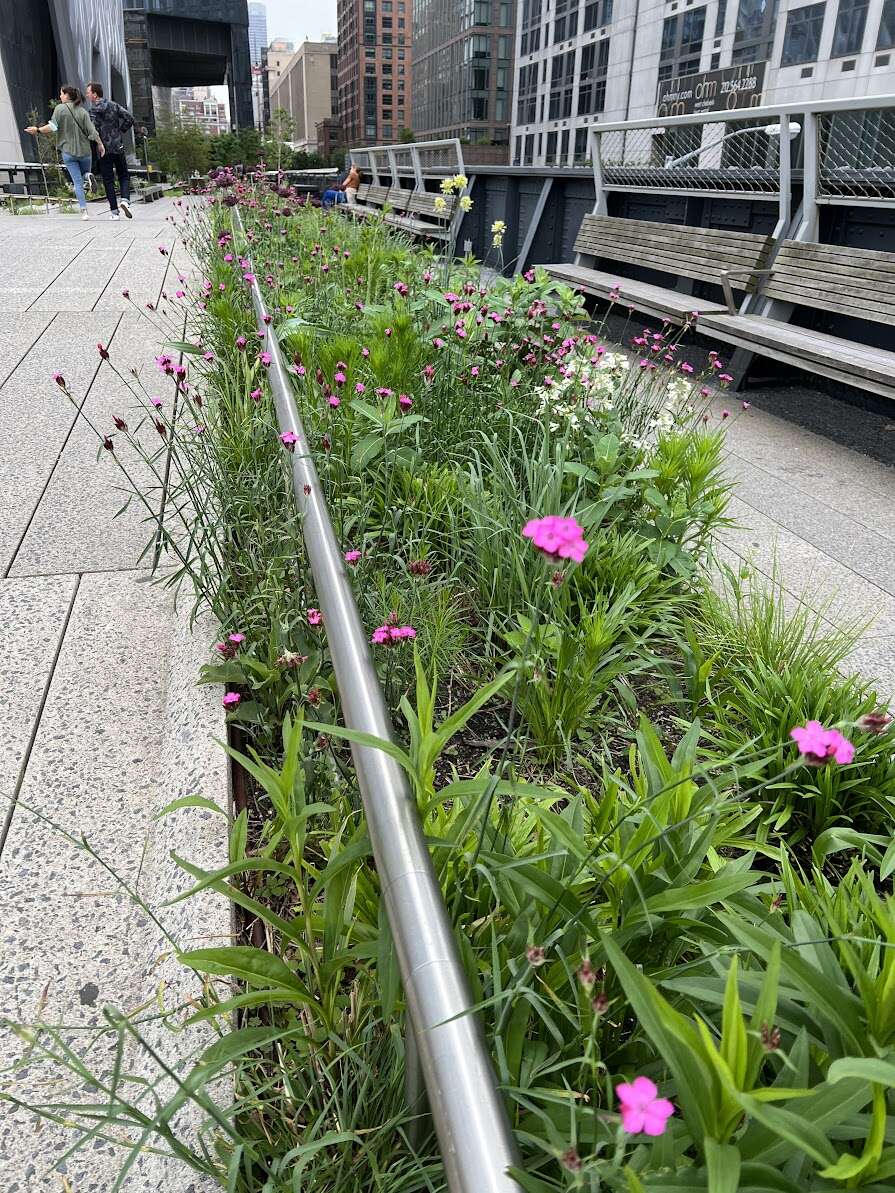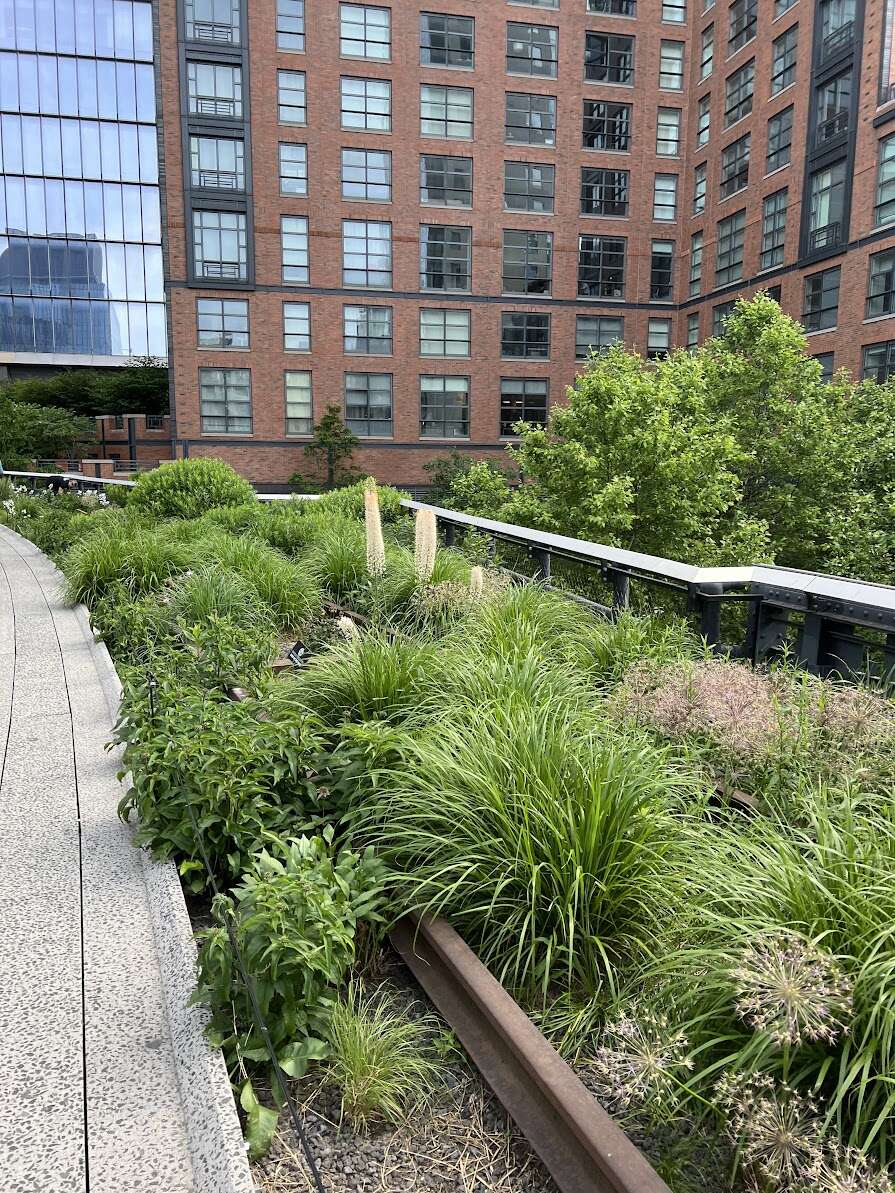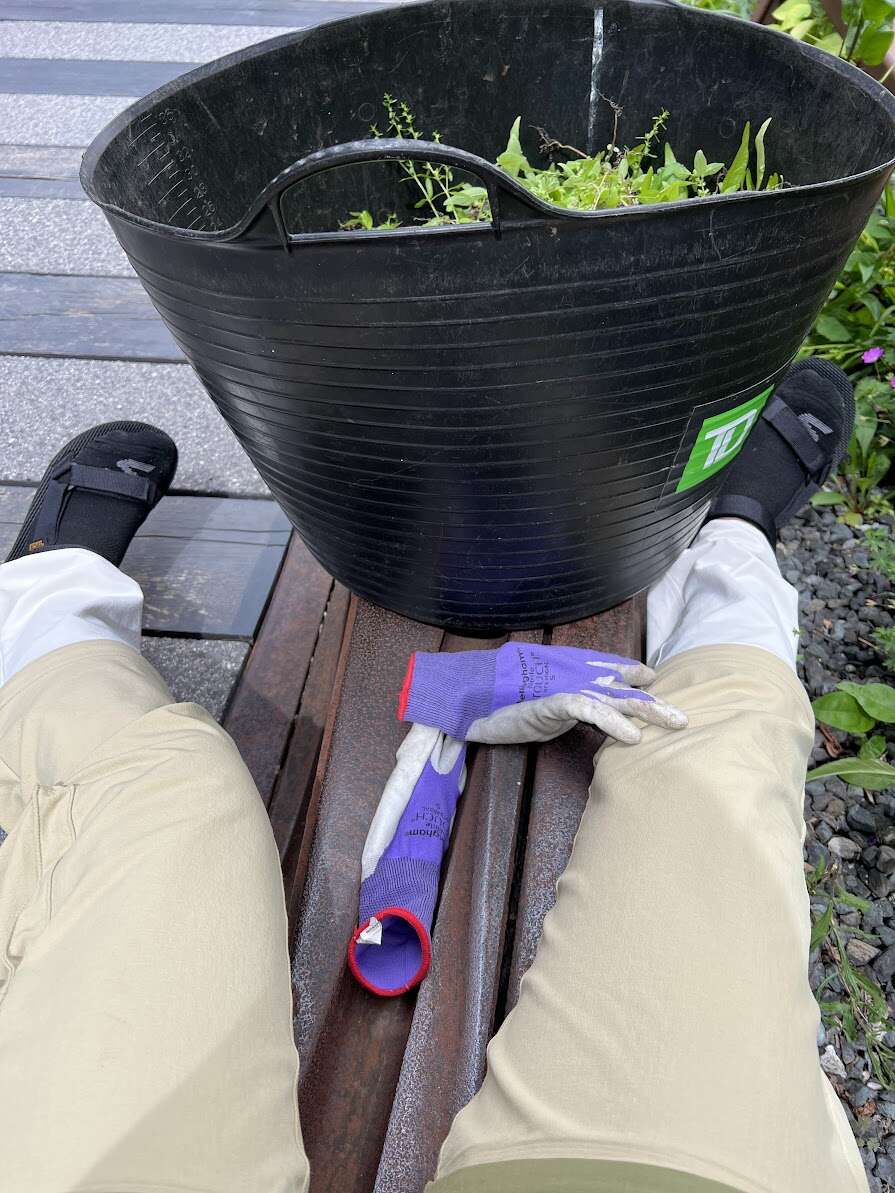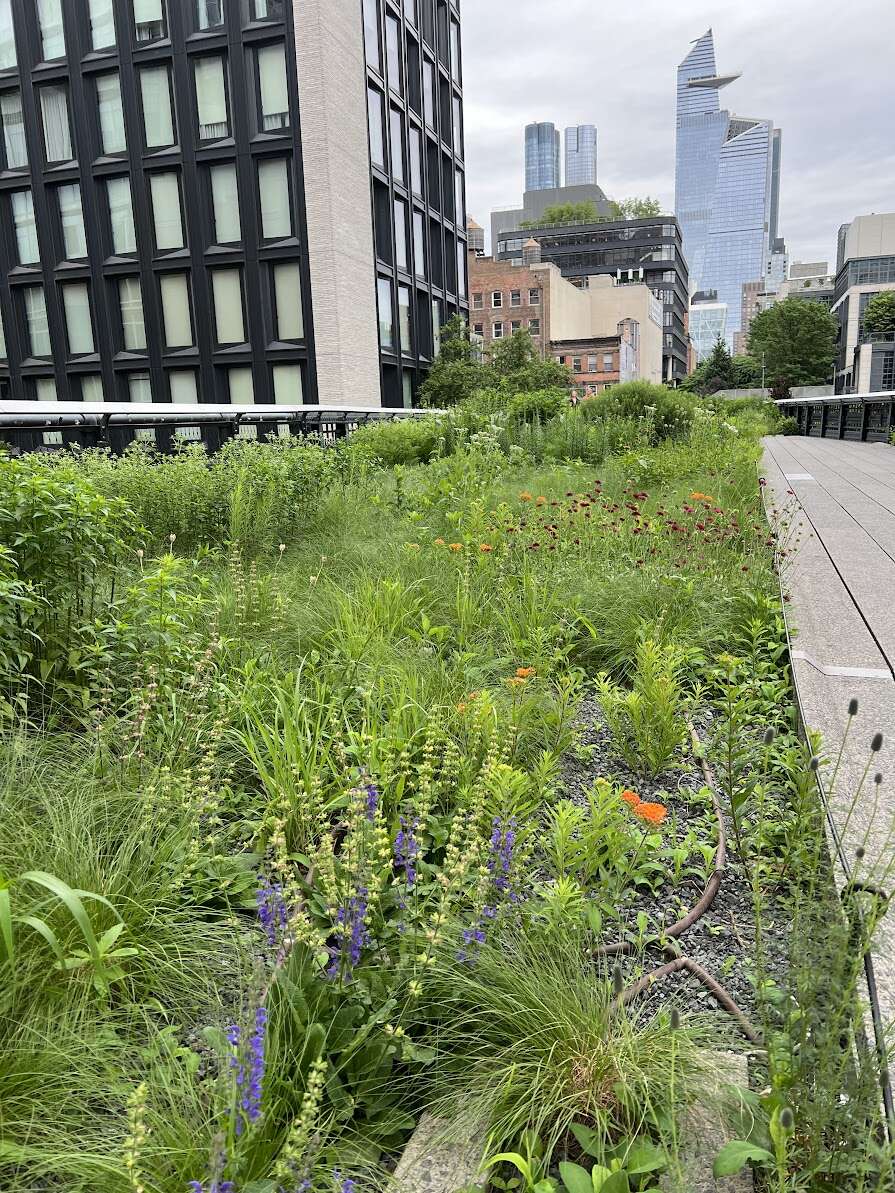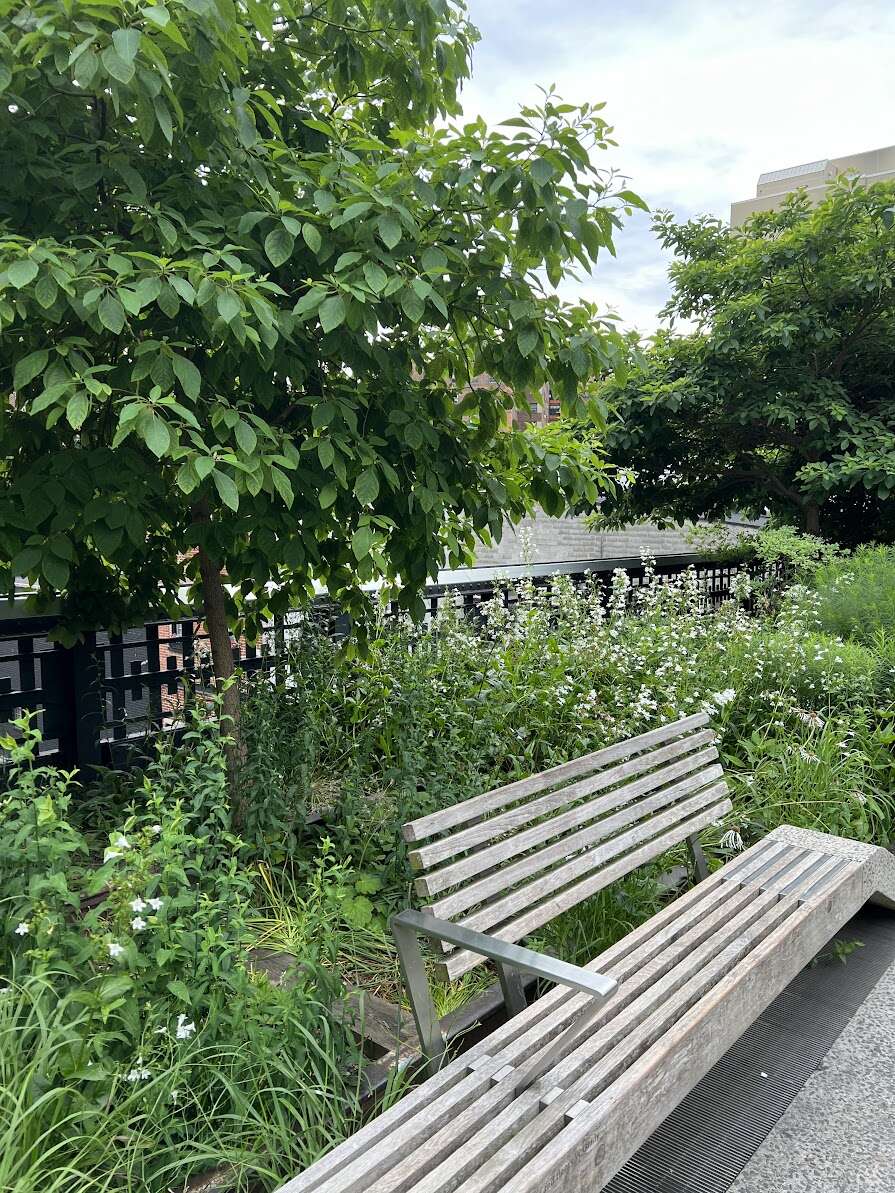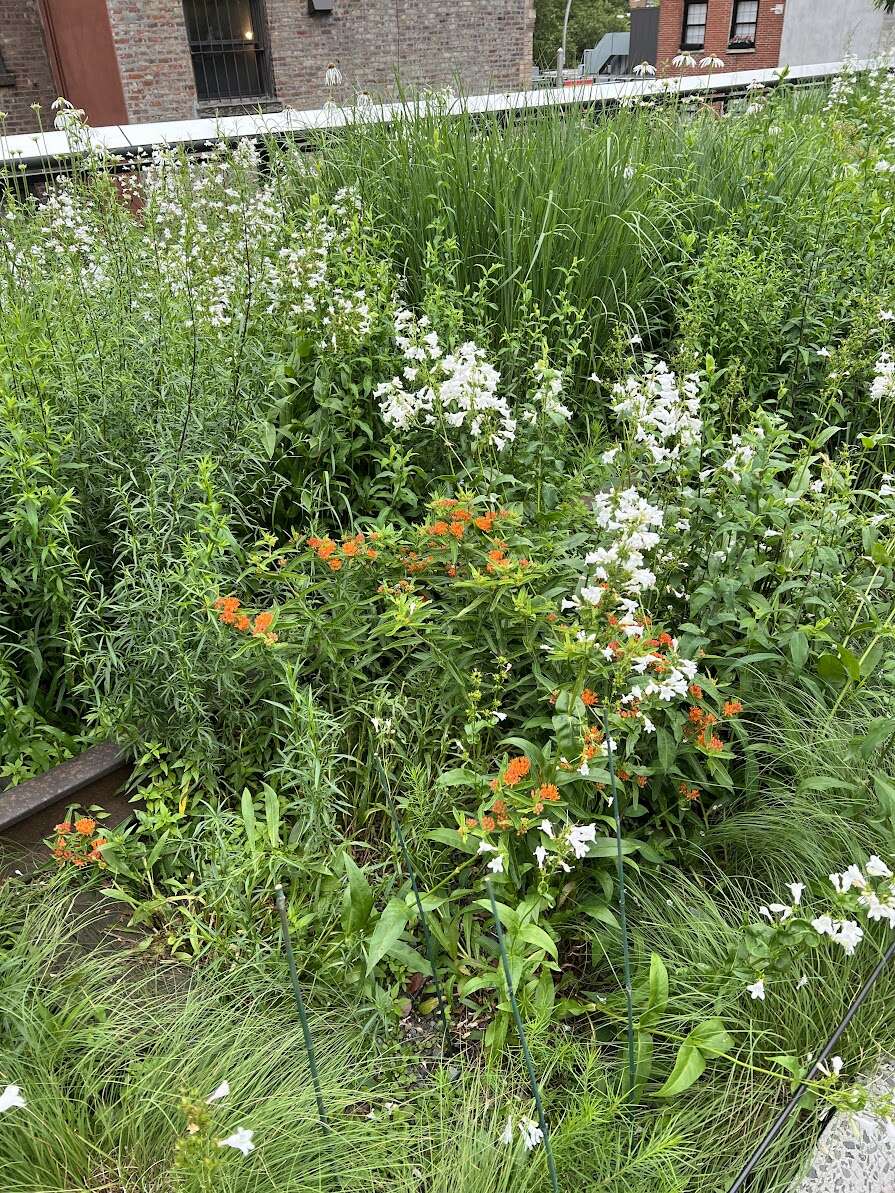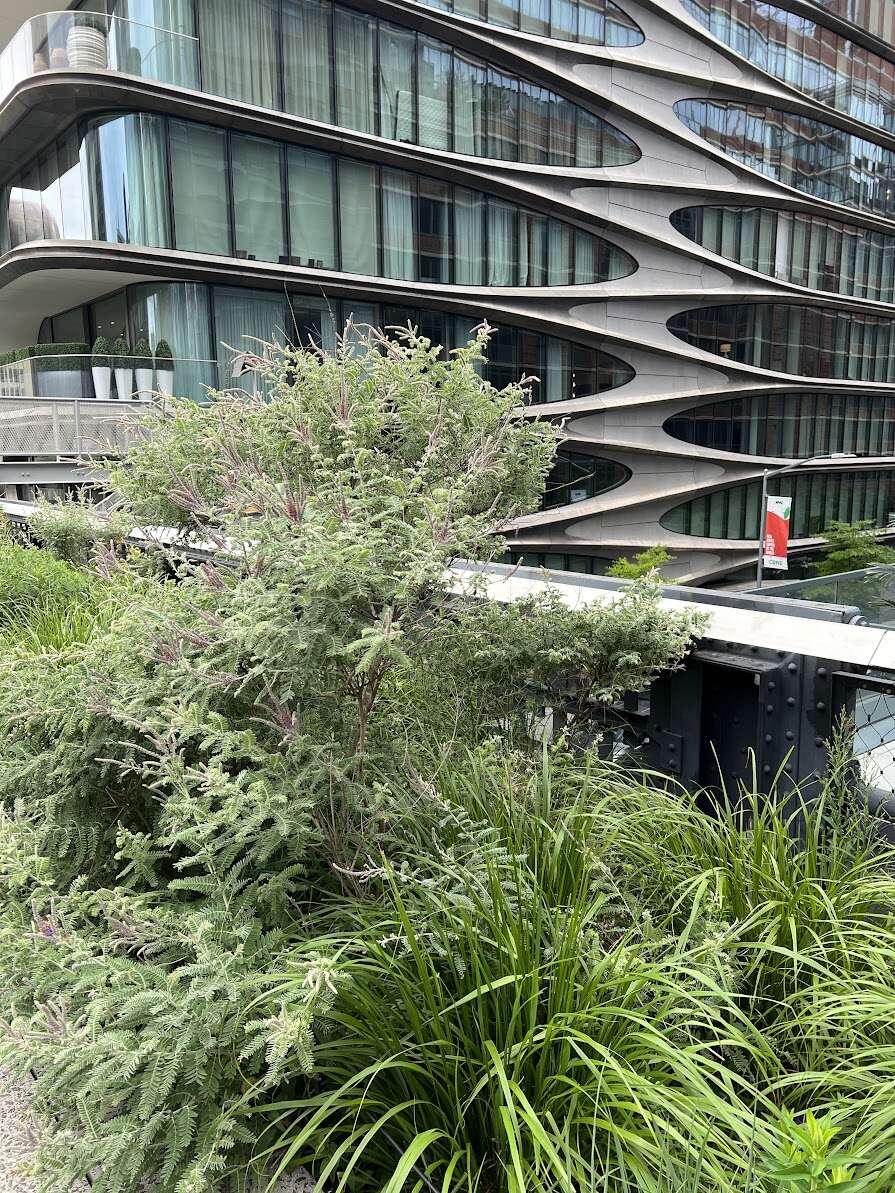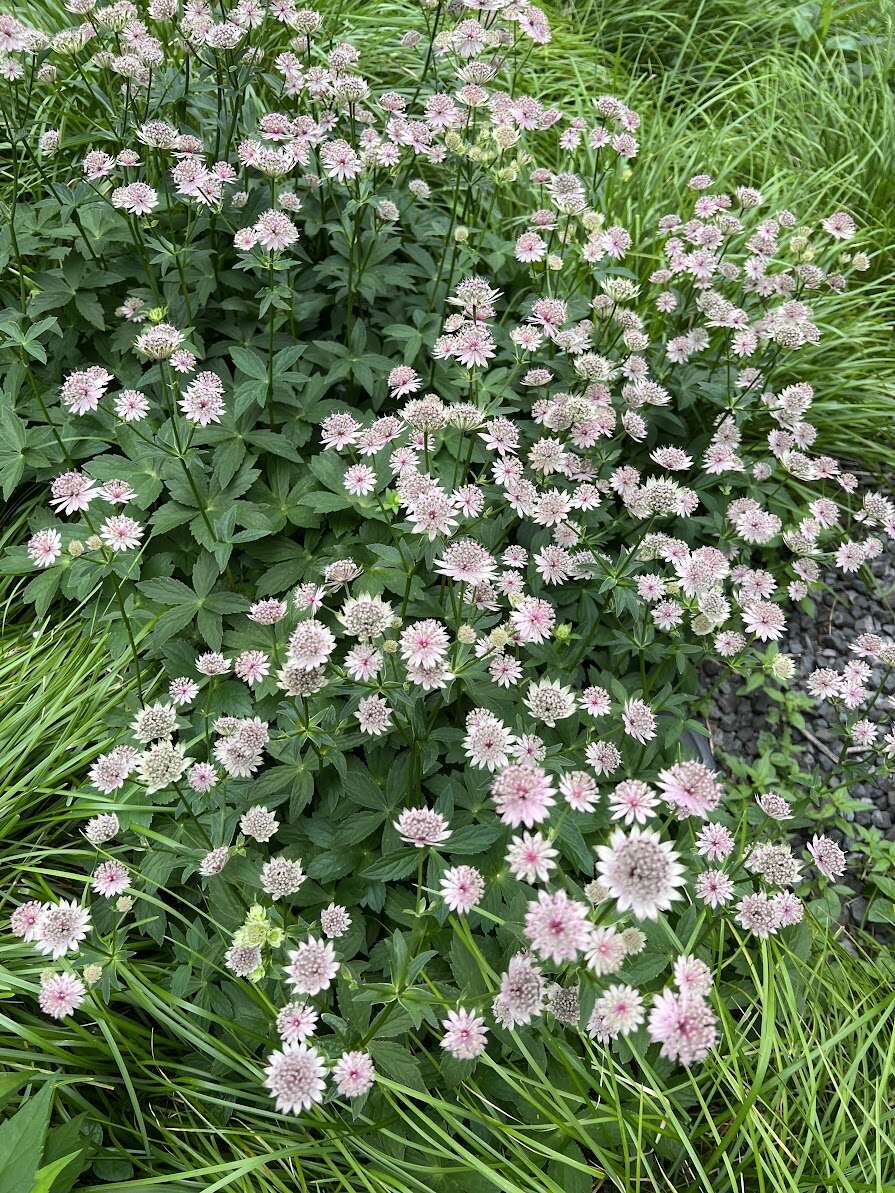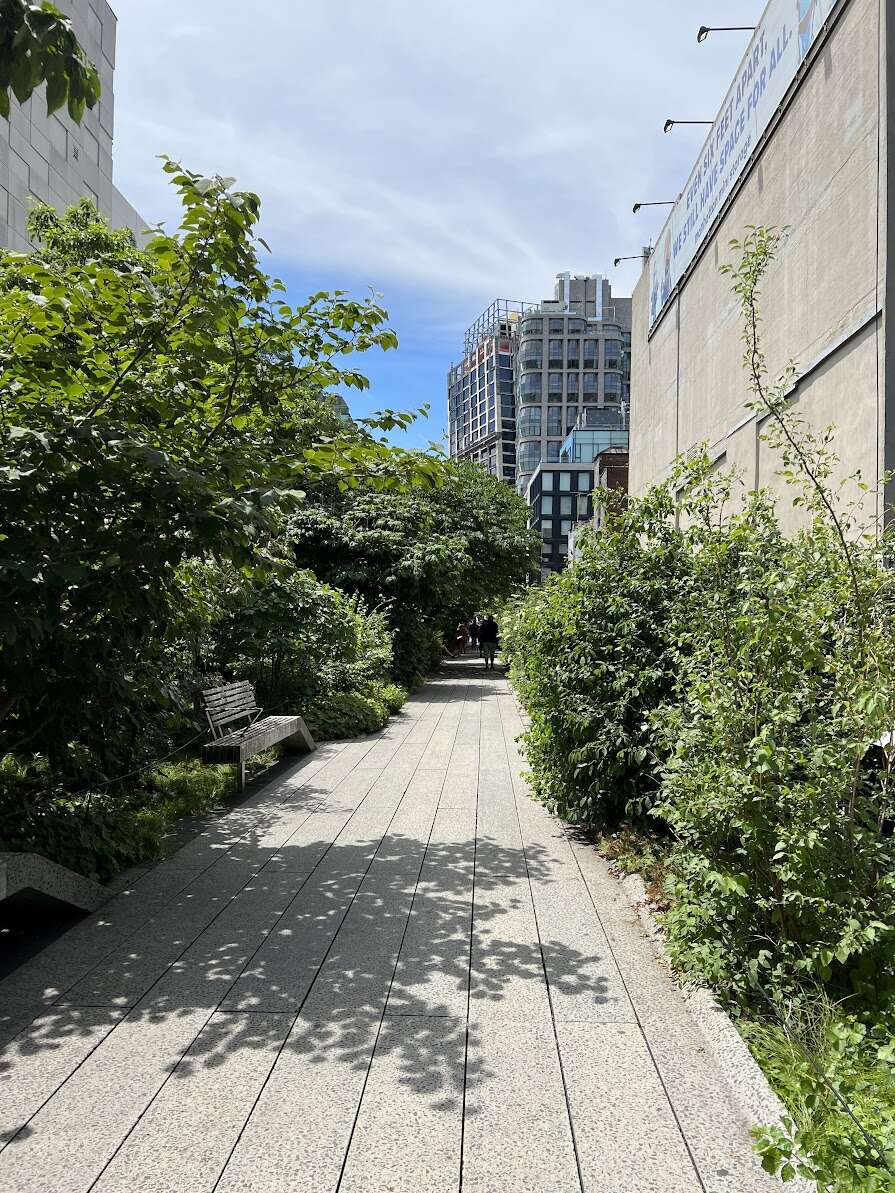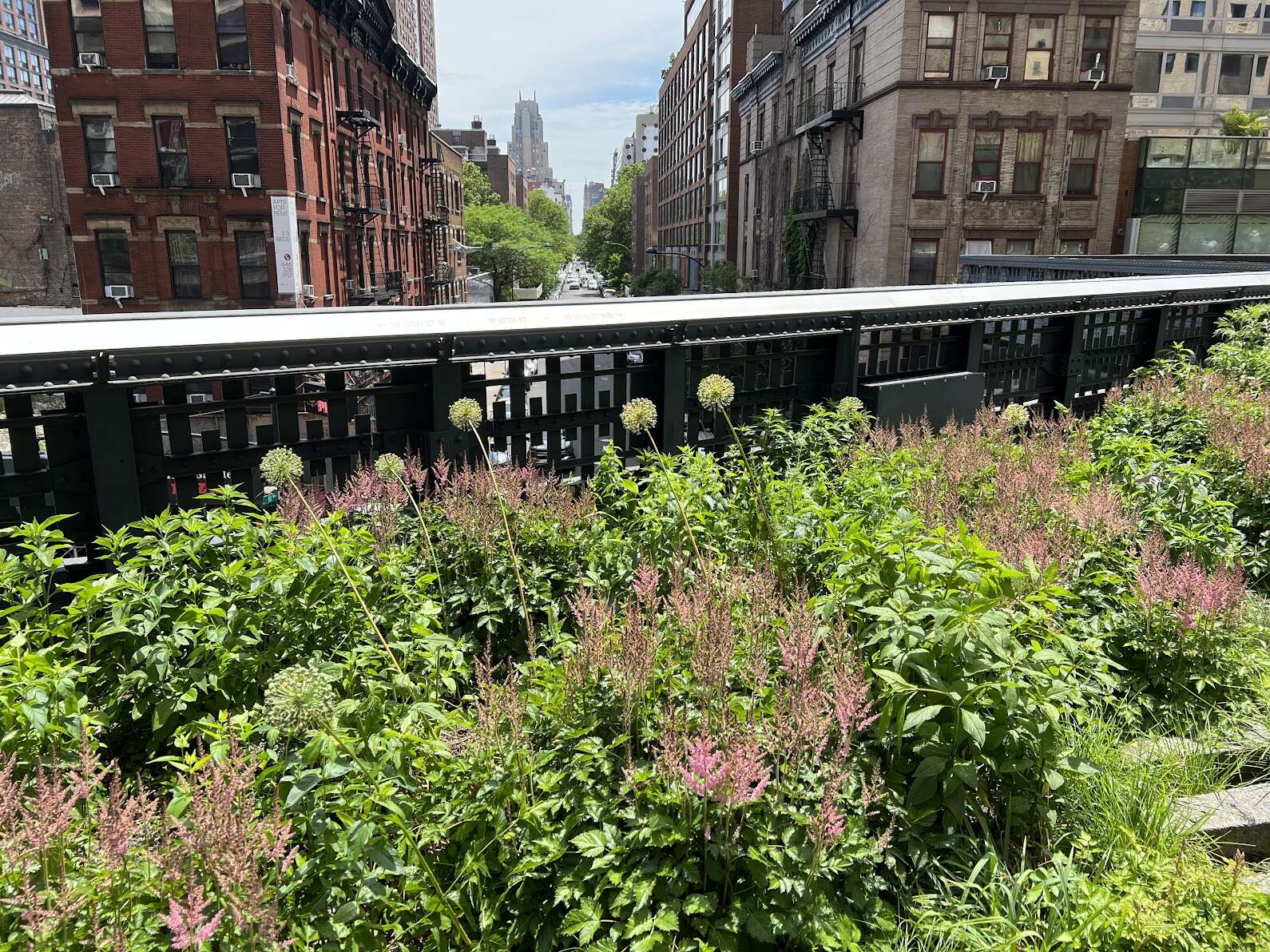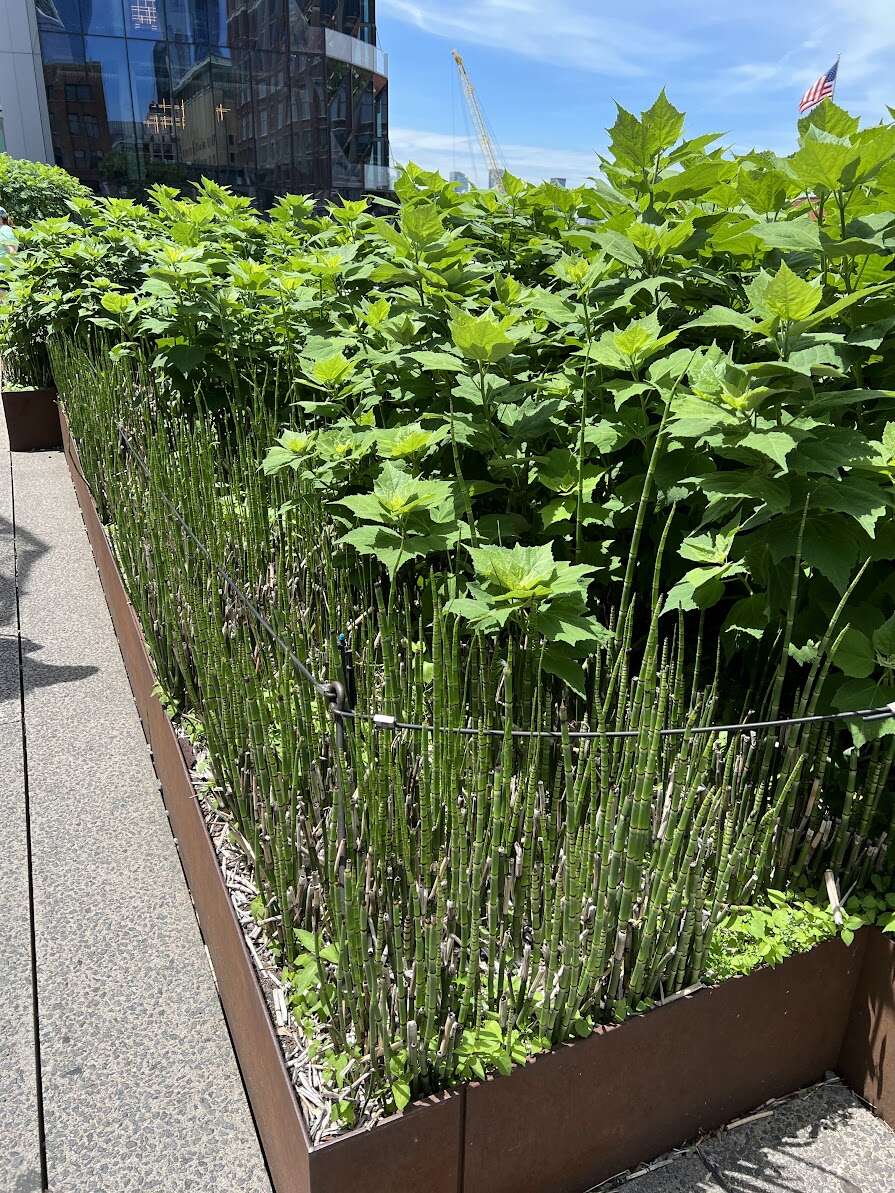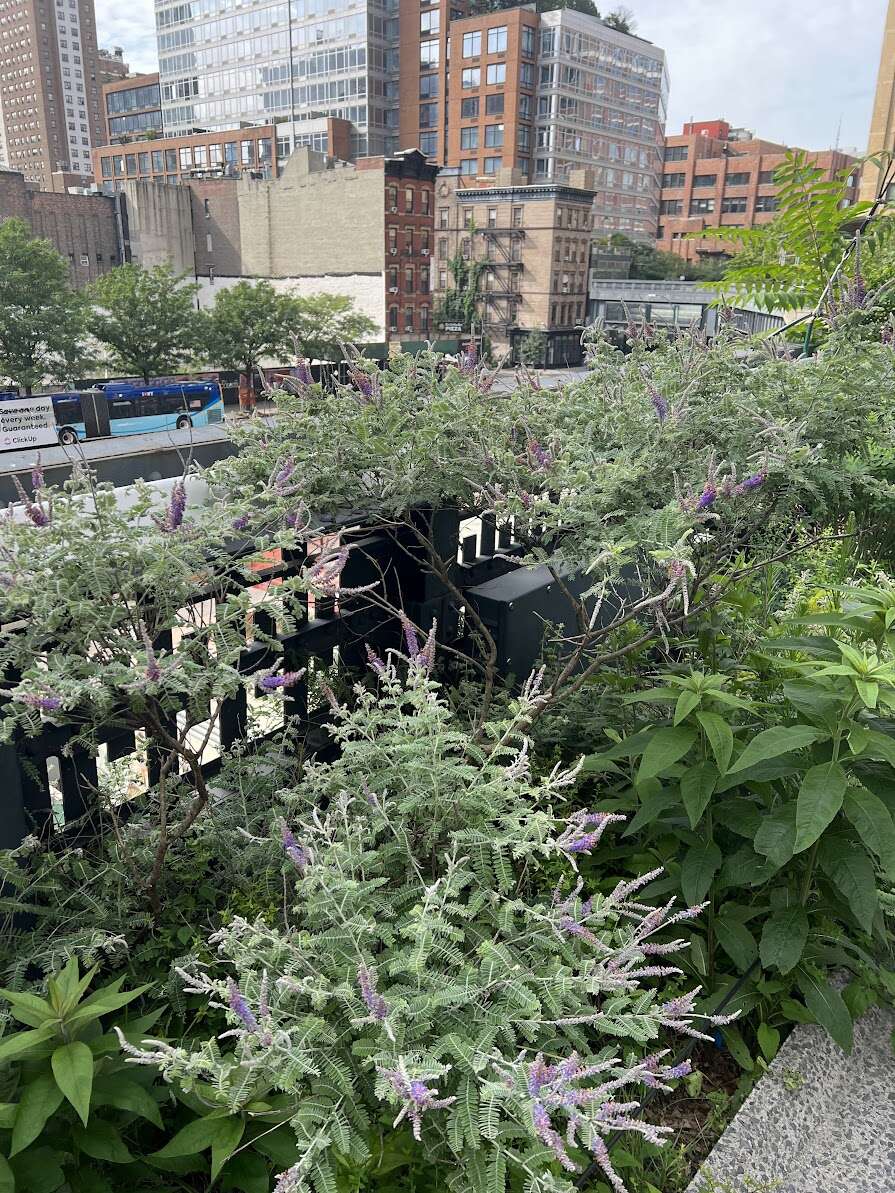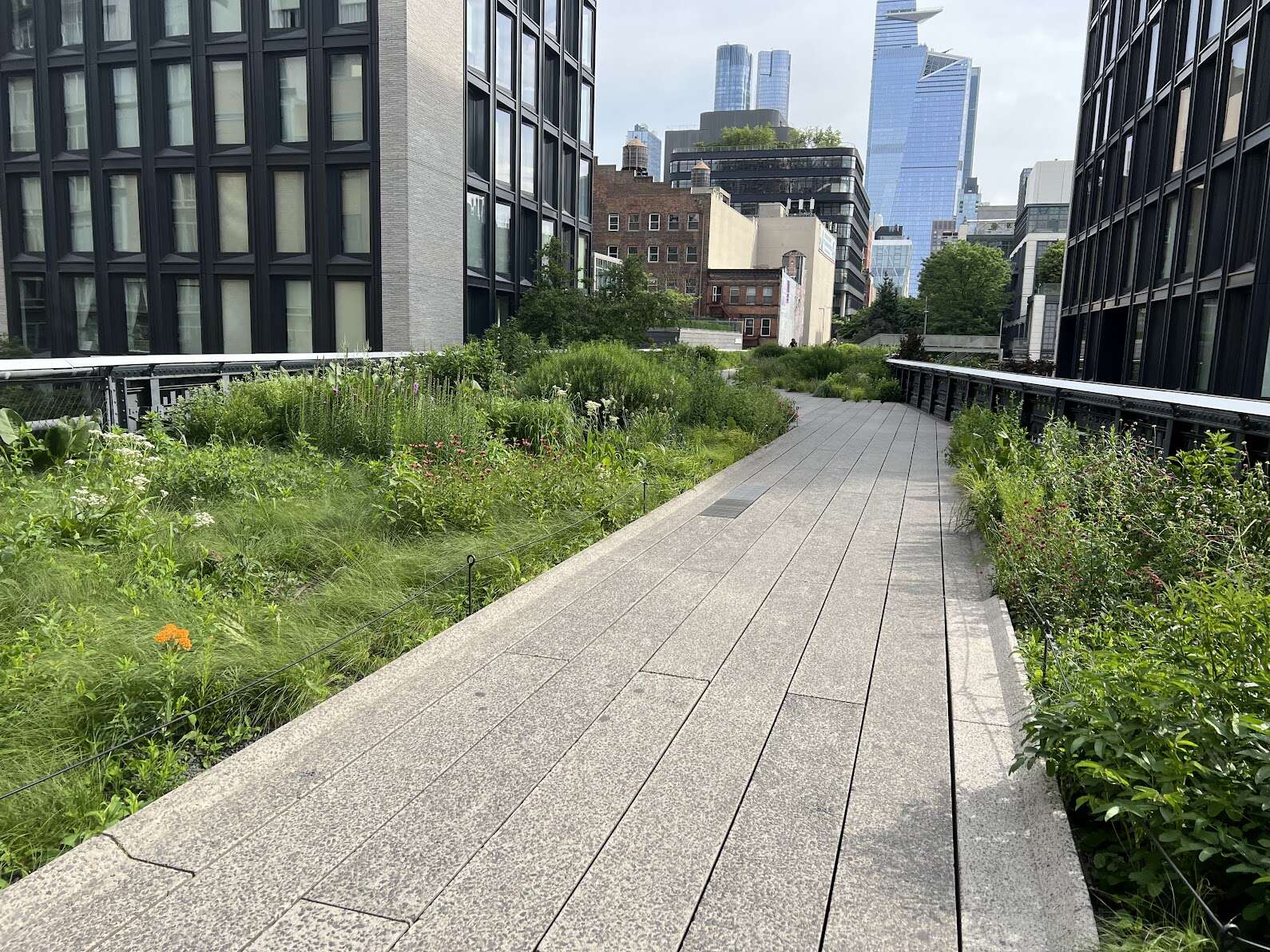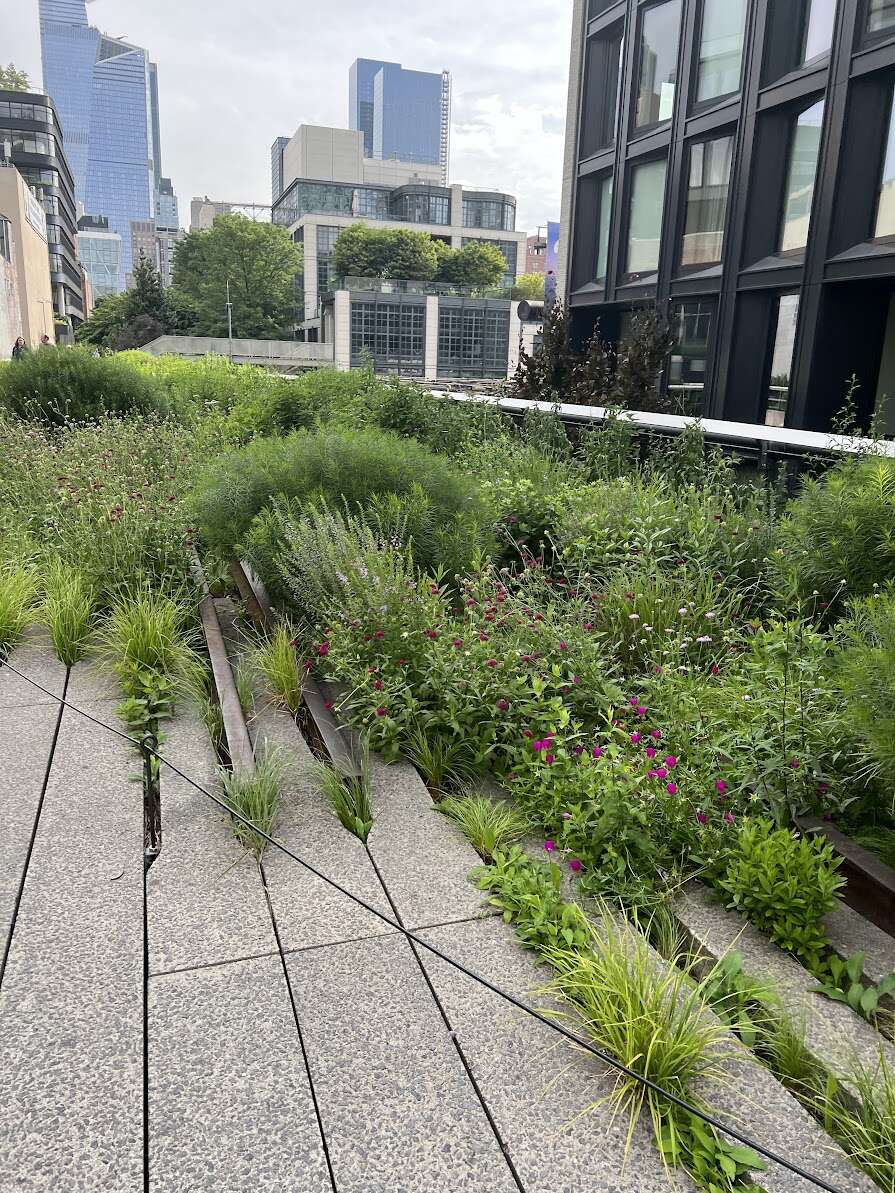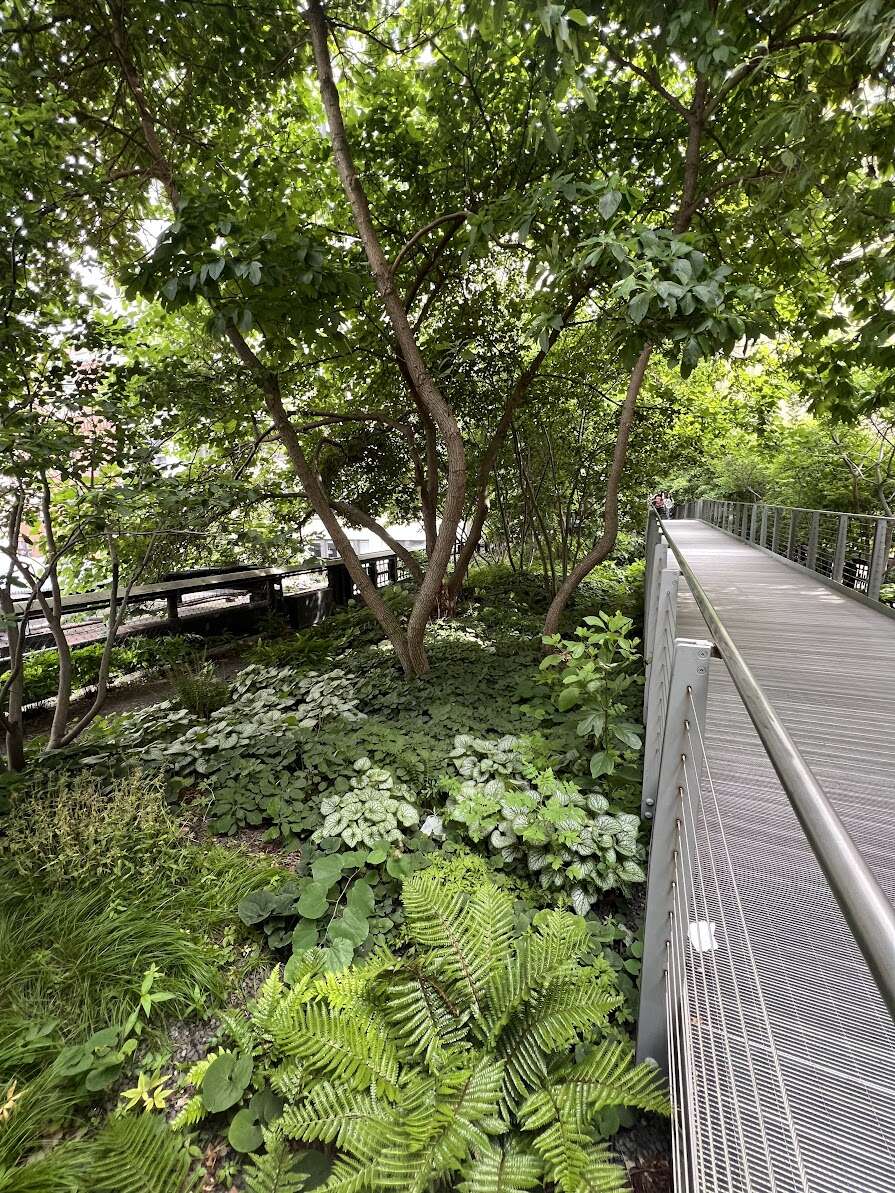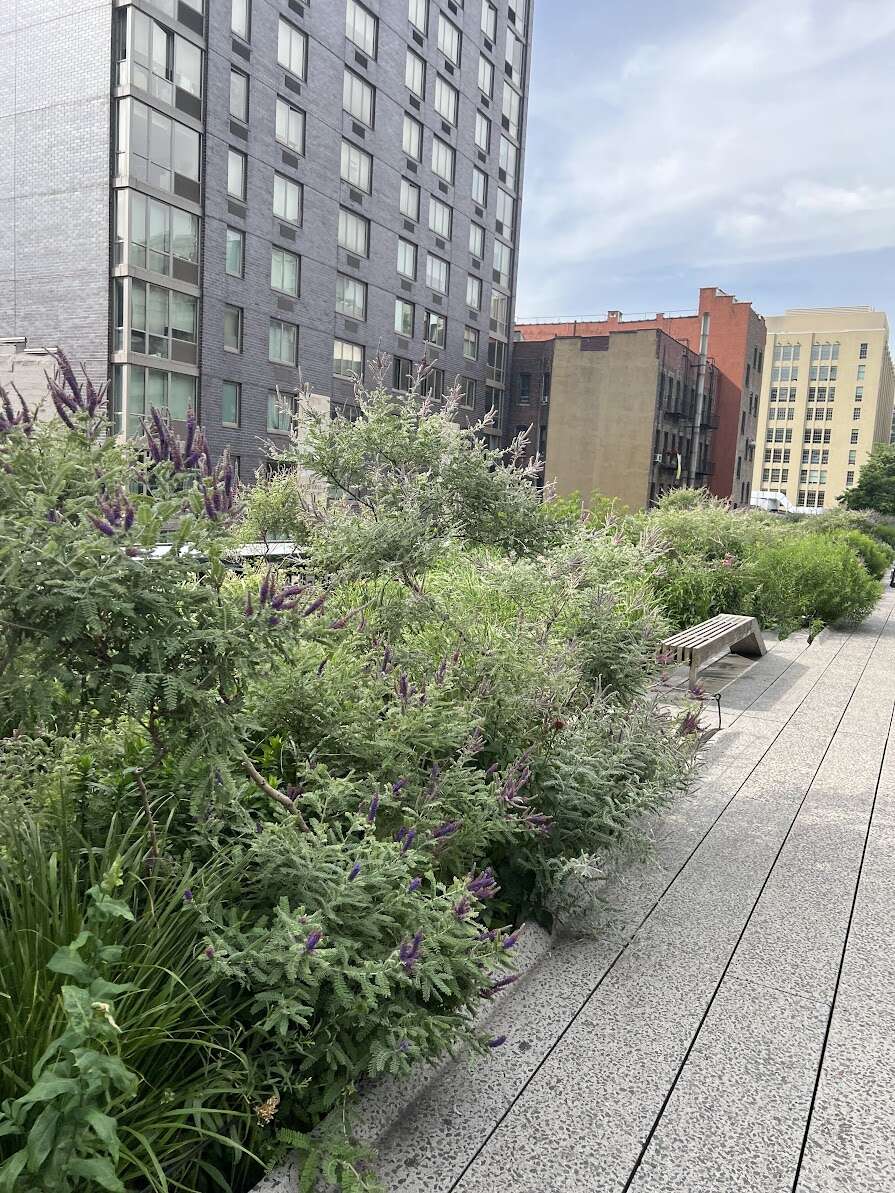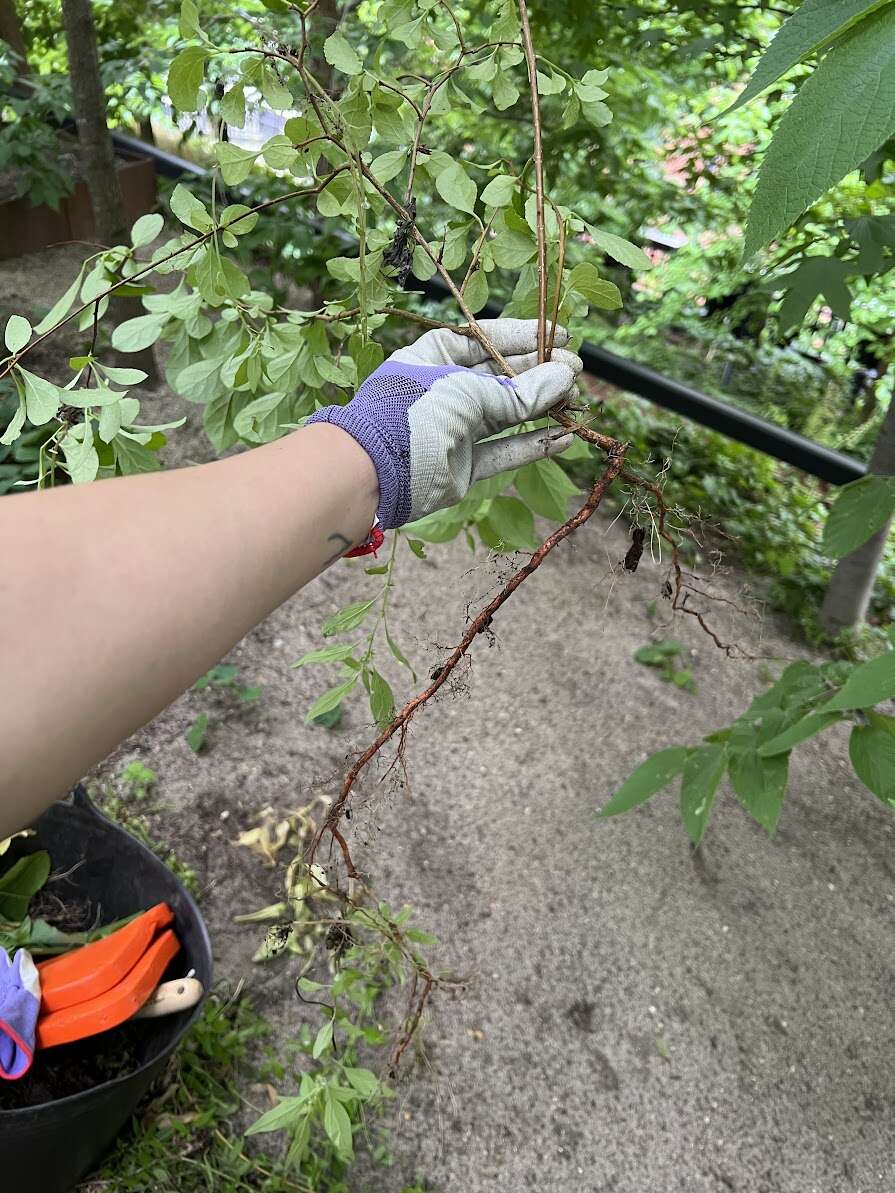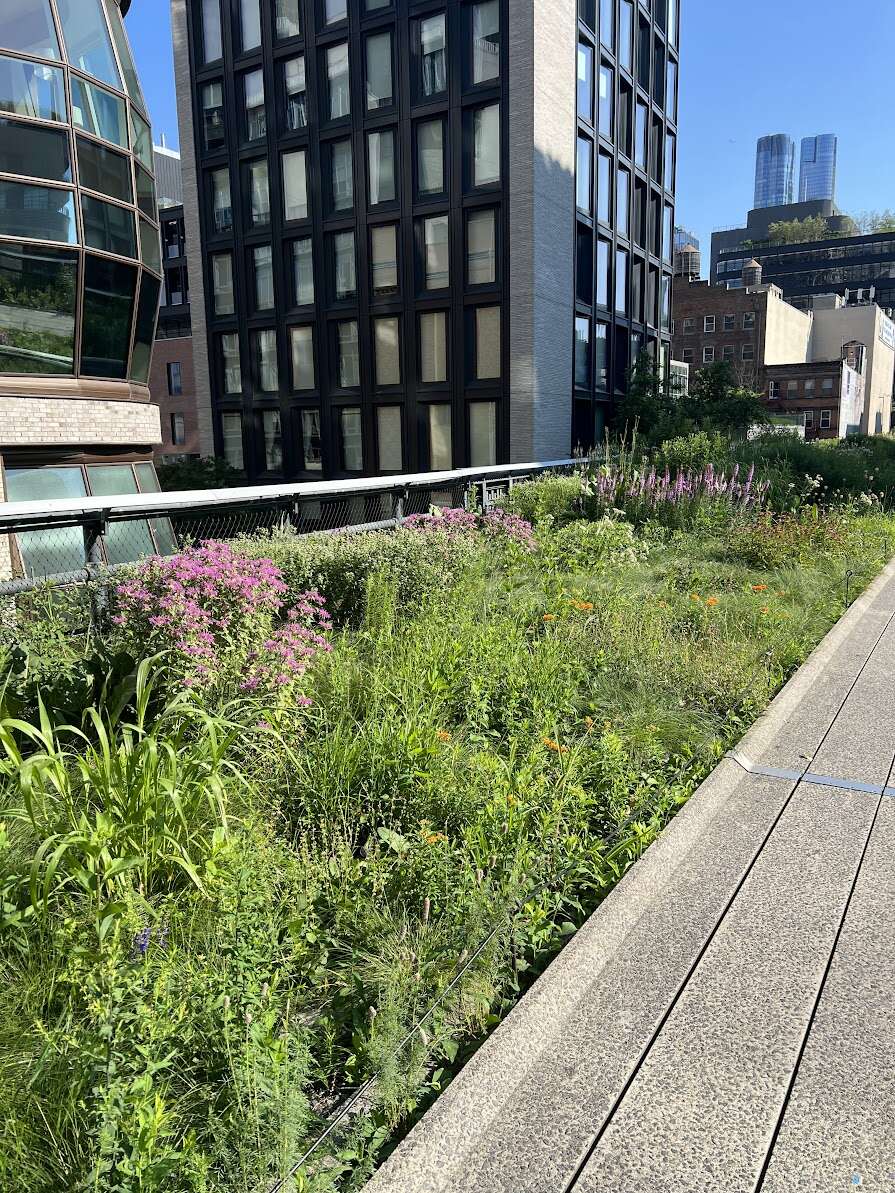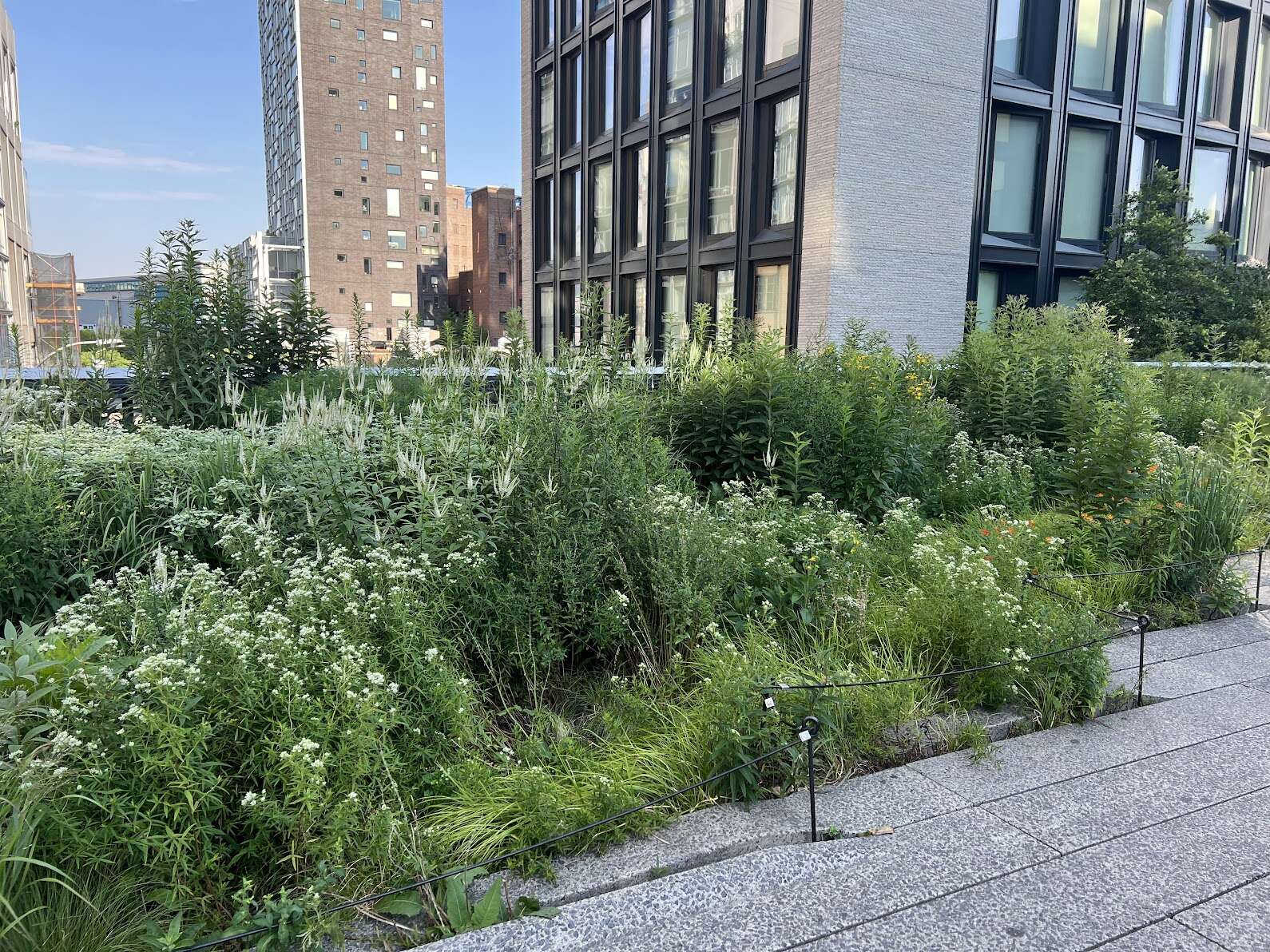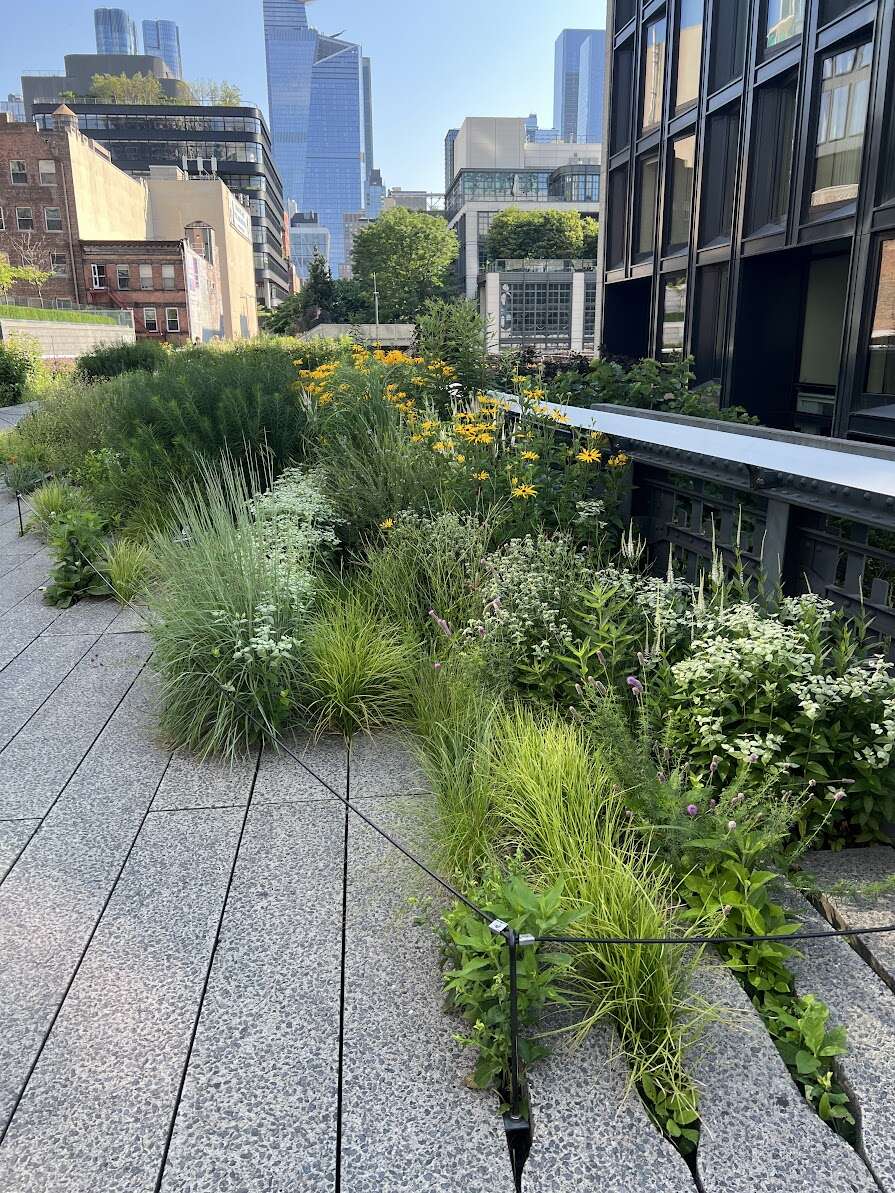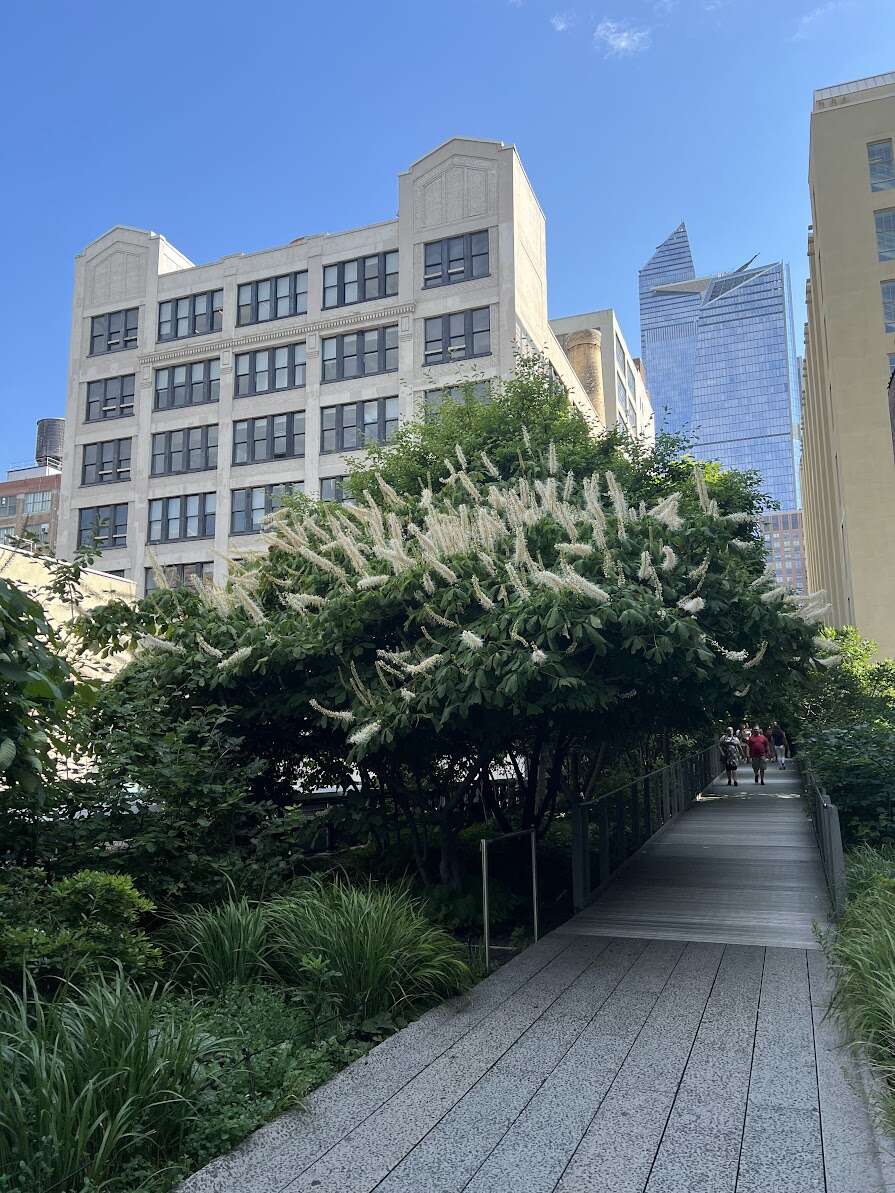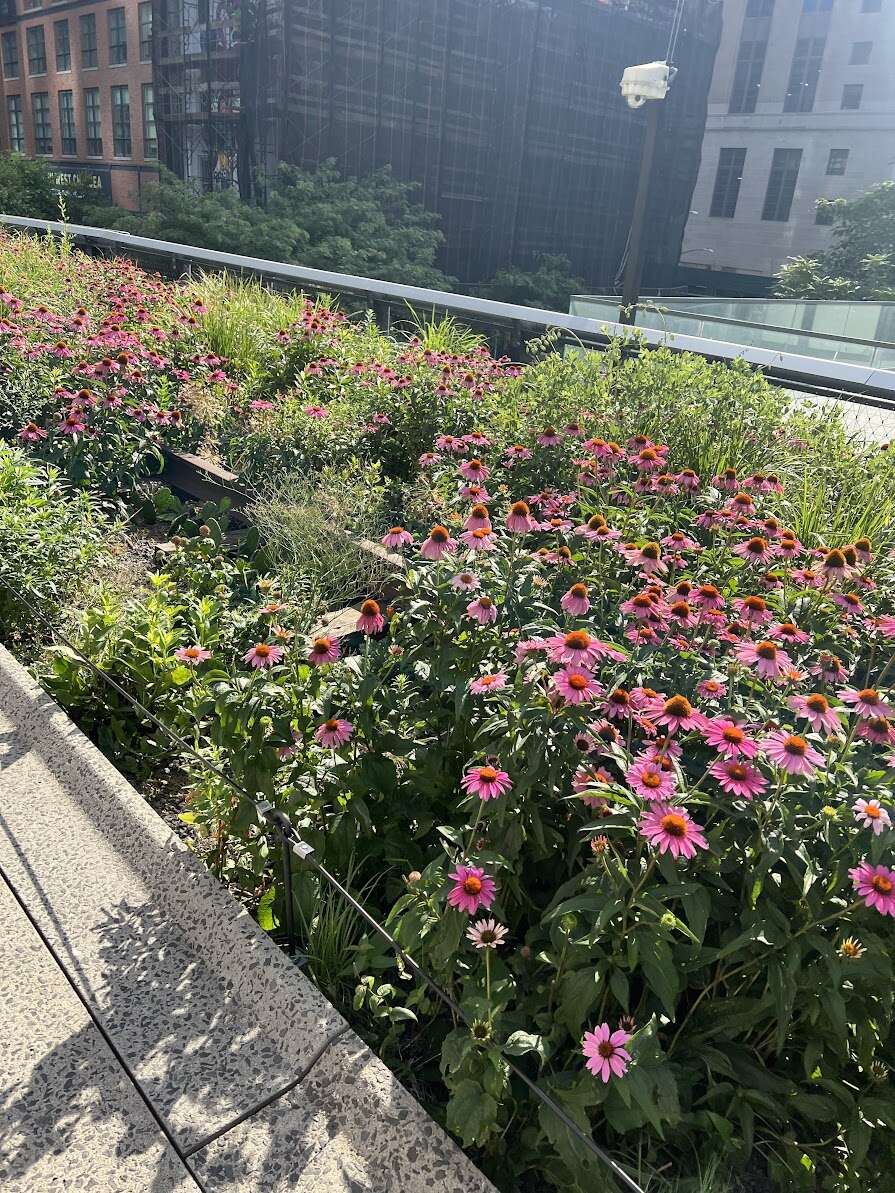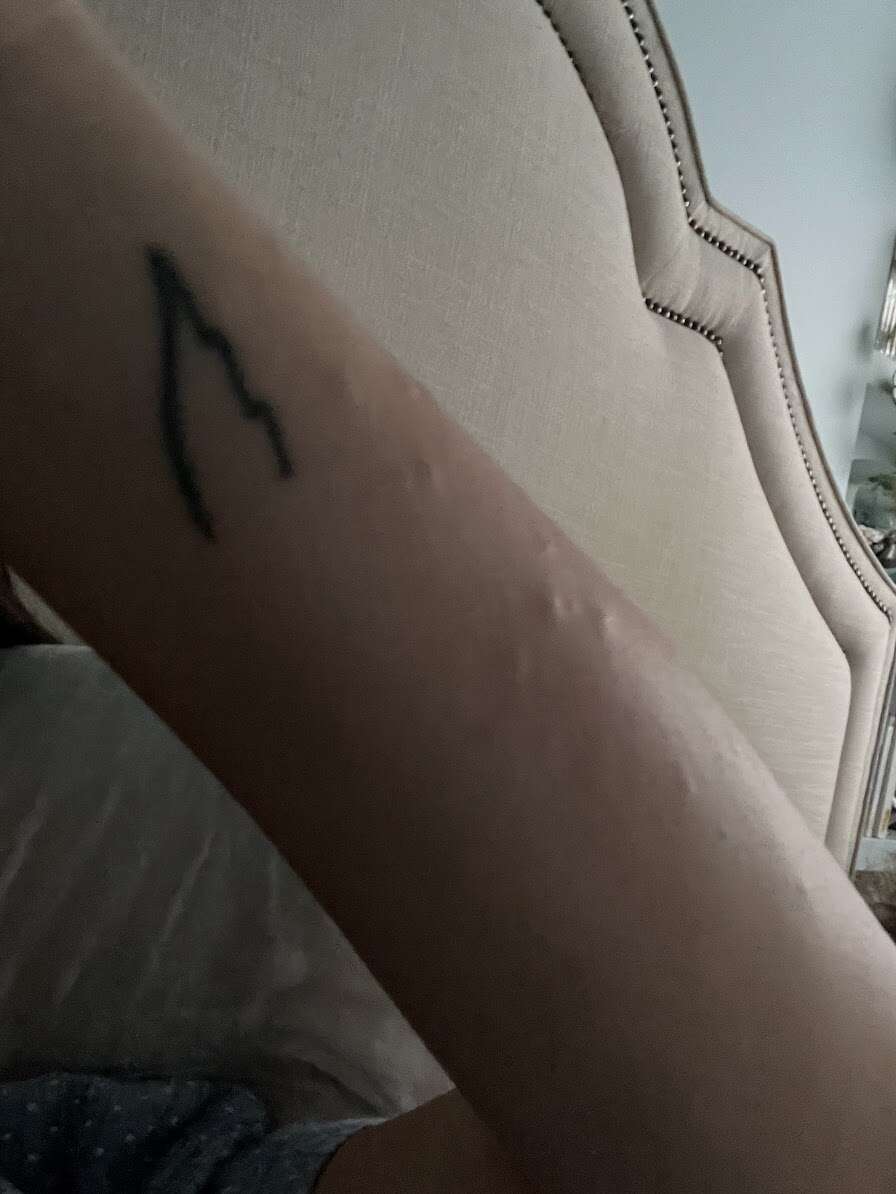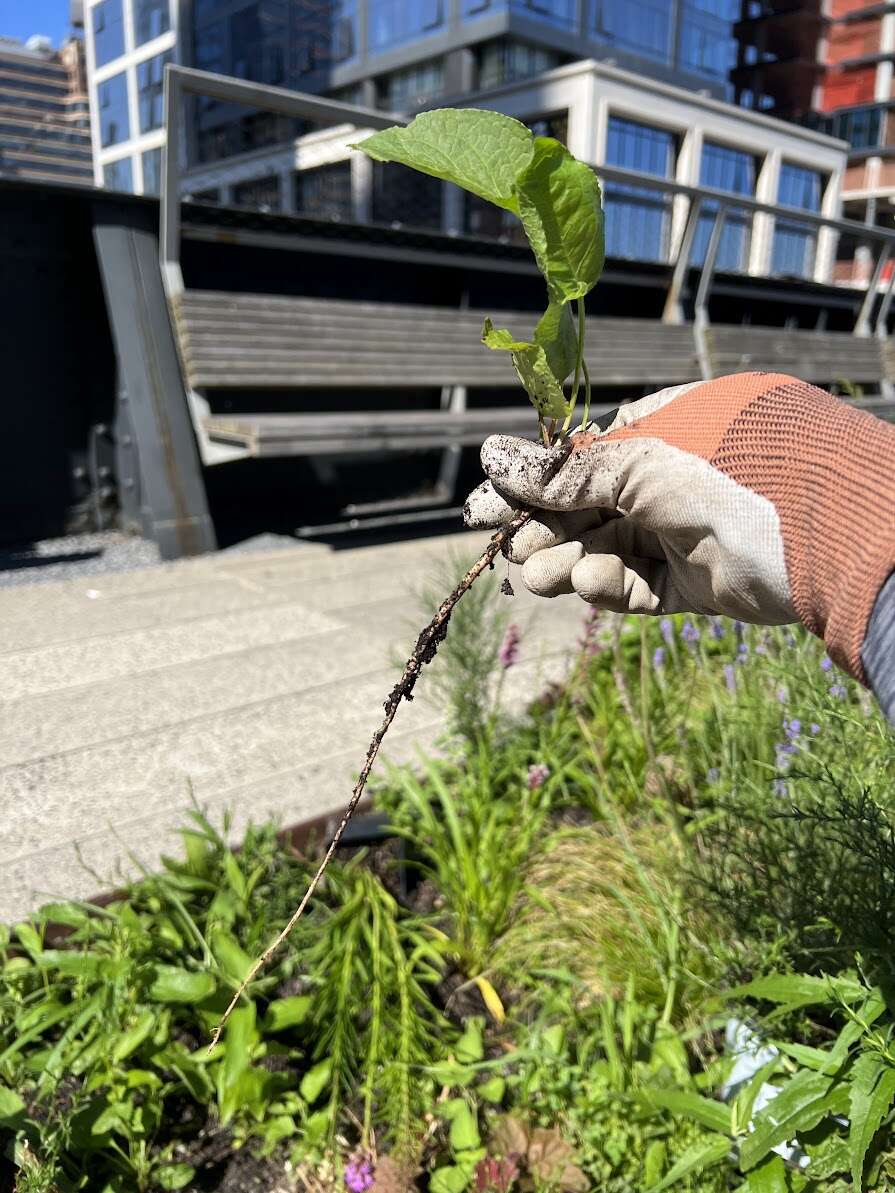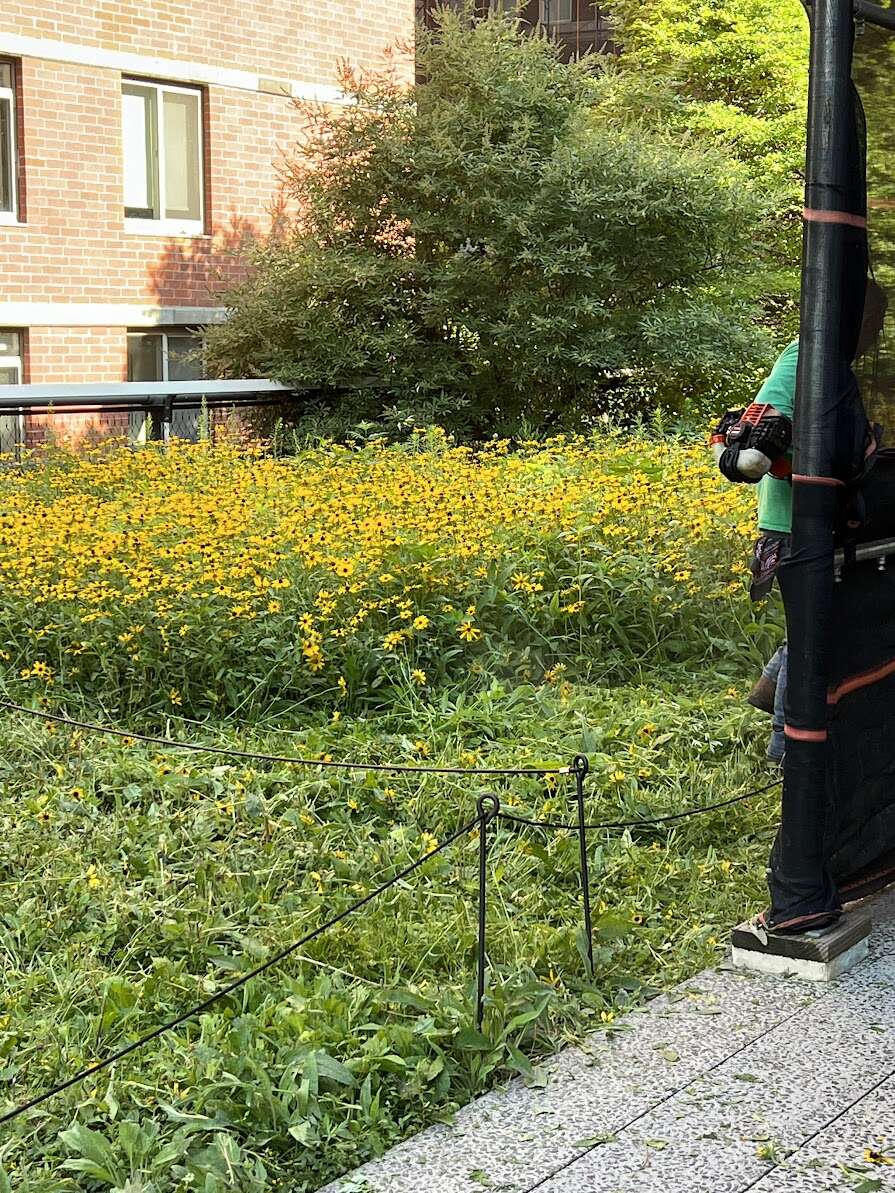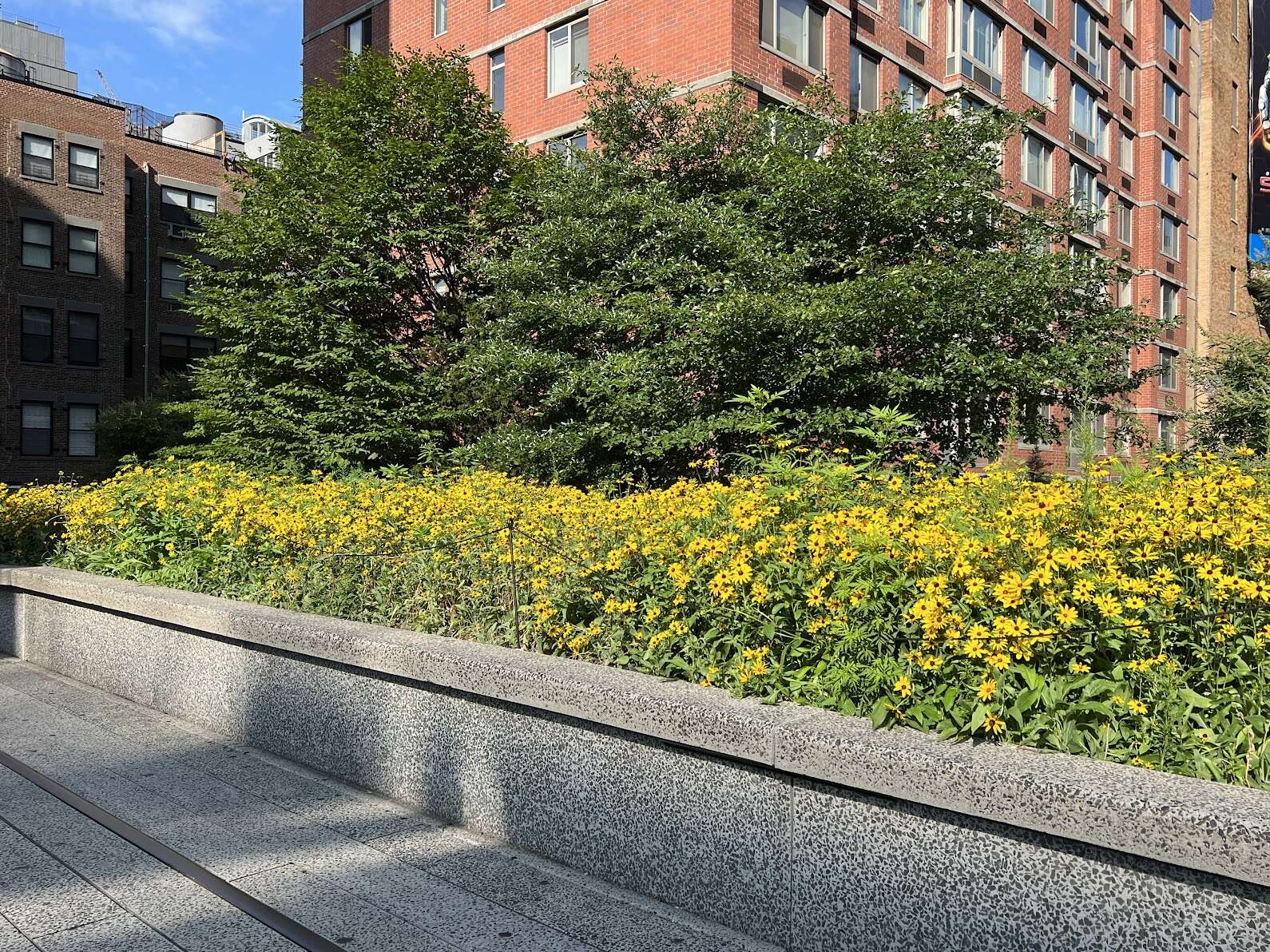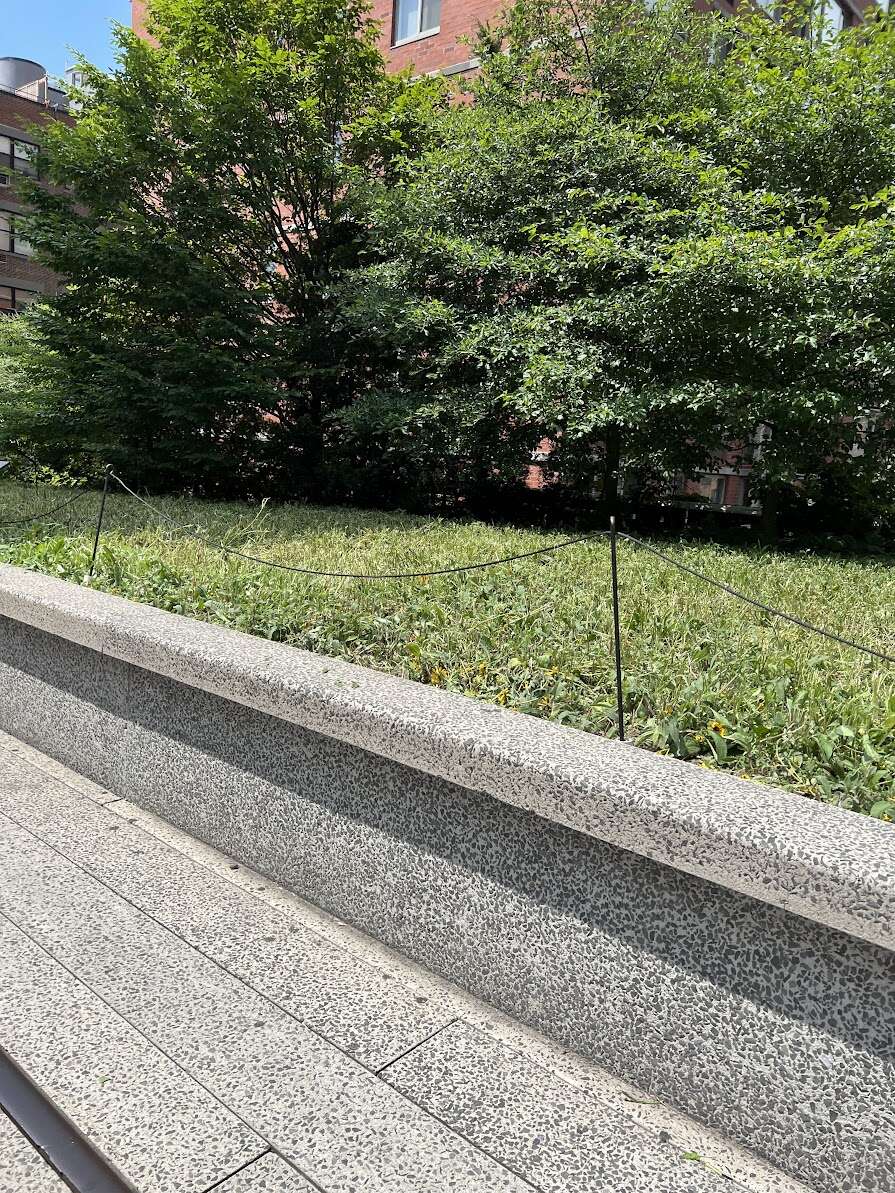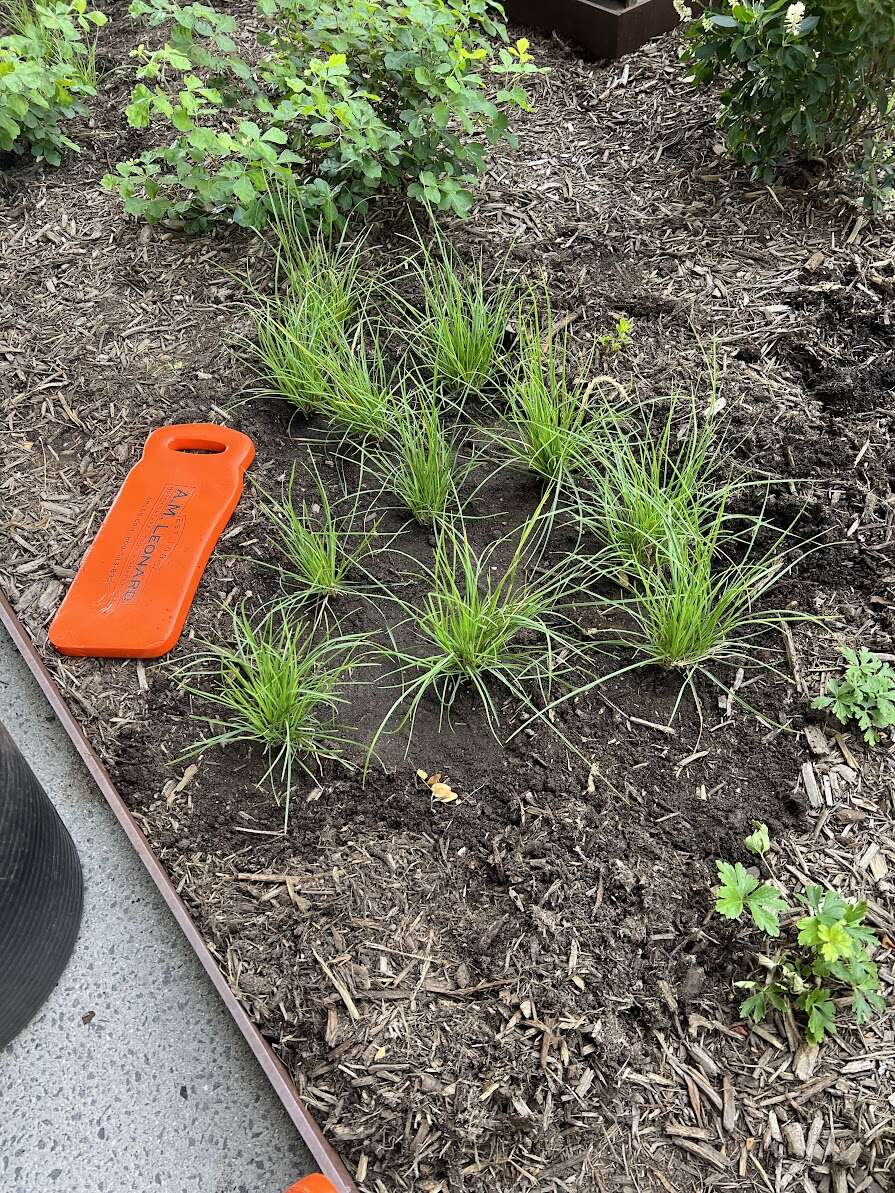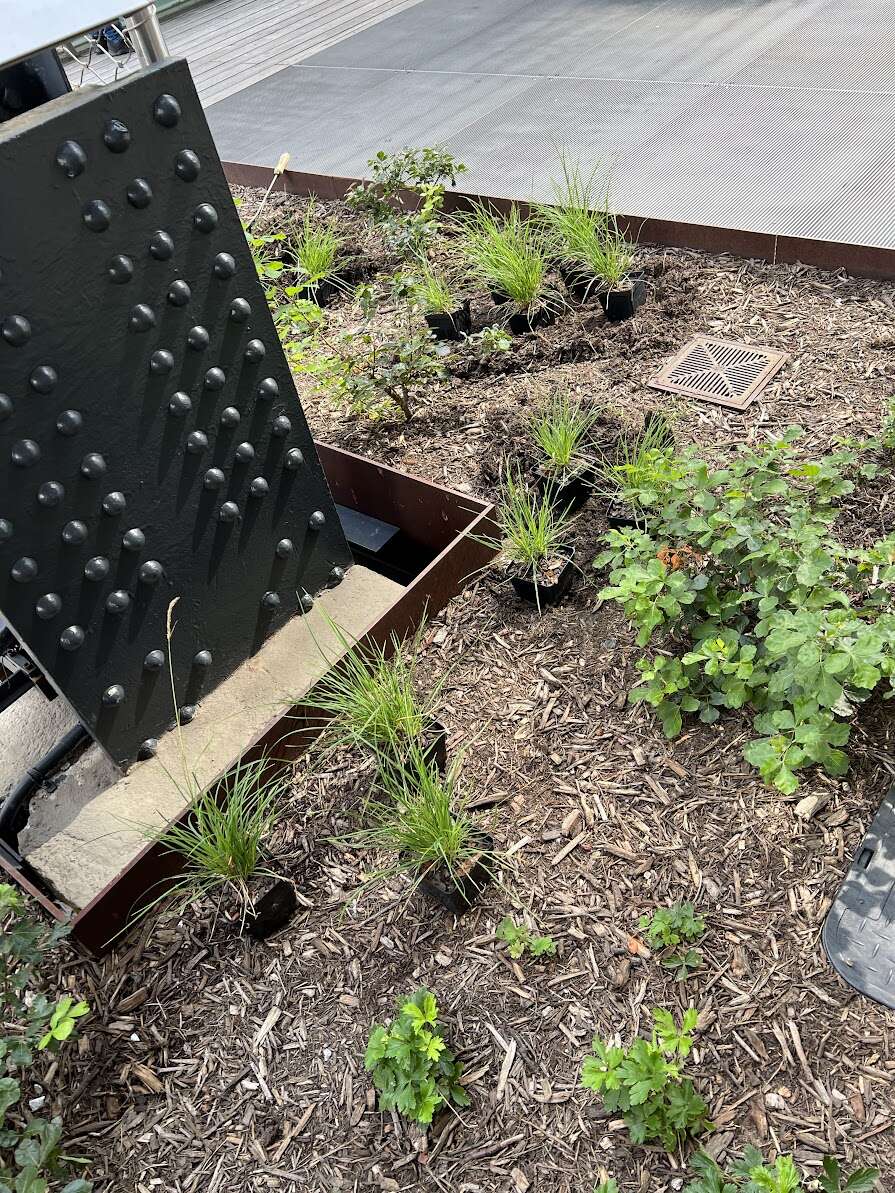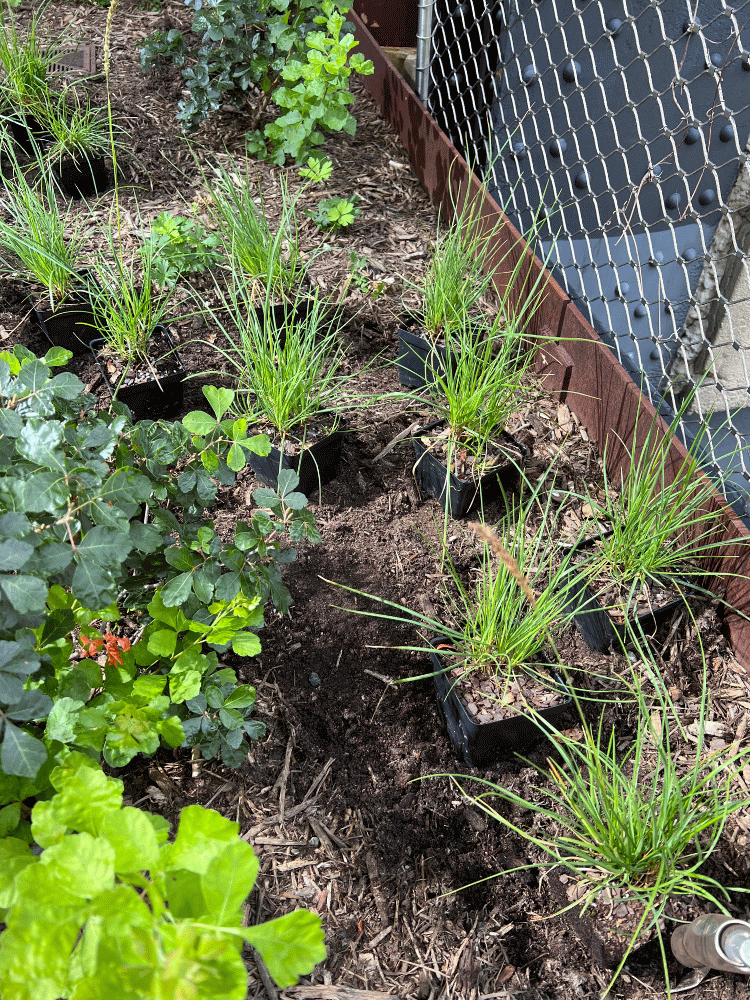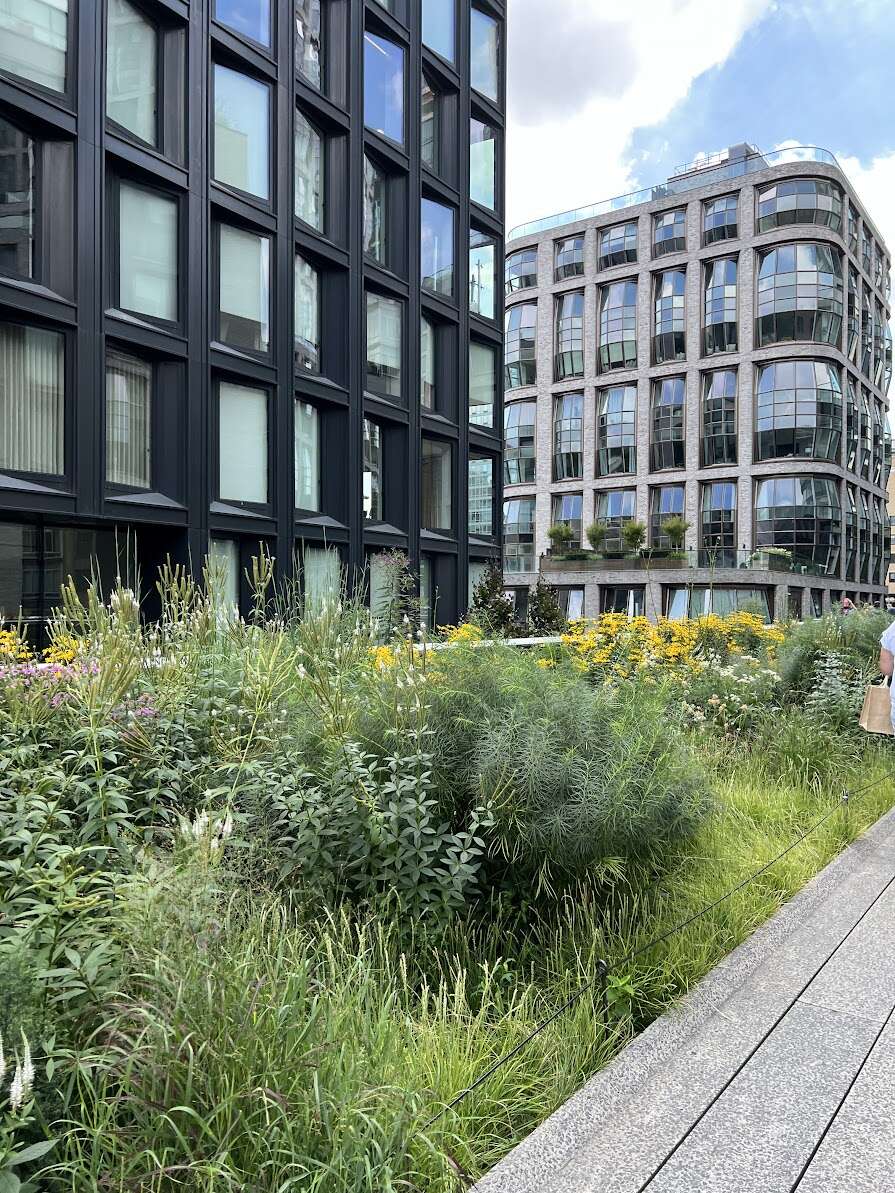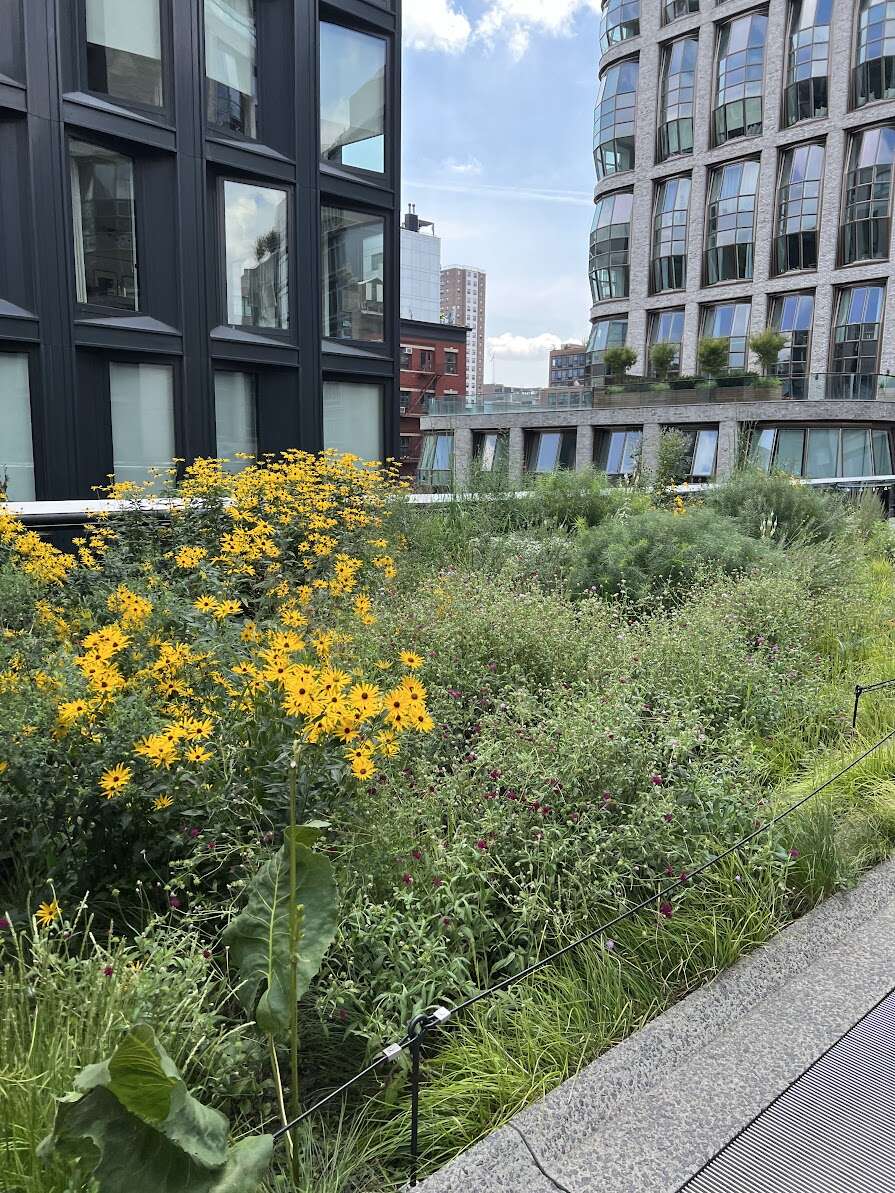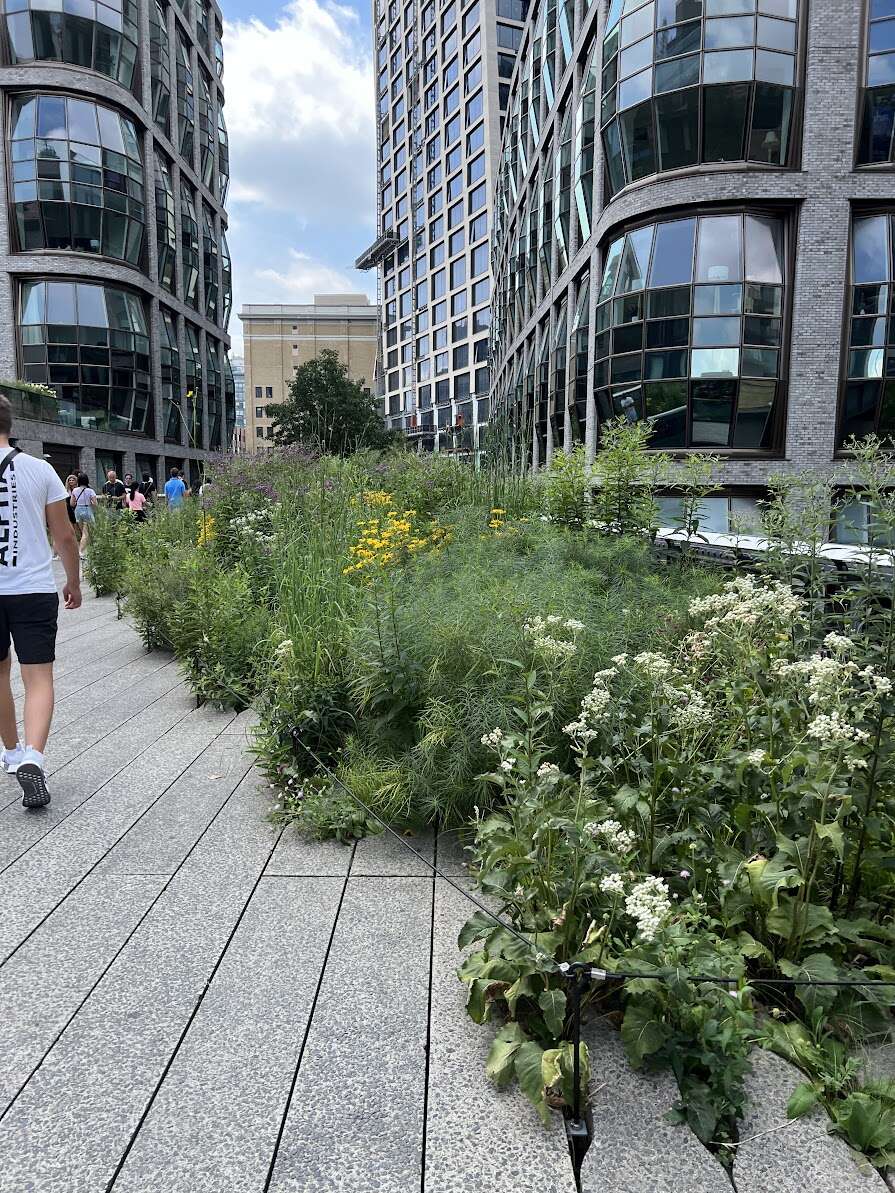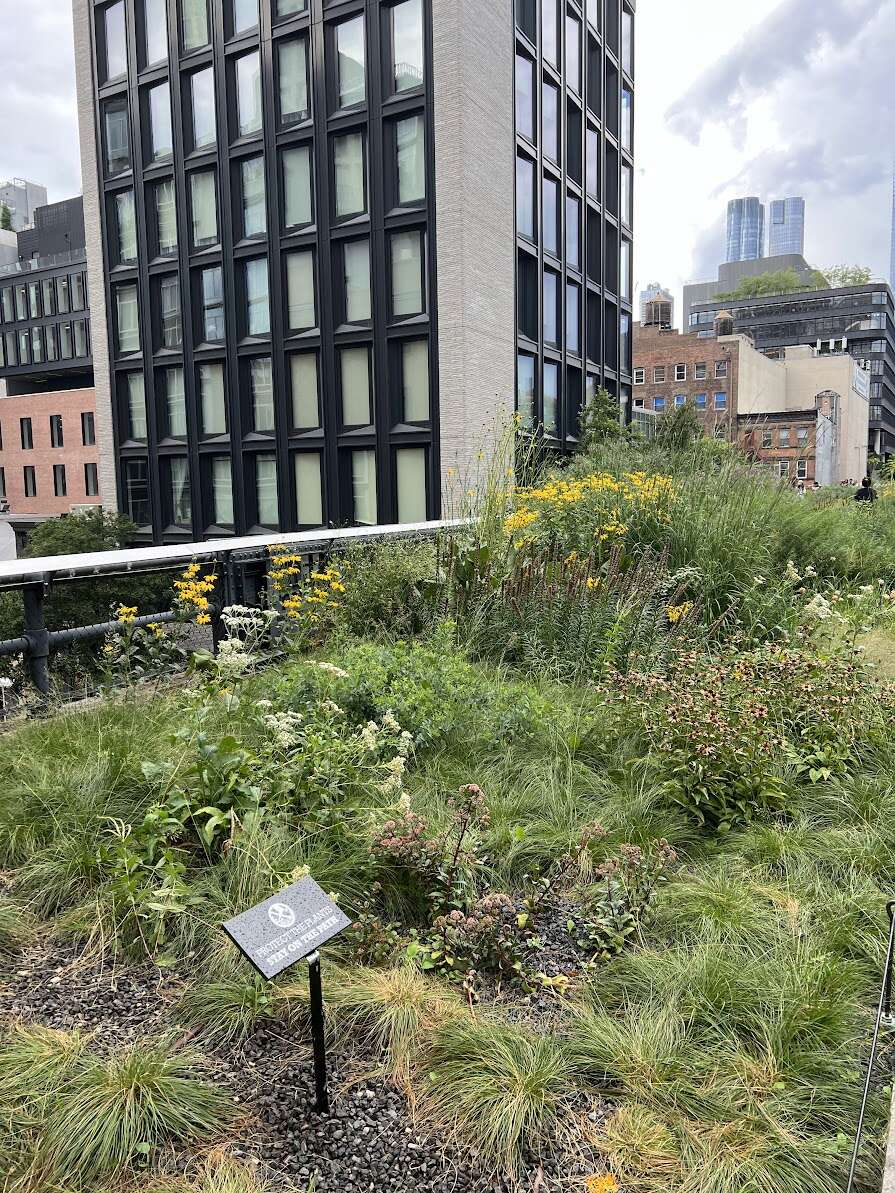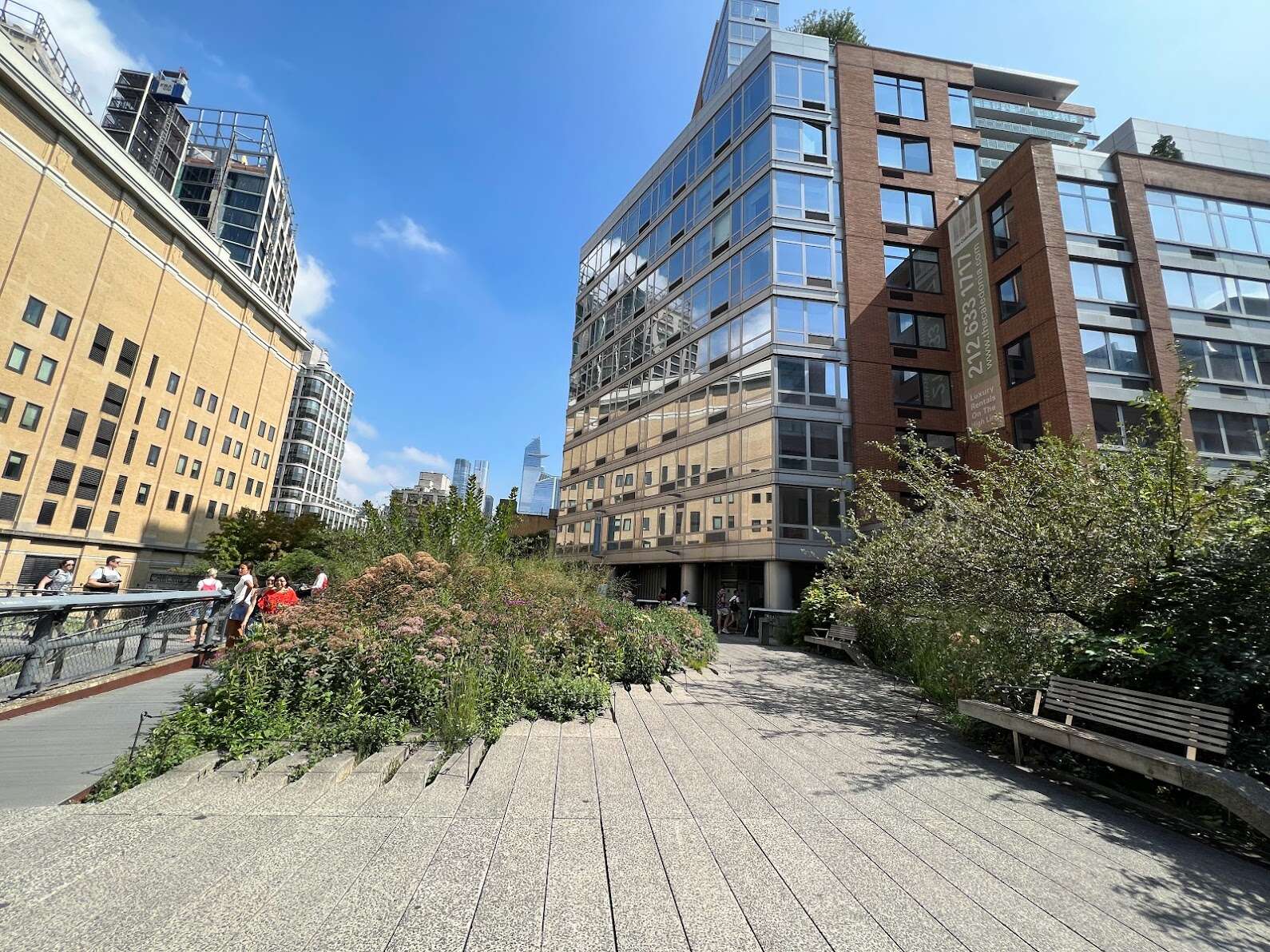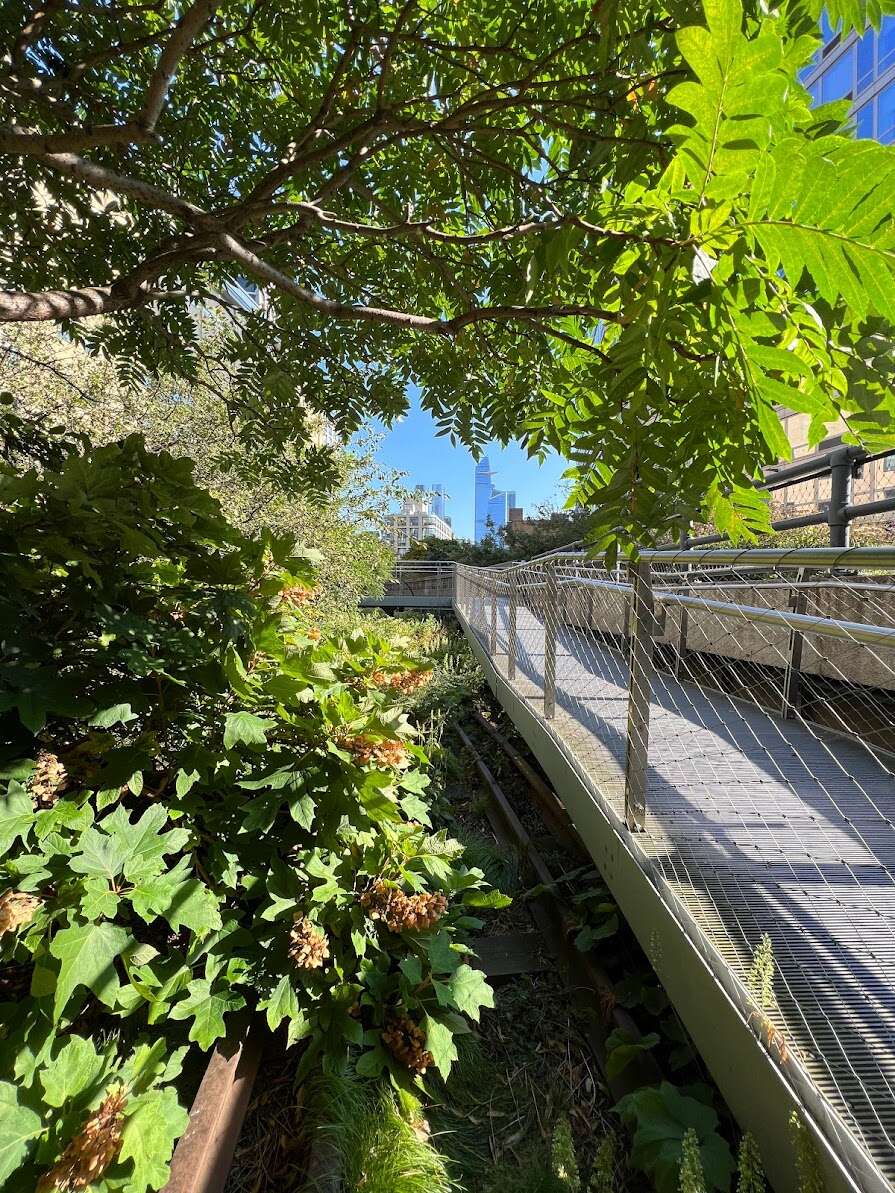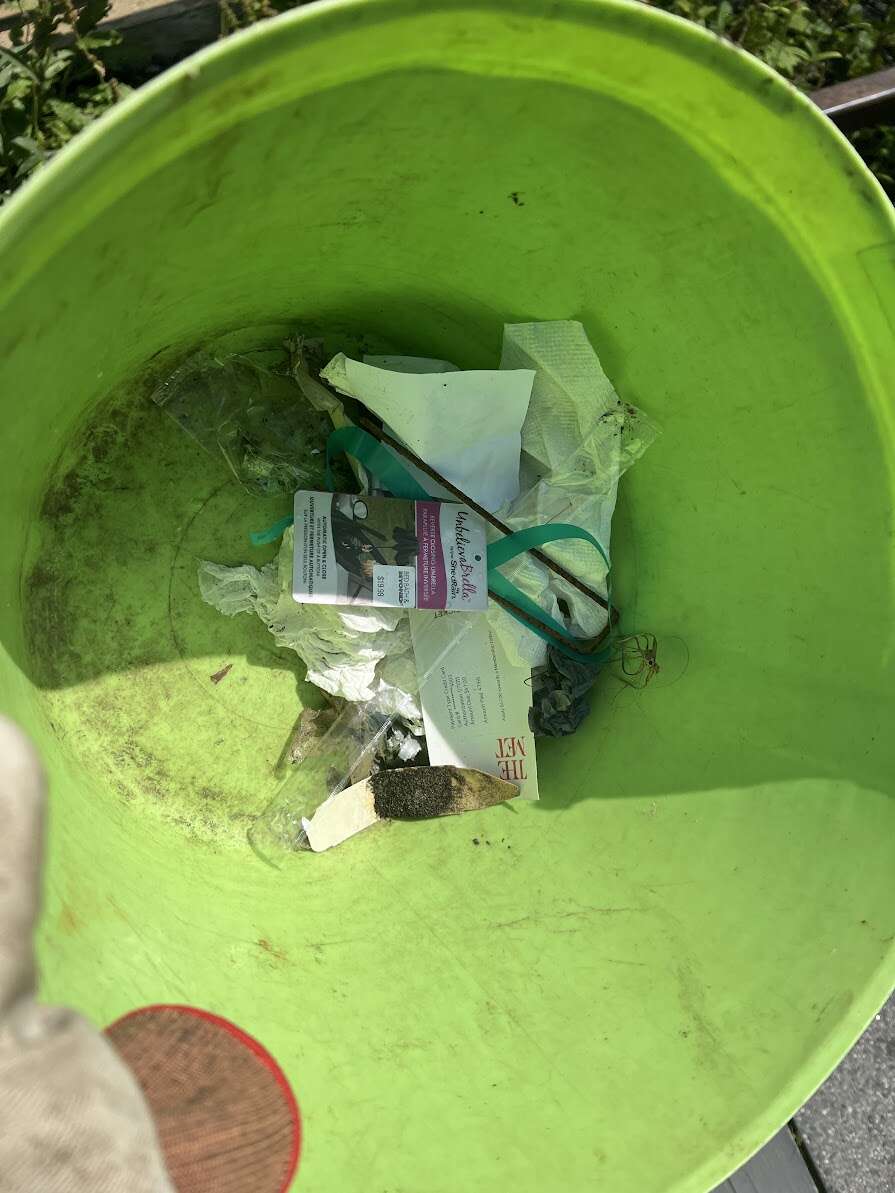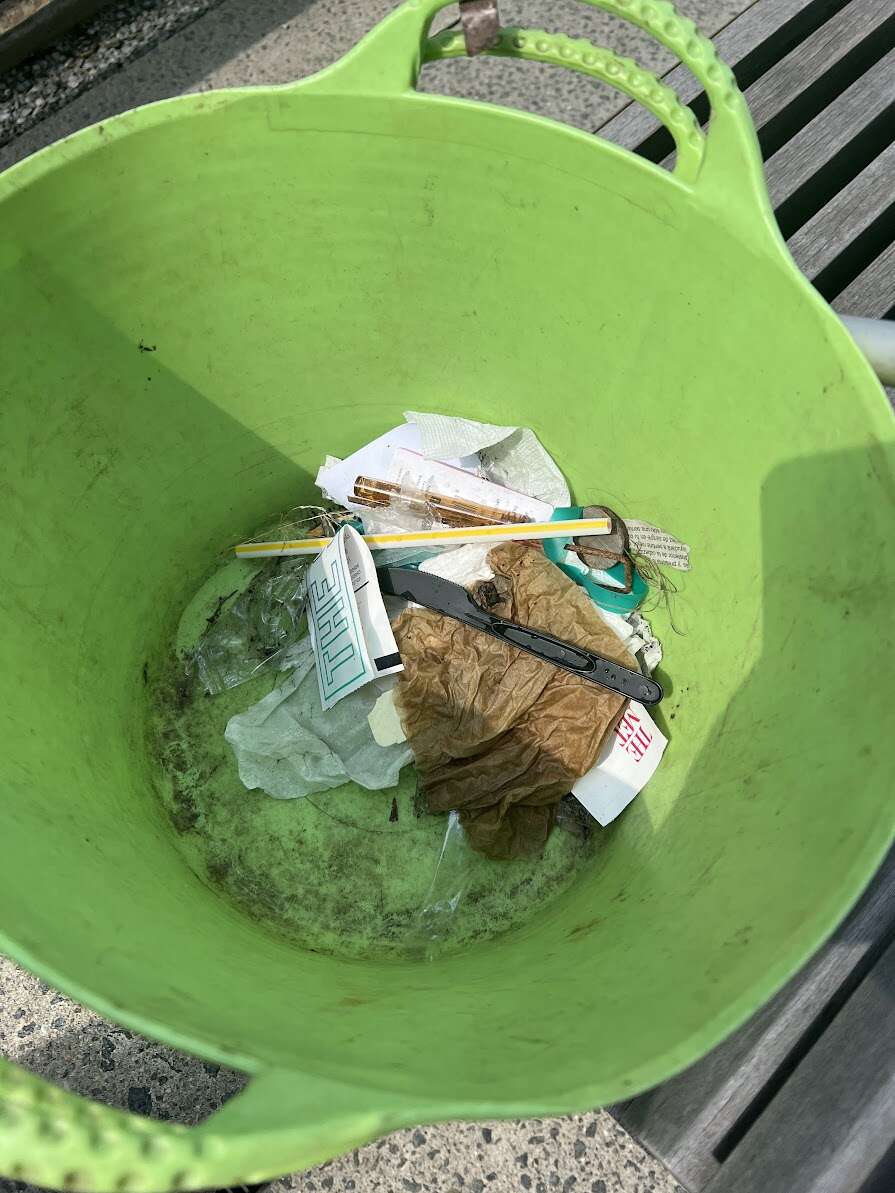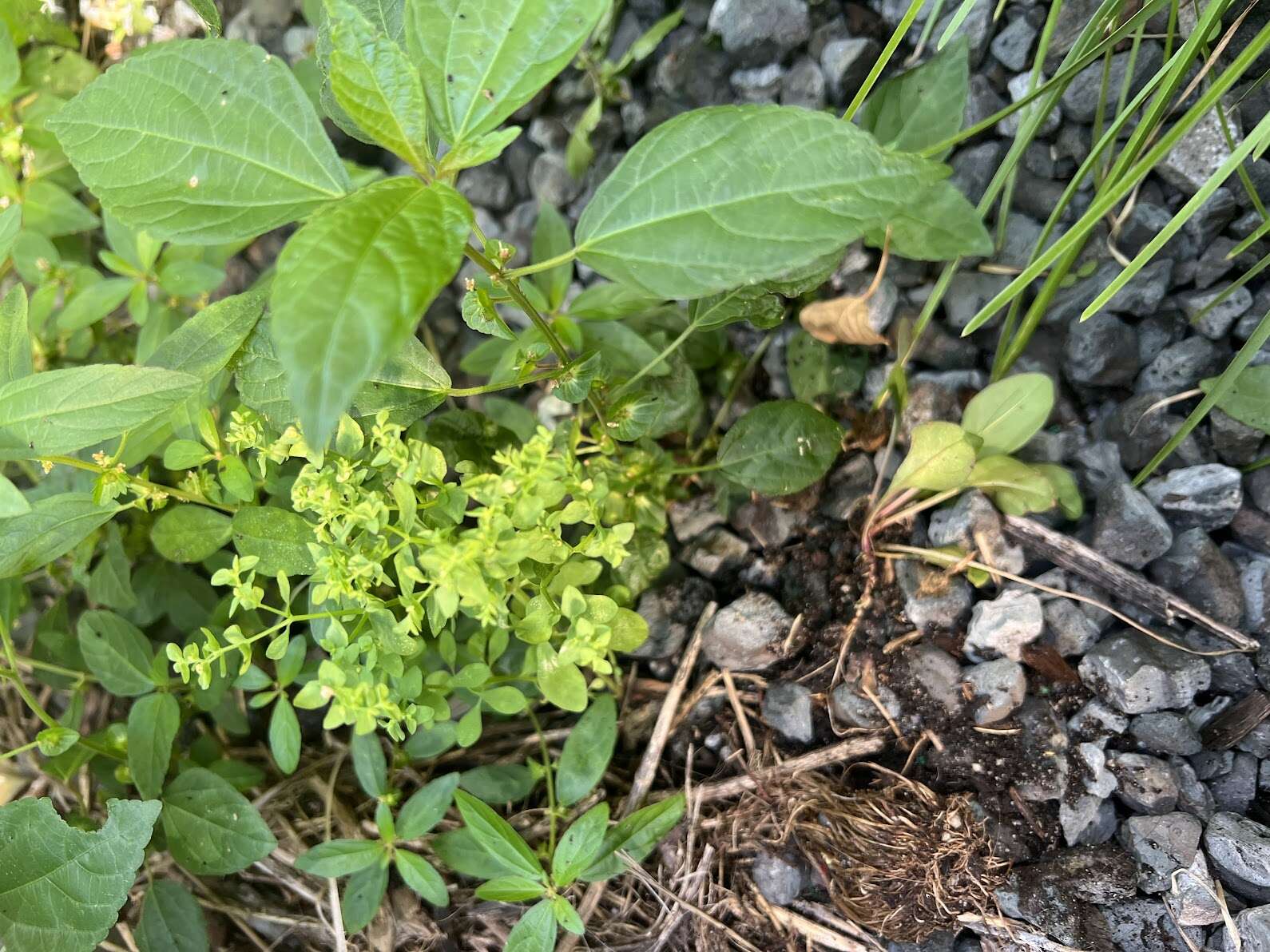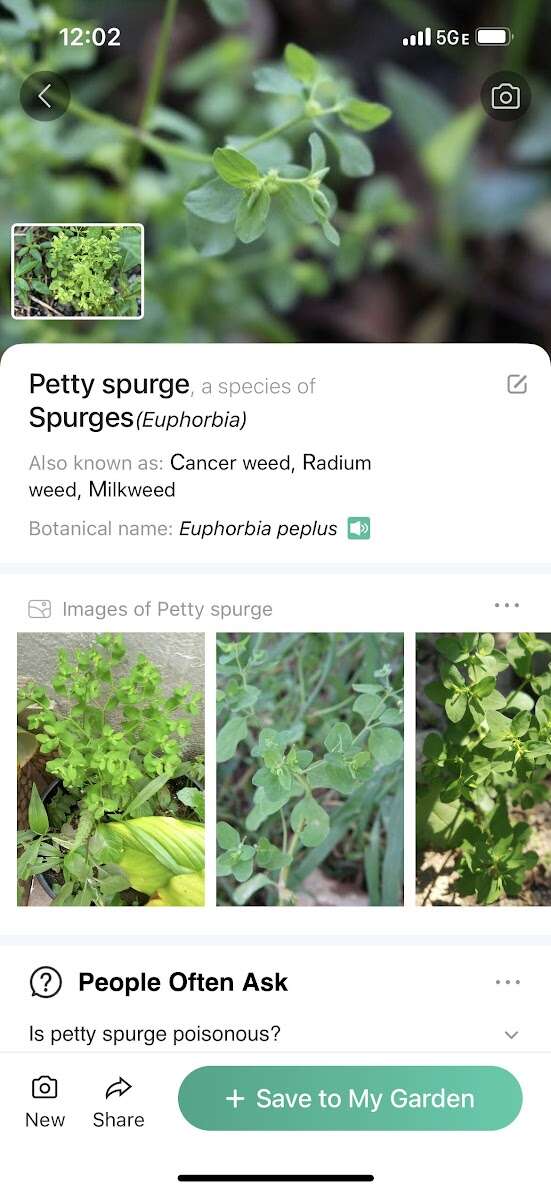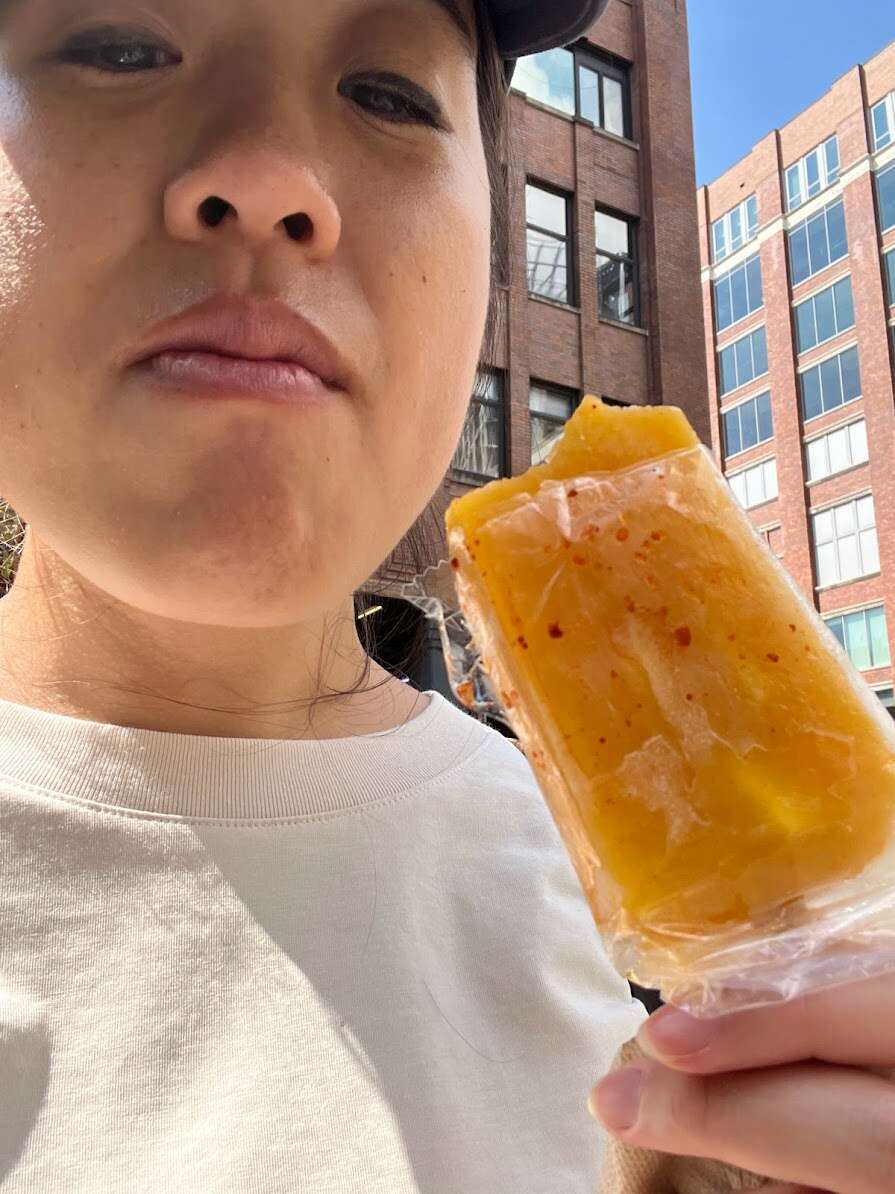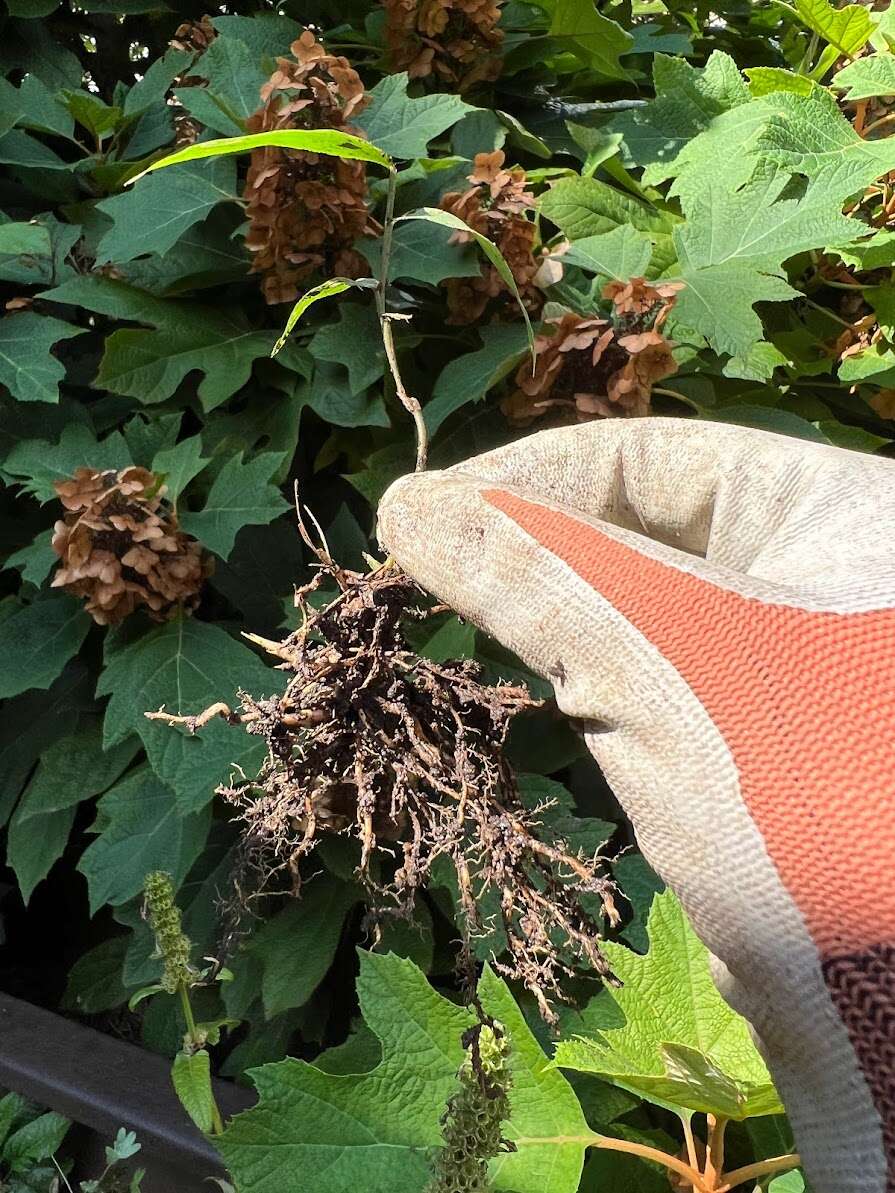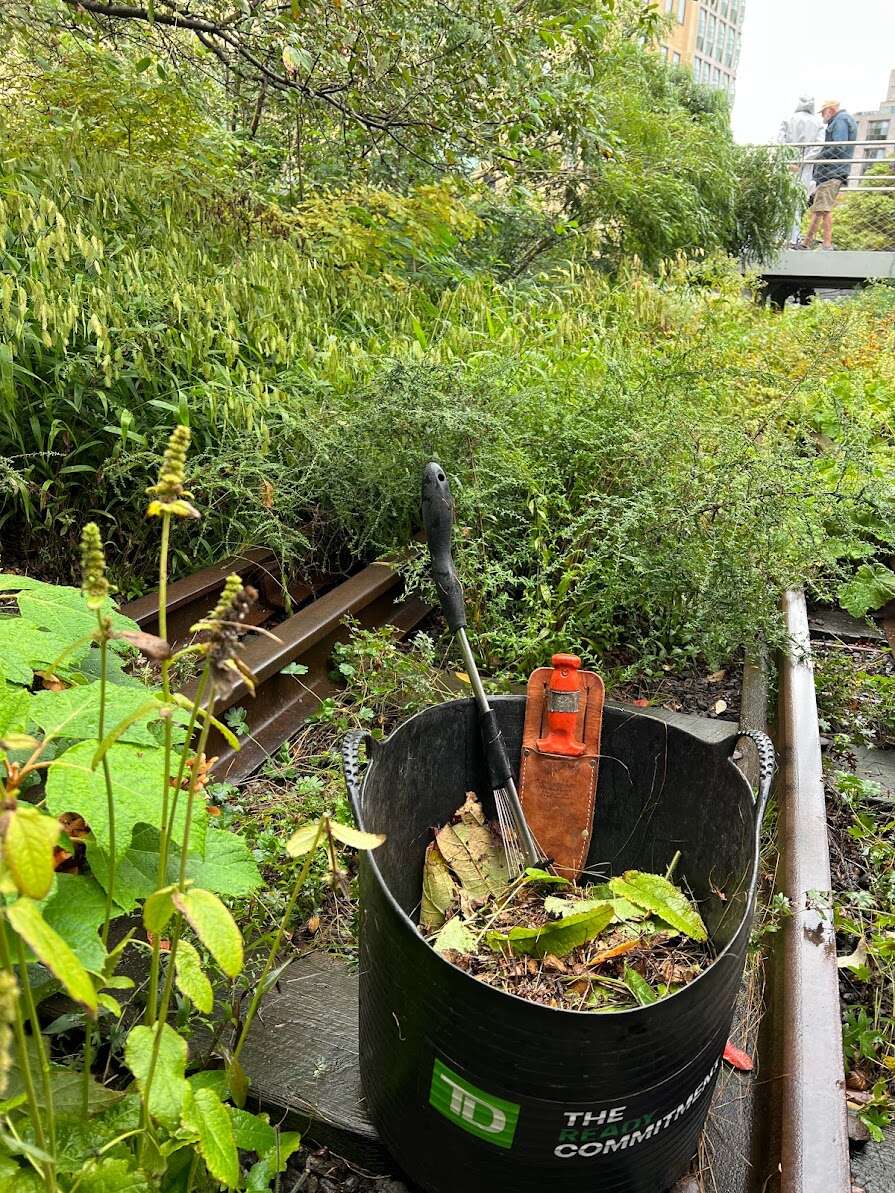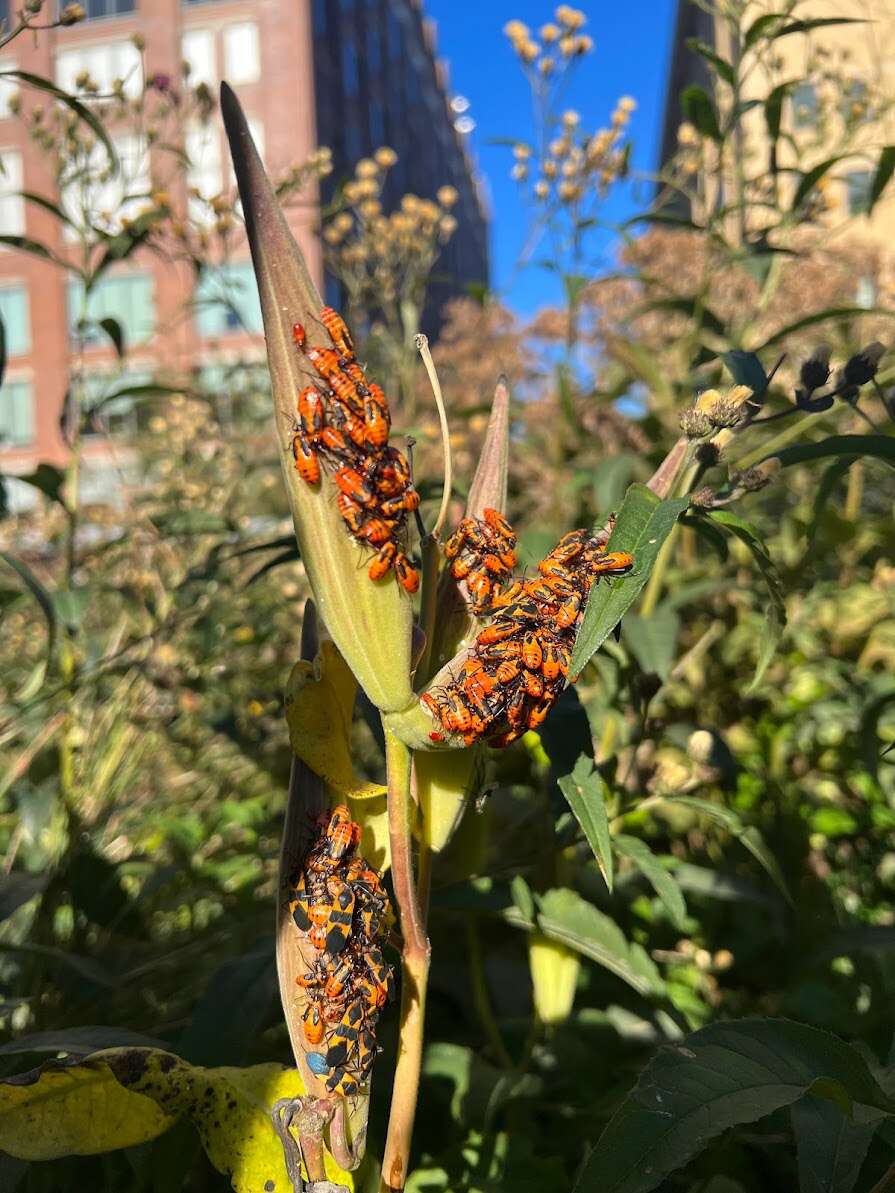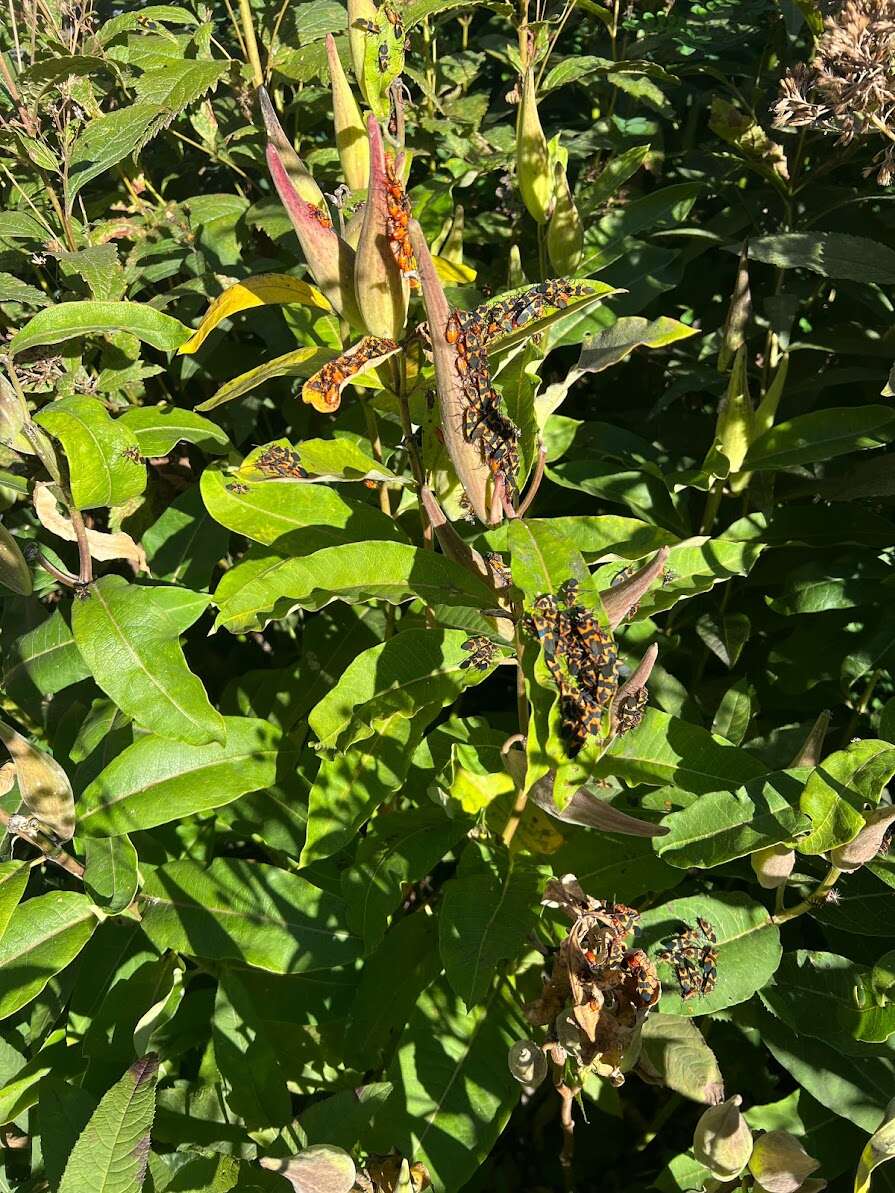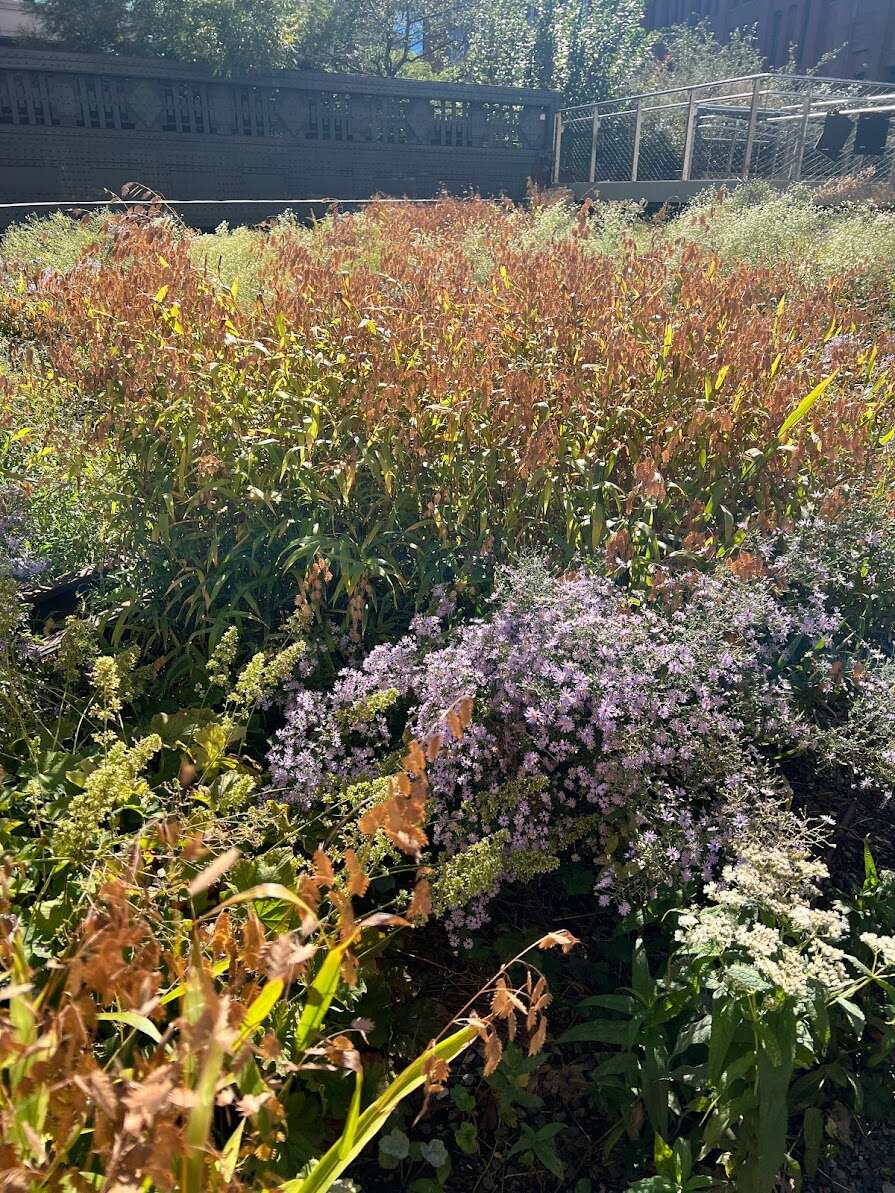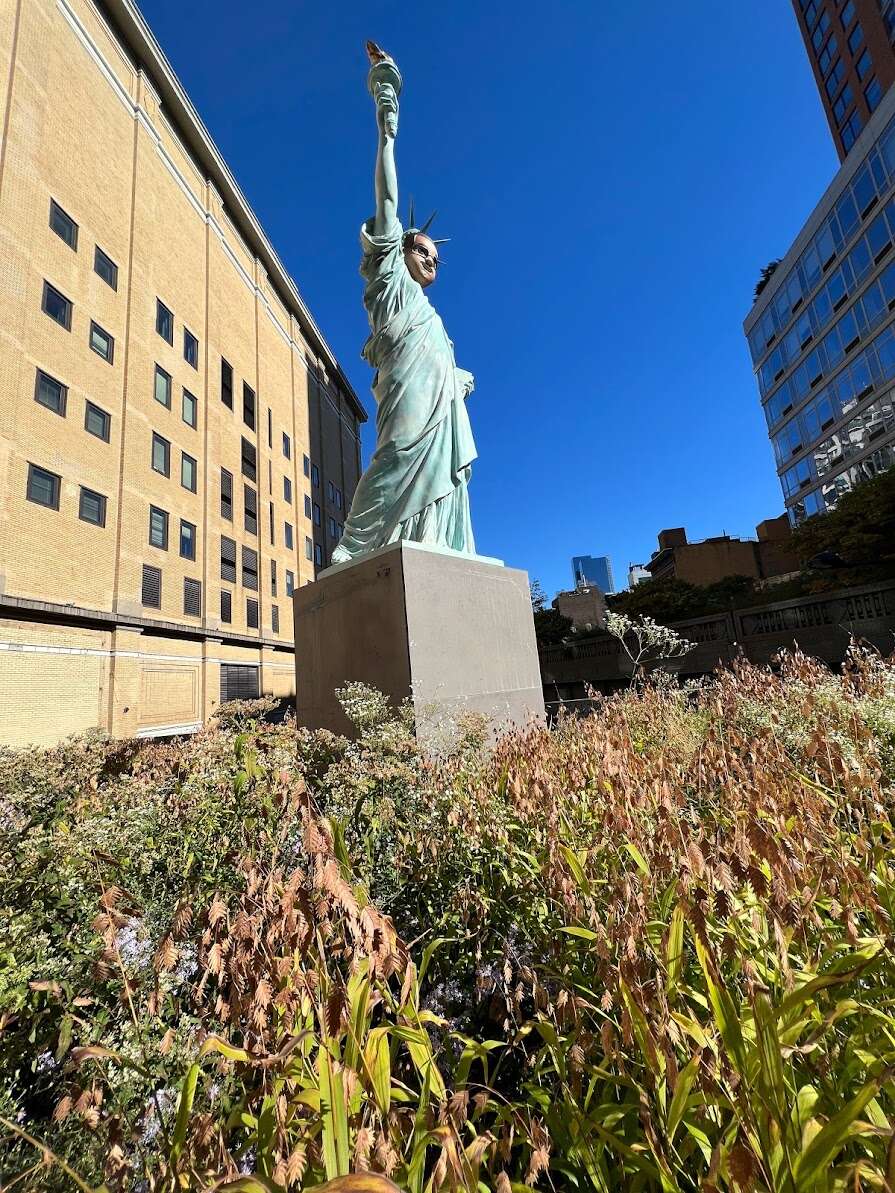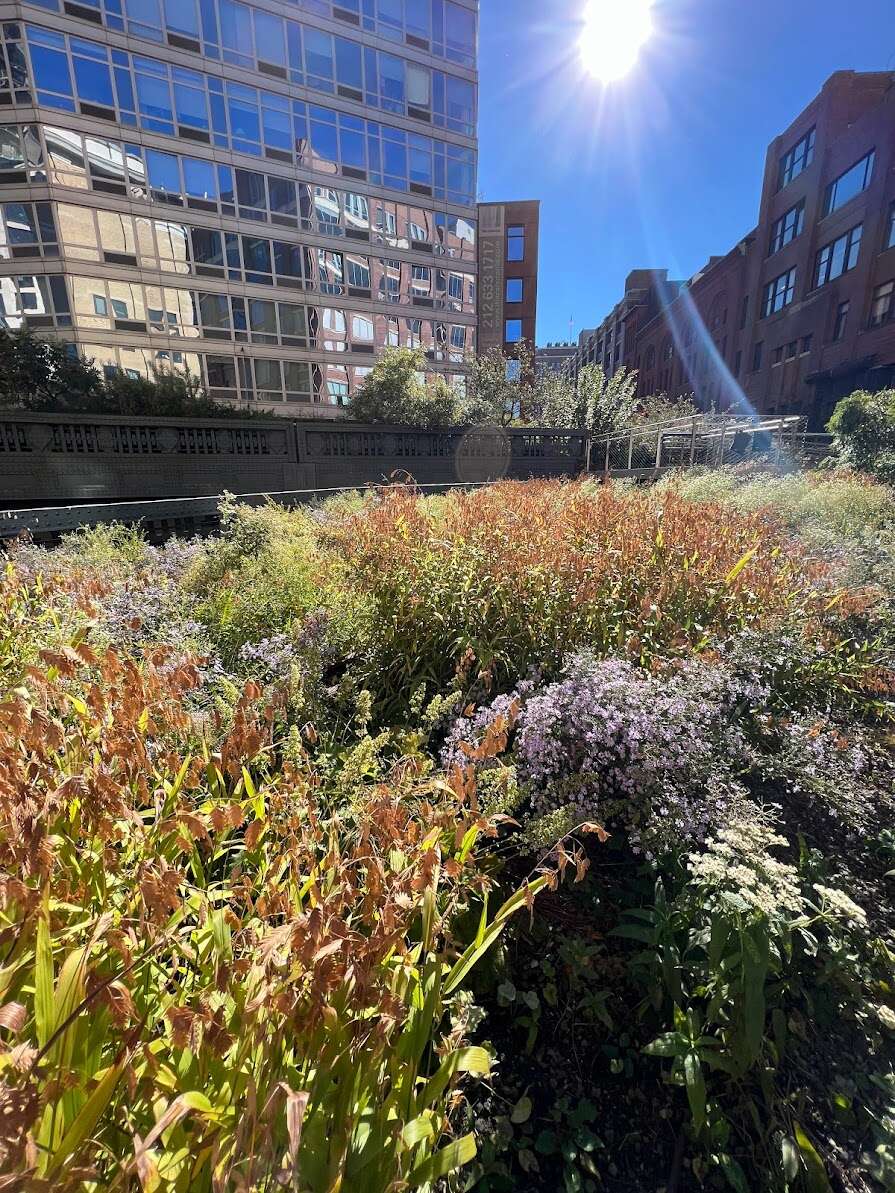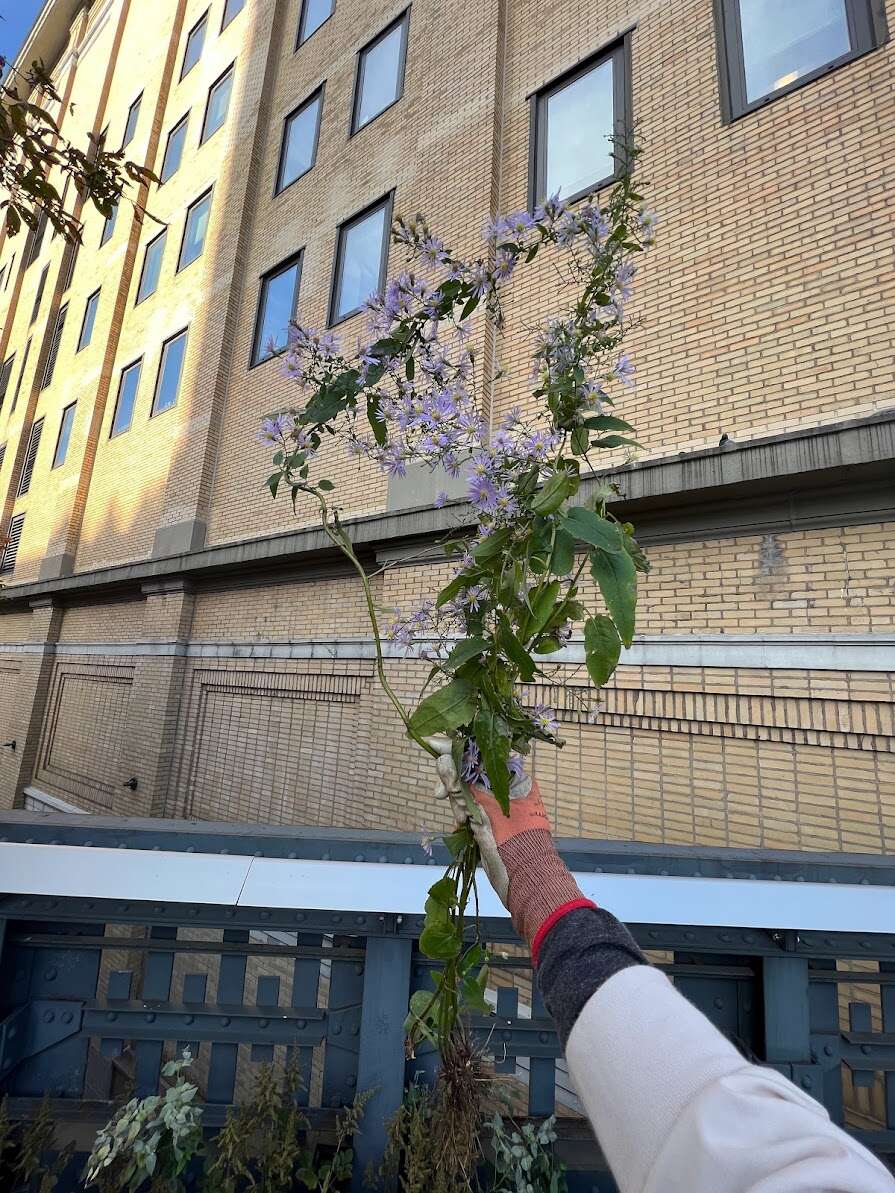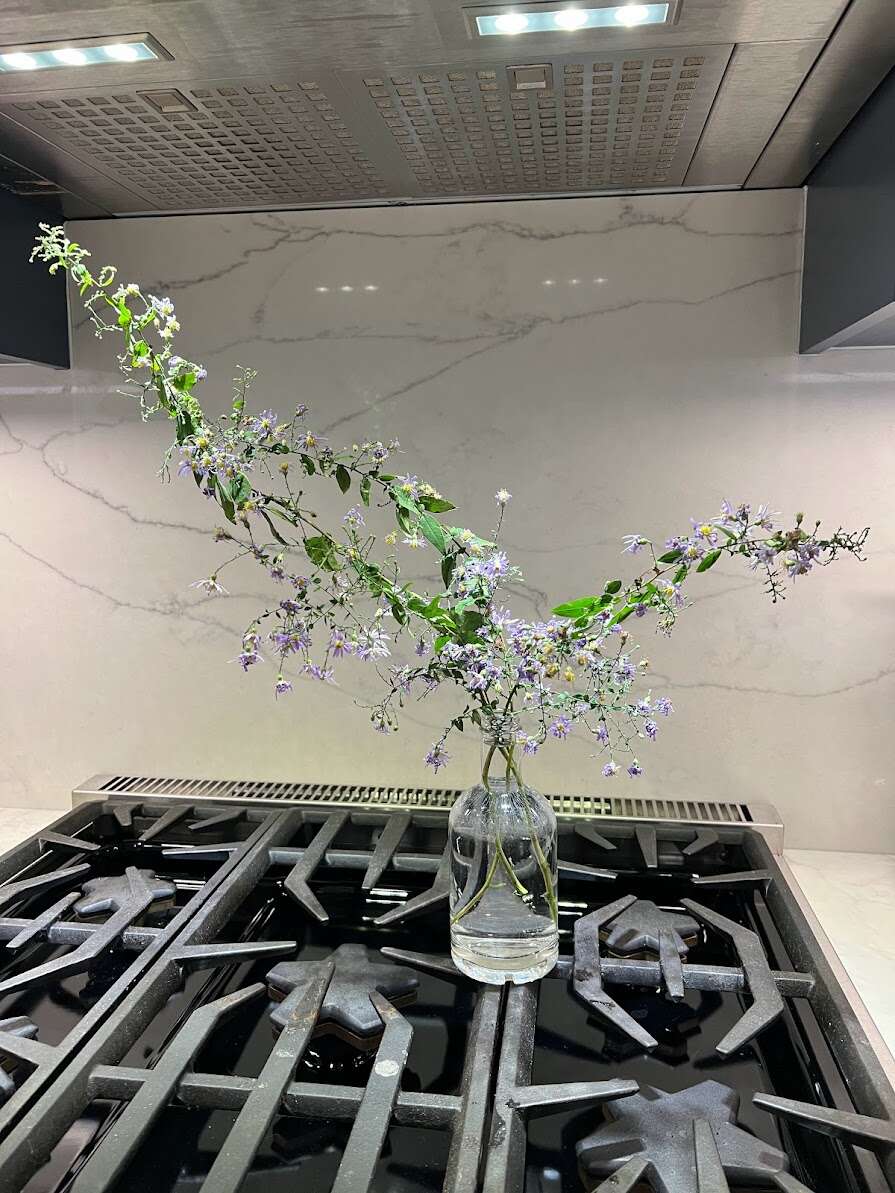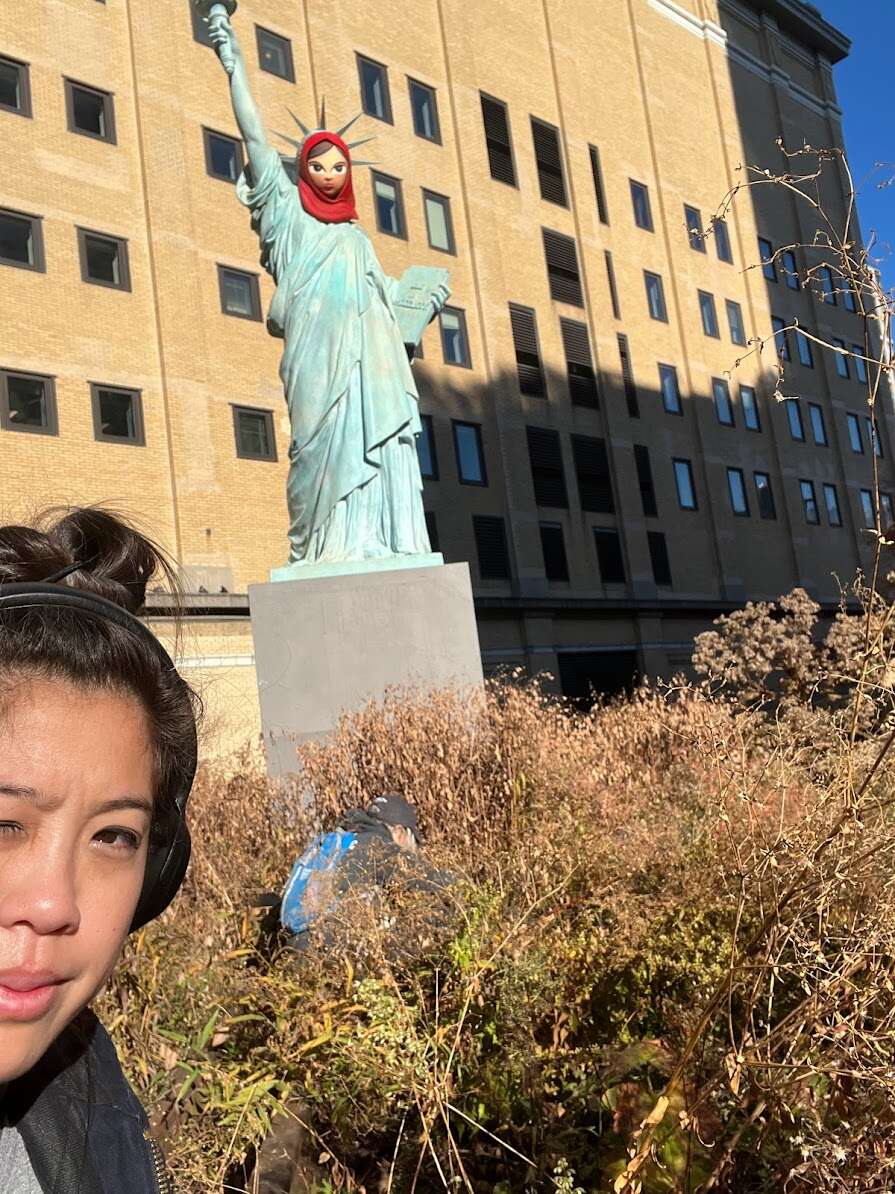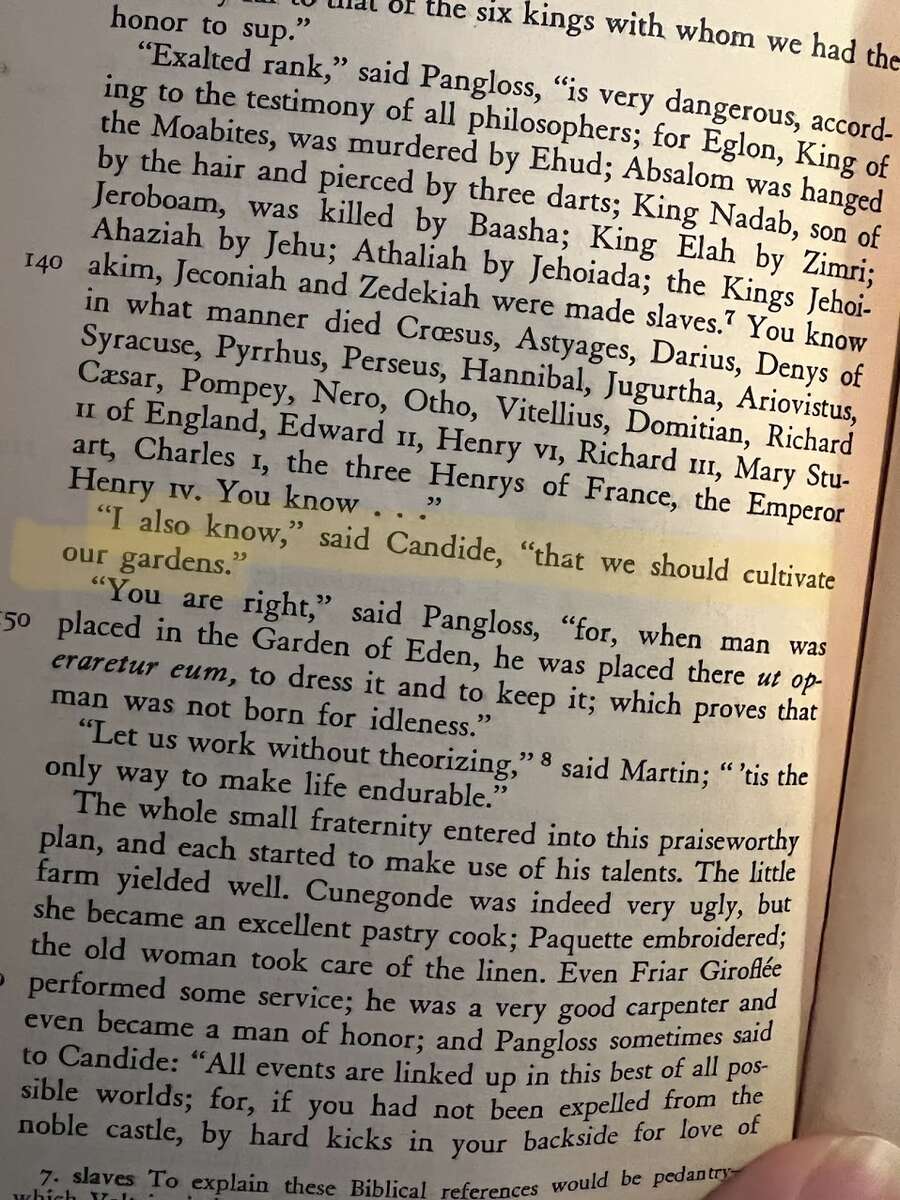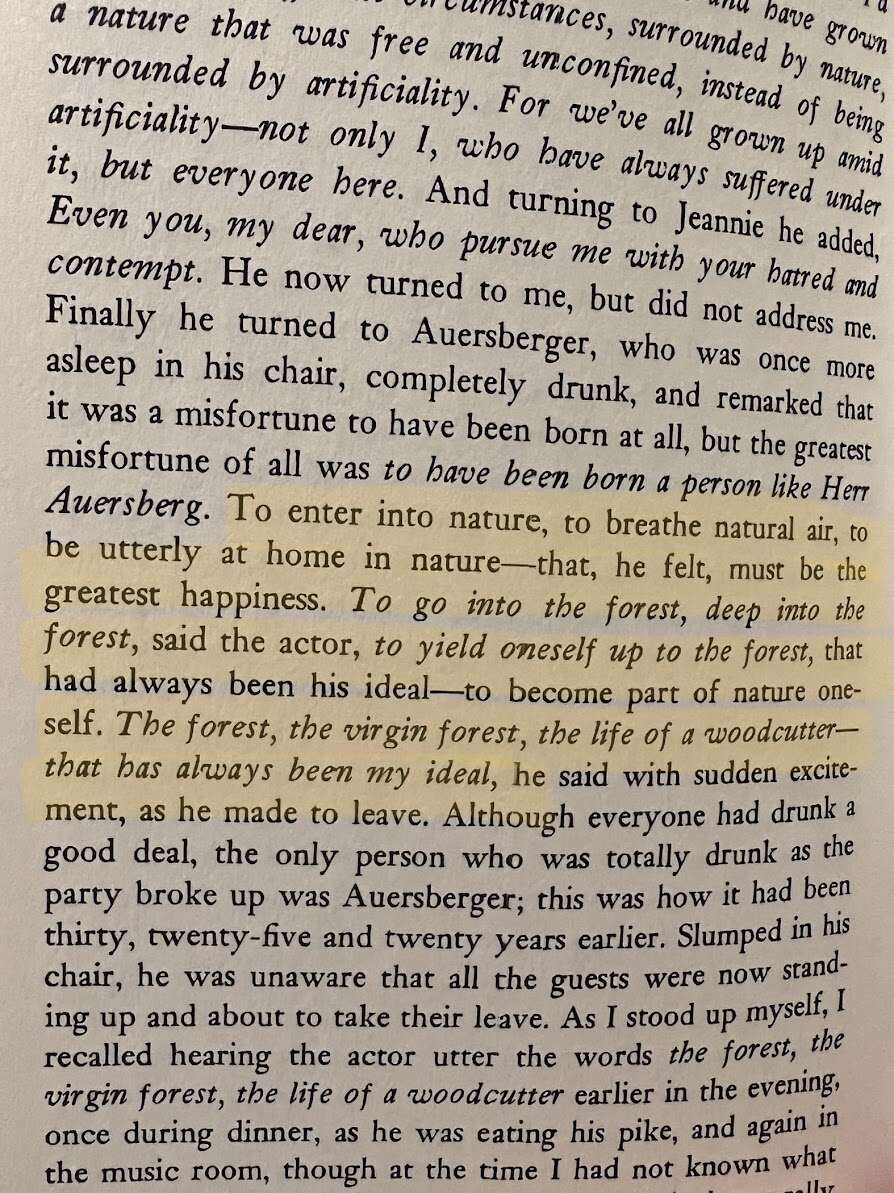march
Very gray-brown. Starting the season with Spring cutback
april
before/after; even though there is more green, still cutting back the dead

always wanted to go to a shindig in the chelsea market passage space and I got to finally 🕺🏻. Altho, it was frigid, so it was a bit more stolid than I had always hoped
may
Finally, green happy lushness
❤️❤️❤️
installation of Women & Children
june
Some color beginning to poke through
june's best taproot
july
Lots of colors and textures. I think the last pink flowers are Vintage Wine Coneflowers, which are available for adoption. This was one of Peter's first presents to me in our relationship (High Line's Adopt-A-Plant) ❤️
a nasty rash, later identified as an allergic reaction to euphorbia
july's best taproot
august
a field of flowers getting mowed/pre-mow/post-mow
planting planting planting
A whole lot of colors thriving and bustling, things that arrived earlier in the season beginning to die.
why do u litter :(
the offending plant, euphorbia (ง'̀-'́)ง
in august, began to really struggle with the heat (make a towel wet with cold water and place it over your shoulders and neck for some help with body temp regulation. The first person that showed me this was Madeline 😘). but it would also help to get a mango chile paleta from La Newyorkina
august's best taproot
september
Green beginning to give way to brown. Certain insects beginning their yearly feasting as certain plants make their graceful natural decline. You know who I am
october
More browns and fall foliage.
a late in the season aster that had popped up in the wrong spot that I got to take home
november
Fall is fully falling 🍂
one of my last days out gardening :(
december/january/february
too cold outside so here are illustrated representations of the high line, including one by the Cevallos Bros.
a note on weeding & being in the world
Despite, or paradoxically because of, how repetitive, never-ending, and menial weeding is, I find the work extremely satisfying. When I'm able to be out in a garden, it feels like a precious, open space and time for my brain to think and wander. Something I often found myself thinking about was—(surprise, surprise) weeding itself.
I thought about how uncanny the parallel is between weeding a garden and cultivating/facilitating/moderating a conversation. After noticing the way one plant would take over or was greedy for water/sun, we would help out the others in the garden by clearing and removing the high-consumption plants. When I felt shy or uncertain about pruning or weeding, my friend Boo would remind me that wild animals do a form of natural weeding, by eating the plants that are the most accessible.
Although, as is the case with discourse and the paradox of tolerance, the objectivity of deciding who belongs and who doesn't can get murky. A weed after all is only "a plant in the wrong place". Why exactly is one plant in the wrong place or another in the right; what is native when the ecology of a place has been so meddled with?
Where I've landed is to acknowledge the nuance here, continue observing what happens in the garden, continue reacting accordingly, and to leave the decision-making to the professionals. Either way, mucking around with dirt, leaves, roots, and bugs helps me manage when the world is feeling too big and overwhelming. To that end, concluding passages from two books come to mind:
I thought about how uncanny the parallel is between weeding a garden and cultivating/facilitating/moderating a conversation. After noticing the way one plant would take over or was greedy for water/sun, we would help out the others in the garden by clearing and removing the high-consumption plants. When I felt shy or uncertain about pruning or weeding, my friend Boo would remind me that wild animals do a form of natural weeding, by eating the plants that are the most accessible.
Although, as is the case with discourse and the paradox of tolerance, the objectivity of deciding who belongs and who doesn't can get murky. A weed after all is only "a plant in the wrong place". Why exactly is one plant in the wrong place or another in the right; what is native when the ecology of a place has been so meddled with?
Where I've landed is to acknowledge the nuance here, continue observing what happens in the garden, continue reacting accordingly, and to leave the decision-making to the professionals. Either way, mucking around with dirt, leaves, roots, and bugs helps me manage when the world is feeling too big and overwhelming. To that end, concluding passages from two books come to mind:
Left: Candide by Voltaire Right: Woodcutters by Thomas Bernhard (Woodcutters' epigraph is a Voltaire quote: "Being unable to make people more reasonable, I preferred to be happy away from them.")
The feeling I'm left with in both of these books is the grounding notion of focusing on a smaller piece of the world, improving what you can, working on what's in front of you, and the powerful redemptive and restorative remedies found only when communing with nature. While this might seem like an excuse to retreat from the world, I like how this piece from Adam Gopnik maps the radical political action Voltaire was actually undertaking in society with the timeline of when he published Candide. When Candide's "garden" quote has been up to so much interpretation, maybe it's in Voltaire's actions that we should understand what he meant.
